434 Depression Essay Titles & Research Topics: Argumentative, Controversial, and More
Depression is undeniably one of the most prevalent mental health conditions globally, affecting approximately 5% of adults worldwide. It often manifests as intense feelings of hopelessness, sadness, and a loss of interest in previously enjoyable activities. Many also experience physical symptoms like fatigue, sleep disturbances, and appetite changes. Recognizing and addressing this mental disorder is extremely important to save lives and treat the condition.
In this article, we’ll discuss how to write an essay about depression and introduce depression essay topics and research titles for students that may be inspirational.
- 🔝 Top Depression Essay Titles
- ✅ Essay Prompts
- 💡 Research Topics
- 🔎 Essay Titles
- 💭 Speech Topics
- 📝 Essay Structure

🔗 References
🔝 top 12 research titles about depression.
- How is depression treated?
- Depression: Risk factors.
- The symptoms of depression.
- What types of depression exist?
- Depression in young people.
- Differences between anxiety and depression.
- The parents’ role in depression therapy.
- Drugs as the root cause of depression.
- Dangerous consequences of untreated depression.
- Effect of long-term depression.
- Different stages of depression.
- Treatment for depression.
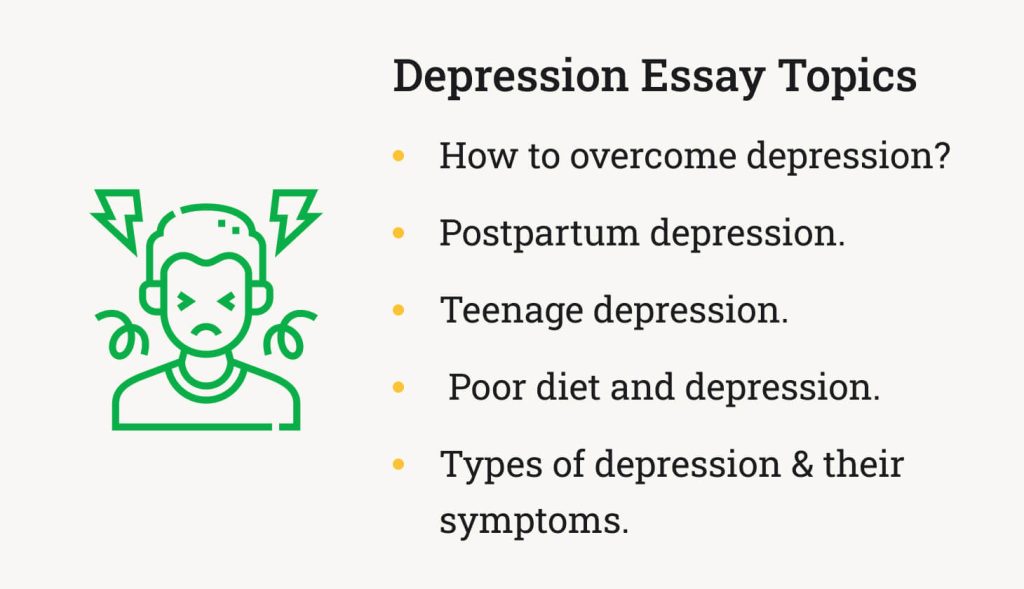
✅ Prompts for Essay about Depression
Struggling to find inspiration for your essay? Look no further! We’ve put together some valuable essay prompts on depression just for you!
Prompt for Personal Essay about Depression
Sharing your own experience with depression in a paper can be a good idea. Others may feel more motivated to overcome their situation after reading your story. You can also share valuable advice by discussing things or methods that have personally helped you deal with the condition.
For example, in your essay about depression, you can:
- Tell about the time you felt anxious, hopeless, or depressed;
- Express your opinion on depression based on the experiences from your life;
- Suggest a way of dealing with the initial symptoms of depression ;
- Share your ideas on how to protect mental health at a young age.
How to Overcome Depression: Essay Prompt
Sadness is a common human emotion, but depression encompasses more than just sadness. As reported by the National Institute of Mental Health, around 21 million adults in the United States, roughly 8.4% of the total adult population , faced at least one significant episode of depression in 2020. When crafting your essay about overcoming depression, consider exploring the following aspects:
- Depression in young people and adolescents;
- The main causes of depression;
- The symptoms of depression;
- Ways to treat depression;
- Help from a psychologist (cognitive behavioral therapy or interpersonal therapy ).
Postpartum Depression: Essay Prompt
The birth of a child often evokes a spectrum of powerful emotions, spanning from exhilaration and happiness to apprehension and unease. It can also trigger the onset of depression. Following childbirth, many new mothers experience postpartum “baby blues,” marked by shifts in mood, bouts of tears, anxiety, and sleep disturbances. To shed light on the subject of postpartum depression, explore the following questions:
- What factors may increase the risk of postpartum depression?
- Is postpartum depression predictable?
- How to prevent postpartum depression?
- What are the symptoms of postpartum depression?
- What kinds of postpartum depression treatments exist?
Prompt for Essay about Teenage Depression
Teenage depression is a mental health condition characterized by sadness and diminishing interest in daily activities. It can significantly impact a teenager’s thoughts, emotions, and behavior, often requiring long-term treatment and support.
By discussing the primary symptoms of teenage depression in your paper, you can raise awareness of the issue and encourage those in need to seek assistance. You can pay attention to the following aspects:
- Emotional changes (feelings of sadness, anger, hopelessness, guilt, etc.);
- Behavioral changes (loss of energy and appetite , less attention to personal hygiene, self-harm, etc.);
- New addictions (drugs, alcohol, computer games, etc.).
💡 Research Topics about Depression
- The role of genetics in depression development.
- The effectiveness of different psychotherapeutic interventions for depression.
- Anti-depression non-pharmacological and medication treatment .
- The impact of childhood trauma on the onset of depression later in life.
- Exploring the efficacy of antidepressant medication in different populations.
- The impact of exercise on depression symptoms and treatment outcomes.
- Mild depression: pharmacotherapy and psychotherapy .
- The relationship between sleep disturbances and depression.
- The role of gut microbiota in depression and potential implications for treatment.
- Investigating the impact of social media on depression rates in adolescents.
- Depression, dementia, and delirium in older people .
- The efficacy of cognitive-behavioral therapy in preventing depression relapse.
- The influence of hormonal changes on depression risk.
- Assessing the effectiveness of self-help and digital interventions for depression.
- Herbal and complementary therapies for depression .
- The relationship between personality traits and vulnerability to depression.
- Investigating the long-term consequences of untreated depression on physical health.
- Exploring the link between chronic pain and depression.
- Depression in the elderly male .
- The impact of childhood experiences on depression outcomes in adulthood.
- The use of ketamine and other novel treatments for depression.
- The effect of stigma on depression diagnosis and treatment.
- The conducted family assessment: cases of depression .
- The role of social support in depression recovery.
- The effectiveness of online support groups for individuals with depression.
- Depression and cognitive decline in adults.
- Depression: PICOT question component exploration .
- Exploring the impact of nutrition and dietary patterns on depression symptoms.
- Investigating the efficacy of art-based therapies in depression treatment.
- The role of neuroplasticity in the development and treatment of depression.
- Depression among HIV-positive women .
- The influence of gender on depression prevalence and symptomatology.
- Investigating the impact of workplace factors on depression rates and outcomes.
- The efficacy of family-based interventions in reducing depression symptoms in teenagers.
- Frontline nurses’ burnout, anxiety, depression, and fear statuses .
- The role of early-life stress and adversity in depression vulnerability.
- The impact of various environmental factors on depression rates.
- Exploring the link between depression and cardiovascular health .
- Depression detection in adults in nursing practice .
- Virtual reality as a therapeutic tool for depression treatment.
- Investigating the impact of childhood bullying on depression outcomes.
- The benefits of animal-assisted interventions in depression management.
- Depression and physical exercise .
- The relationship between depression and suicidal behavior .
- The influence of cultural factors on depression symptom expression.
- Investigating the role of epigenetics in depression susceptibility.
- Depression associated with cognitive dysfunction .
- Exploring the impact of adverse trauma on the course of depression.
- The efficacy of acceptance and commitment therapy in treating depression.
- The relationship between depression and substance use disorders .
- Depression and anxiety among college students .
- Investigating the effectiveness of group therapy for depression.
- Depression and chronic medical conditions .
Psychology Research Topics on Depression
- The influence of early attachment experiences on the development of depression.
- The impact of negative cognitive biases on depression symptomatology.
- Depression treatment plan for a queer patient .
- Examining the relationship between perfectionism and depression.
- The role of self-esteem in depression vulnerability and recovery.
- Exploring the link between maladaptive thinking styles (e.g., rumination, catastrophizing) and depression.
- Investigating the impact of social support on depression outcomes and resilience.
- Identifying depression in young adults at an early stage .
- The influence of parenting styles on the risk of depression in children and adolescents.
- The role of self-criticism and self-compassion in depression treatment.
- Exploring the relationship between identity development and depression in emerging adulthood.
- The role of learned helplessness in understanding depression and its treatment.
- Depression in the elderly .
- Examining the connection between self-efficacy beliefs and depression symptoms.
- The influence of social comparison processes on depression and body image dissatisfaction .
- Exploring the impact of trauma-related disorders on depression.
- The role of resilience factors in buffering against the development of depression.
- Investigating the relationship between personality traits and depression.
- Depression and workplace violence .
- The impact of cultural factors on depression prevalence and symptom presentation.
- Investigating the effects of chronic stress on depression risk.
- The role of coping strategies in depression management and recovery.
- The correlation between discrimination/prejudice and depression/anxiety .
- Exploring the influence of gender norms and societal expectations on depression rates.
- The impact of adverse workplace conditions on employee depression.
- Investigating the effectiveness of narrative therapy in treating depression.
- Cognitive behavior and depression in adolescents .
- Childhood emotional neglect and adult depression.
- The influence of perceived social support on treatment outcomes in depression.
- The effects of childhood bullying on the development of depression.
- The impact of intergenerational transmission of depression within families.
- Depression in children: symptoms and treatments .
- Investigating the link between body dissatisfaction and depression in adolescence.
- The influence of adverse life events and chronic stressors on depression risk.
- The effects of peer victimization on the development of depression in adolescence.
- Counselling clients with depression and addiction .
- The role of experiential avoidance in depression and its treatment.
- The impact of social media use and online interactions on depression rates.
- Depression management in adolescent .
- Exploring the relationship between emotional intelligence and depression symptomatology.
- Investigating the influence of cultural values and norms on depression stigma and help-seeking behavior.
- The effects of childhood maltreatment on neurobiological markers of depression.
- Psychological and emotional conditions of suicide and depression .
- Exploring the relationship between body dissatisfaction and depression.
- The influence of self-worth contingencies on depression vulnerability and treatment response.
- The impact of social isolation and loneliness on depression rates.
- Psychology of depression among college students .
- The effects of perfectionistic self-presentation on depression in college students.
- The role of mindfulness skills in depression prevention and relapse prevention.
- Investigating the influence of adverse neighborhood conditions on depression risk.
- Personality psychology and depression .
- The impact of attachment insecurity on depression symptomatology.
Postpartum Depression Research Topics
- Identifying risk factors for postpartum depression.
- Exploring the role of hormonal changes in postpartum depression.
- “Baby blues” or postpartum depression and evidence-based care .
- The impact of social support on postpartum depression.
- The effectiveness of screening tools for early detection of postpartum depression.
- The relationship between postpartum depression and maternal-infant bonding .
- Postpartum depression educational program results .
- Identifying effective interventions for preventing and treating postpartum depression.
- Examining the impact of cultural factors on postpartum depression rates.
- Investigating the role of sleep disturbances in postpartum depression.
- Depression and postpartum depression relationship .
- Exploring the impact of a traumatic birth experience on postpartum depression.
- Assessing the impact of breastfeeding difficulties on postpartum depression.
- Understanding the role of genetic factors in postpartum depression.
- Postpartum depression: consequences .
- Investigating the impact of previous psychiatric history on postpartum depression risk.
- The potential benefits of exercise on postpartum depression symptoms.
- The efficacy of psychotherapeutic interventions for postpartum depression.
- Postpartum depression in the twenty-first century .
- The influence of partner support on postpartum depression outcomes.
- Examining the relationship between postpartum depression and maternal self-esteem.
- The impact of postpartum depression on infant development and well-being.
- Maternal mood symptoms in pregnancy and postpartum depression .
- The effectiveness of group therapy for postpartum depression management.
- Identifying the role of inflammation and immune dysregulation in postpartum depression.
- Investigating the impact of childcare stress on postpartum depression.
- Postpartum depression among low-income US mothers .
- The role of postnatal anxiety symptoms in postpartum depression.
- The impact of postpartum depression on the marital relationship.
- The influence of postpartum depression on parenting practices and parental stress.
- Postpartum depression: symptoms, role of cultural factors, and ways to support .
- Investigating the efficacy of pharmacological treatments for postpartum depression.
- The impact of postpartum depression on breastfeeding initiation and continuation.
- The relationship between postpartum depression and post-traumatic stress disorder .
- Postpartum depression and its identification .
- The impact of postpartum depression on cognitive functioning and decision-making.
- Investigating the influence of cultural norms and expectations on postpartum depression rates.
- The impact of maternal guilt and shame on postpartum depression symptoms.
- Beck’s postpartum depression theory: purpose, concepts, and significance .
- Understanding the role of attachment styles in postpartum depression vulnerability.
- Investigating the effectiveness of online support groups for women with postpartum depression.
- The impact of socioeconomic factors on postpartum depression prevalence.
- Perinatal depression: research study and design .
- The efficacy of mindfulness-based interventions for postpartum depression.
- Investigating the influence of birth spacing on postpartum depression risk.
- The role of trauma history in postpartum depression development.
- The link between the birth experience and postnatal depression .
- How does postpartum depression affect the mother-infant interaction and bonding ?
- The effectiveness of home visiting programs in preventing and managing postpartum depression.
- Assessing the influence of work-related stress on postpartum depression.
- The relationship between postpartum depression and pregnancy-related complications.
- The role of personality traits in postpartum depression vulnerability.
🔎 Depression Essay Titles
Depression essay topics: cause & effect.
- The effects of childhood trauma on the development of depression in adults.
- The impact of social media usage on the prevalence of depression in adolescents.
- “Predictors of Postpartum Depression” by Katon et al.
- The effects of environmental factors on depression rates.
- The relationship between academic pressure and depression among college students.
- The relationship between financial stress and depression.
- The best solution to predict depression because of bullying .
- How does long-term unemployment affect mental health ?
- The effects of unemployment on mental health, particularly the risk of depression.
- The impact of genetics and family history of depression on an individual’s likelihood of developing depression.
- The relationship between depression and substance abuse .
- Child abuse and depression .
- The role of gender in the manifestation and treatment of depression.
- The effects of chronic stress on the development of depression.
- The link between substance abuse and depression.
- Depression among students at Elon University .
- The influence of early attachment styles on an individual’s vulnerability to depression.
- The effects of sleep disturbances on the severity of depression.
- Chronic illness and the risk of developing depression.
- Depression: symptoms and treatment .
- Adverse childhood experiences and the likelihood of experiencing depression in adulthood.
- The relationship between chronic illness and depression.
- The role of negative thinking patterns in the development of depression.
- Effects of depression among adolescents .
- The effects of poor body image and low self-esteem on the prevalence of depression.
- The influence of social support systems on preventing symptoms of depression.
- The effects of child neglect on adult depression rates.
- Depression caused by hormonal imbalance .
- The link between perfectionism and the risk of developing depression.
- The effects of a lack of sleep on depression symptoms.
- The effects of childhood abuse and neglect on the risk of depression.
- Social aspects of depression and anxiety .
- The impact of bullying on the likelihood of experiencing depression.
- The role of serotonin and neurotransmitter imbalances in the development of depression.
- The impact of a poor diet on depression rates.
- Depression and anxiety run in the family .
- The effects of childhood poverty and socioeconomic status on depression rates in adults.
- The impact of divorce on depression rates.
- The relationship between traumatic life events and the risk of developing depression.
- The influence of personality traits on susceptibility to depression.
- The impact of workplace stress on depression rates.
- Depression in older adults: causes and treatment .
- The impact of parental depression on children’s mental health outcomes.
- The effects of social isolation on the prevalence and severity of depression.
- The role of cultural factors in the manifestation and treatment of depression.
- The relationship between childhood bullying victimization and future depressive symptoms.
- The impact of early intervention and prevention programs on reducing the risk of postpartum depression.
- Treating mood disorders and depression .
- How do hormonal changes during pregnancy contribute to the development of depression?
- The effects of sleep deprivation on the onset and severity of postpartum depression.
- The impact of social media on depression rates among teenagers.
- The role of genetics in the development of depression.
- The impact of bullying on adolescent depression rates.
- Mental illness, depression, and wellness issues .
- The effects of a sedentary lifestyle on depression symptoms.
- The correlation between academic pressure and depression in students.
- The relationship between perfectionism and depression.
- The correlation between trauma and depression in military veterans.
- Anxiety and depression during childhood and adolescence .
- The impact of racial discrimination on depression rates among minorities.
- The relationship between chronic pain and depression.
- The impact of social comparison on depression rates among young adults.
- The effects of childhood abuse on adult depression rates.
Depression Argumentative Essay Topics
- The role of social media in contributing to depression among teenagers.
- The effectiveness of antidepressant medication: an ongoing debate.
- Depression treatment: therapy or medications ?
- Should depression screening be mandatory in schools and colleges?
- Is there a genetic predisposition to depression?
- The stigma surrounding depression: addressing misconceptions and promoting understanding.
- Implementation of depression screening in primary care .
- Is psychotherapy more effective than medication in treating depression?
- Is teenage depression overdiagnosed or underdiagnosed: a critical analysis.
- The connection between depression and substance abuse: untangling the relationship.
- Humanistic therapy of depression .
- Should ECT (electroconvulsive therapy) be a treatment option for severe depression?
- Where is depression more prevalent: in urban or rural communities? Analyzing the disparities.
- Is depression a result of chemical imbalance in the brain? Debunking the myth.
- Depression: a serious mental and behavioral problem .
- Should depression medication be prescribed for children and adolescents?
- The effectiveness of mindfulness-based interventions in managing depression.
- Should depression in the elderly be considered a normal part of aging?
- Is depression hereditary? Investigating the role of genetics in depression risk.
- Different types of training in managing the symptoms of depression .
- The effectiveness of online therapy platforms in treating depression.
- Should psychedelic therapy be explored as an alternative treatment for depression?
- The connection between depression and cardiovascular health: Is there a link?
- The effectiveness of cognitive-behavioral therapy in preventing depression relapse.
- Depression as a bad a clinical condition .
- Should mind-body interventions (e.g., yoga , meditation) be integrated into depression treatment?
- Should emotional support animals be prescribed for individuals with depression?
- The effectiveness of peer support groups in decreasing depression symptoms.
- The use of antidepressants: are they overprescribed or necessary for treating depression?
- Adult depression and anxiety as a complex problem .
- The effectiveness of therapy versus medication in treating depression.
- The stigma surrounding depression and mental illness: how can we reduce it?
- The debate over the legalization of psychedelic drugs for treating depression.
- The relationship between creativity and depression: does one cause the other?
- Cognitive-behavioral therapy for generalized anxiety disorder and depression .
- The role of childhood trauma in shaping adult depression: Is it always a causal factor?
- The debate over the medicalization of sadness and grief as forms of depression.
- Alternative therapies, such as acupuncture or meditation, are effective in treating depression.
- Depression as a widespread mental condition .
Controversial Topics about Depression
- The existence of “chemical imbalance” in depression: fact or fiction?
- The over-reliance on medication in treating depression: are alternatives neglected?
- Is depression overdiagnosed and overmedicated in Western society?
- Measurement of an individual’s level of depression .
- The role of Big Pharma in shaping the narrative and treatment of depression.
- Should antidepressant advertisements be banned?
- The inadequacy of current diagnostic criteria for depression: rethinking the DSM-5.
- Is depression a biological illness or a product of societal factors?
- Literature review on depression .
- The overemphasis on biological factors in depression treatment: ignoring environmental factors.
- Is depression a normal reaction to an abnormal society?
- The influence of cultural norms on the perception and treatment of depression.
- Should children and adolescents be routinely prescribed antidepressants?
- The role of family in depression treatment .
- The connection between depression and creative genius: does depression enhance artistic abilities?
- The ethics of using placebo treatment for depression studies.
- The impact of social and economic inequalities on depression rates.
- Is depression primarily a mental health issue or a social justice issue?
- Depression disassembling and treating .
- Should depression screening be mandatory in the workplace?
- The influence of gender bias in the diagnosis and treatment of depression.
- The controversial role of religion and spirituality in managing depression.
- Is depression a result of individual weakness or societal factors?
- Abnormal psychology: anxiety and depression case .
- The link between depression and obesity: examining the bidirectional relationship.
- The connection between depression and academic performance : causation or correlation?
- Should depression medication be available over the counter?
- The impact of internet and social media use on depression rates: harmful or beneficial?
- Interacting in the workplace: depression .
- Is depression a modern epidemic or simply better diagnosed and identified?
- The ethical considerations of using animals in depression research.
- The effectiveness of psychedelic therapies for treatment-resistant depression.
- Is depression a disability? The debate on workplace accommodations.
- Polysubstance abuse among adolescent males with depression .
- The link between depression and intimate partner violence : exploring the relationship.
- The controversy surrounding “happy” pills and the pursuit of happiness.
- Is depression a choice? Examining the role of personal responsibility.
Good Titles for Depression Essays
- The poetic depictions of depression: exploring its representation in literature.
- The melancholic symphony: the influence of depression on classical music.
- Moderate depression symptoms and treatment .
- Depression in modern music: analyzing its themes and expressions.
- Cultural perspectives on depression: a comparative analysis of attitudes in different countries.
- Contrasting cultural views on depression in Eastern and Western societies.
- Diagnosing depression in the older population .
- The influence of social media on attitudes and perceptions of depression in global contexts.
- Countries with progressive approaches to mental health awareness.
- From taboo to acceptance: the evolution of attitudes towards depression.
- Depression screening tool in acute settings .
- The Bell Jar : analyzing Sylvia Plath’s iconic tale of depression .
- The art of despair: examining Frida Kahlo’s self-portraits as a window into depression.
- The Catcher in the Rye : Holden Caulfield’s battle with adolescent depression.
- Music as therapy: how jazz artists turned depression into art.
- Depression screening tool for a primary care center .
- The Nordic paradox: high depression rates in Scandinavian countries despite high-quality healthcare.
- The Stoic East: how Eastern philosophies approach and manage depression.
- From solitude to solidarity: collective approaches to depression in collectivist cultures.
- The portrayal of depression in popular culture: a critical analysis of movies and TV shows.
- The depression screening training in primary care .
- The impact of social media influencers on depression rates among young adults.
- The role of music in coping with depression: can specific genres or songs help alleviate depressive symptoms?
- The representation of depression in literature: a comparative analysis of classic and contemporary works.
- The use of art as a form of self-expression and therapy for individuals with depression.
- Depression management guidelines implementation .
- The role of religion in coping with depression: Christian and Buddhist practices.
- The representation of depression in the video game Hellblade: Senua’s Sacrifice .
- The role of nature in coping with depression: can spending time outdoors help alleviate depressive symptoms?
- The effectiveness of dance/movement therapy in treating depression among older adults.
- The National Institute for Health: depression management .
- The portrayal of depression in stand-up comedy: a study of comedians like Maria Bamford and Chris Gethard.
- The role of spirituality in coping with depression: Islamic and Hindu practices .
- The portrayal of depression in animated movies : an analysis of Inside Out and The Lion King .
- The representation of depression by fashion designers like Alexander McQueen and Rick Owens.
- Depression screening in primary care .
- The portrayal of depression in documentaries: an analysis of films like The Bridge and Happy Valley .
- The effectiveness of wilderness therapy in treating depression among adolescents.
- The connection between creativity and depression: how art can help heal.
- The role of Buddhist and Taoist practices in coping with depression.
- Mild depression treatment research funding sources .
- The portrayal of depression in podcasts: an analysis of the show The Hilarious World of Depression .
- The effectiveness of drama therapy in treating depression among children and adolescents.
- The representation of depression in the works of Vincent van Gogh and Edvard Munch.
- Depression in young people: articles review .
- The impact of social media on political polarization and its relationship with depression.
- The role of humor in coping with depression: a study of comedians like Ellen DeGeneres.
- The portrayal of depression in webcomics: an analysis of the comics Hyperbole and a Half .
- The effect of social media on mental health stigma and its relationship with depression.
- Depression and the impact of human services workers .
- The masked faces: hiding depression in highly individualistic societies.
💭 Depression Speech Topics
Informative speech topics about depression.
- Different types of depression and their symptoms.
- The causes of depression: biological, psychological, and environmental factors.
- How depression and physical issues are connected .
- The prevalence of depression in different age groups and demographics.
- The link between depression and anxiety disorders .
- Physical health: The effects of untreated depression.
- The role of genetics in predisposing individuals to depression.
- What you need to know about depression .
- How necessary is early intervention in treating depression?
- The effectiveness of medication in treating depression.
- The role of exercise in managing depressive symptoms.
- Depression in later life: overview .
- The relationship between substance abuse and depression.
- The impact of trauma on depression rates and treatment.
- The effectiveness of mindfulness meditation in managing depressive symptoms.
- Enzymes conversion and metabolites in major depression .
- The benefits and drawbacks of electroconvulsive therapy for severe depression.
- The effect of gender and cultural norms on depression rates and treatment.
- The effectiveness of alternative therapies for depression, such as acupuncture and herbal remedies .
- The importance of self-care in managing depression.
- Symptoms of anxiety, depression, and peritraumatic dissociation .
- The role of support systems in managing depression.
- The effectiveness of cognitive-behavioral therapy in treating depression.
- The benefits and drawbacks of online therapy for depression.
- The role of spirituality in managing depression.
- Depression among minority groups .
- The benefits and drawbacks of residential treatment for severe depression.
- What is the relationship between childhood trauma and adult depression?
- How effective is transcranial magnetic stimulation (TMS) for treatment-resistant depression?
- The benefits and drawbacks of art therapy for depression.
- Mood disorder: depression and bipolar .
- The impact of social media on depression rates.
- The effectiveness of dialectical behavior therapy (DBT) in treating depression.
- Depression in older people .
- The impact of seasonal changes on depression rates and treatment options.
- The impact of depression on daily life and relationships, and strategies for coping with the condition.
- The stigma around depression and the importance of seeking help.
Persuasive Speech Topics about Depression
- How important is it to recognize the signs and symptoms of depression ?
- How do you support a loved one who is struggling with depression?
- The importance of mental health education in schools to prevent and manage depression.
- Social media: the rise of depression and anxiety .
- Is there a need to increase funding for mental health research to develop better treatments for depression?
- Addressing depression in minority communities: overcoming barriers and disparities.
- The benefits of including alternative therapies , such as yoga and meditation, in depression treatment plans.
- Challenging media portrayals of depression: promoting accurate representations.
- Two sides of depression disease .
- How social media affects mental health: the need for responsible use to prevent depression.
- The importance of early intervention: addressing depression in schools and colleges.
- The benefits of seeking professional help for depression.
- There is a need for better access to mental health care, including therapy and medication, for those suffering from depression.
- Depression in adolescents and suitable interventions .
- How do you manage depression while in college or university?
- The role of family and friends in supporting loved ones with depression and encouraging them to seek help.
- The benefits of mindfulness and meditation for depression.
- The link between sleep and depression, and how to improve sleep habits.
- How do you manage depression while working a high-stress job?
- Approaches to treating depression .
- How do you manage depression during pregnancy and postpartum?
- The importance of prioritizing employee mental health and providing resources for managing depression in the workplace.
- How should you manage depression while caring for a loved one with a chronic illness?
- How to manage depression while dealing with infertility or pregnancy loss.
- Andrew Solomon: why we can’t talk about depression .
- Destigmatizing depression: promoting mental health awareness and understanding.
- Raising funds for depression research: investing in mental health advances.
- The power of peer support: establishing peer-led programs for depression.
- Accessible mental health services: ensuring treatment for all affected by depression.
- Evidence-based screening for depression in acute care .
- The benefits of journaling for mental health: putting your thoughts on paper to heal.
- The power of positivity: changing your mindset to fight depression .
- The healing power of gratitude in fighting depression.
- The connection between diet and depression: eating well can improve your mood.
- Teen depression and suicide in Soto’s The Afterlife .
- The benefits of therapy for depression: finding professional help to heal.
- The importance of setting realistic expectations when living with depression.
📝 How to Write about Depression: Essay Structure
We’ve prepared some tips and examples to help you structure your essay and communicate your ideas.
Essay about Depression: Introduction
An introduction is the first paragraph of an essay. It plays a crucial role in engaging the reader, offering the context, and presenting the central theme.
A good introduction typically consists of 3 components:
- Hook. The hook captures readers’ attention and encourages them to continue reading.
- Background information. Background information provides context for the essay.
- Thesis statement. A thesis statement expresses the essay’s primary idea or central argument.
Hook : Depression is a widespread mental illness affecting millions worldwide.
Background information : Depression affects your emotions, thoughts, and behavior. If you suffer from depression, engaging in everyday tasks might become arduous, and life may appear devoid of purpose or joy.
Depression Essay Thesis Statement
A good thesis statement serves as an essay’s road map. It expresses the author’s point of view on the issue in 1 or 2 sentences and presents the main argument.
Thesis statement : The stigma surrounding depression and other mental health conditions can discourage people from seeking help, only worsening their symptoms.
Essays on Depression: Body Paragraphs
The main body of the essay is where you present your arguments. An essay paragraph includes the following:
- a topic sentence,
- evidence to back up your claim,
- explanation of why the point is essential to the argument;
- a link to the next paragraph.
Topic sentence : Depression is a complex disorder that requires a personalized treatment approach, comprising both medication and therapy.
Evidence : Medication can be prescribed by a healthcare provider or a psychiatrist to relieve the symptoms. Additionally, practical strategies for managing depression encompass building a support system, setting achievable goals, and practicing self-care.
Depression Essay: Conclusion
The conclusion is the last part of your essay. It helps you leave a favorable impression on the reader.
The perfect conclusion includes 3 elements:
- Rephrased thesis statement.
- Summary of the main points.
- Final opinion on the topic.
Rephrased thesis: In conclusion, overcoming depression is challenging because it involves a complex interplay of biological, psychological, and environmental factors that affect an individual’s mental well-being.
Summary: Untreated depression heightens the risk of engaging in harmful behaviors such as substance abuse and can also result in negative thought patterns, diminished self-esteem, and distorted perceptions of reality.
We hope you’ve found our article helpful and learned some new information. If so, feel free to share it with your friends. You can also try our free online topic generator !
- Pain, anxiety, and depression – Harvard Health | Harvard Health Publishing
- Depression-related increases and decreases in appetite reveal dissociable patterns of aberrant activity in reward and interoceptive neurocircuitry – PMC | National Library of Medicine
- How to Get Treatment for Postpartum Depression – The New York Times
- What Is Background Information and What Purpose Does It Serve? | Indeed.com
- Thesis | Harvard College Writing Center
- Topic Sentences: How Do You Write a Great One? | Grammarly Blog
725 Research Proposal Topics & Title Ideas in Education, Psychology, Business, & More
414 proposal essay topics for projects, research, & proposal arguments.

Presentations made painless
- Get Premium
112 Depression Essay Topic Ideas & Examples
Inside This Article
Depression is a mental health disorder that affects millions of people worldwide. It can have a significant impact on an individual's life, their relationships, and their overall well-being. If you are tasked with writing an essay on depression, it can be challenging to come up with a unique and compelling topic. To help you get started, here are 112 depression essay topic ideas and examples:
- The impact of depression on academic performance.
- Depression: A silent epidemic.
- The correlation between depression and substance abuse.
- The role of genetics in depression.
- The effects of childhood trauma on adult depression.
- Depression among college students: Causes and solutions.
- Depression in the elderly: Challenges and interventions.
- The link between depression and social media usage.
- The portrayal of depression in literature and art.
- Depression and its impact on physical health.
- The connection between depression and eating disorders.
- Depression in men: Breaking the stigma.
- The role of exercise in managing depression.
- The impact of depression on sleep patterns.
- Depression in minority communities: Understanding cultural factors.
- The relationship between depression and anxiety.
- Depression and its impact on creativity.
- The efficacy of antidepressant medications.
- The role of therapy in treating depression.
- Depression and its effects on the immune system.
- The impact of depression on cognitive function.
- Depression and its effect on romantic relationships.
- The connection between depression and unemployment.
- Depression in adolescents: Identifying signs and providing support.
- The impact of depression on parenting.
- Depression and suicide: Addressing the link.
- The role of nutrition in managing depression.
- Depression and its effect on memory.
- The impact of childhood neglect on adult depression.
- Depression in the LGBTQ+ community: Understanding unique challenges.
- The correlation between depression and chronic pain.
- Depression and self-esteem: A vicious cycle.
- The relationship between depression and postpartum depression.
- The role of mindfulness in managing depression.
- Depression and the impact on social relationships.
- Depression and its effect on work productivity.
- The connection between depression and perfectionism.
- Depression and its effect on decision-making abilities.
- The impact of depression on the brain's structure and function.
- The role of early intervention in preventing depression.
- Depression in veterans: Addressing the mental health crisis.
- The correlation between depression and obesity.
- Depression and the impact on personal hygiene.
- The role of music therapy in treating depression.
- Depression and its effect on creativity.
- The connection between depression and academic burnout.
- Depression and its impact on social skills.
- The relationship between depression and sexual dysfunction.
- Depression and its effect on the immune system.
- The role of pets in managing depression.
- Depression and its impact on decision-making in adolescents.
- The correlation between depression and technology addiction.
- Depression and its effect on body image.
- The connection between depression and ADHD.
- Depression and the impact on job satisfaction.
- The role of peer support in managing depression.
- Depression and its effect on impulse control.
- The impact of depression on cognitive flexibility.
- The relationship between depression and childhood bullying.
- Depression and the role of spirituality in recovery.
- Depression and its effect on academic motivation.
- The correlation between depression and early childhood trauma.
- Depression and the impact on creativity in children.
- The role of sleep hygiene in managing depression.
- Depression and its effect on emotional intelligence.
- The connection between depression and body dysmorphia.
- Depression and the impact on family dynamics.
- The relationship between depression and attachment styles.
- Depression and the role of exercise in brain health.
- Depression and its effect on risk-taking behaviors.
- The impact of depression on social isolation.
- The correlation between depression and personality disorders.
- Depression and the role of nutrition in brain health.
- Depression and its effect on academic achievement.
- The connection between depression and childhood abuse.
- Depression and the impact on emotional regulation.
- The role of cognitive-behavioral therapy in treating depression.
- Depression and its effect on executive functioning.
- The correlation between depression and sleep disorders.
- Depression and the impact on interpersonal relationships.
- Depression and its effect on self-compassion.
- The connection between depression and trauma.
- Depression and the role of art therapy in recovery.
- Depression and its impact on decision-making in adults.
- The relationship between depression and social anxiety.
- Depression and the link to perfectionism in adolescents.
- Depression and the impact on academic motivation in college students.
- The correlation between depression and chronic illness.
- Depression and the role of mindfulness in self-care.
- Depression and its effect on emotional regulation in children.
- The connection between depression and seasonal affective disorder.
- Depression and the impact on cognitive flexibility in older adults.
- Depression and its effect on body image in adolescents.
- The relationship between depression and self-harm.
- Depression and the role of medication in managing symptoms.
- Depression and its impact on decision-making in the elderly.
- The correlation between depression and eating disorders in males.
- Depression and the role of social support in recovery.
- Depression and its effect on emotional intelligence in adolescents.
- The connection between depression and chronic pain in older adults.
- Depression and the impact on body image in males.
- Depression and the role of narrative therapy in recovery.
- Depression and its effect on self-esteem in adolescents.
- The relationship between depression and cognitive decline in older adults.
- Depression and the impact on academic motivation in high school students.
- The correlation between depression and bullying in schools.
- Depression and the role of animal-assisted therapy in recovery.
- Depression and its effect on emotional regulation in adolescents.
- The connection between depression and bipolar disorder.
- Depression and the impact on cognitive flexibility in children.
- Depression and its effect on body image in females.
- The relationship between depression and self-compassion in adults.
These essay topic ideas provide a wide range of angles and perspectives to explore the complex issue of depression. Choose a topic that resonates with you and allows you to delve deep into the subject matter. Remember to conduct thorough research, cite relevant sources, and approach the topic with empathy and understanding. By doing so, you can create an impactful and informative essay that raises awareness about depression and promotes understanding and support for those affected by it.
Want to create a presentation now?
Instantly Create A Deck
Let PitchGrade do this for me
Hassle Free
We will create your text and designs for you. Sit back and relax while we do the work.
Explore More Content
- Privacy Policy
- Terms of Service
© 2023 Pitchgrade
227 Depression Research Topics & Essay Titles + Examples
If you’re looking for a good depression research title, you’re at the right place! StudyCorgi has prepared a list of titles for depression essays and research questions that you can use for your presentation, persuasive paper, and other writing assignments. Read on to find your perfect research title about depression!
🙁 TOP 7 Depression Title Ideas
🏆 best research topics on depression, ❓ depression research questions, 👍 depression research topics & essay examples, 📝 argumentative essay topics about depression, 🌶️ hot depression titles for a paper, 🔎 creative research topics about depression, 🎓 most interesting depression essay topics, 💡 good titles for depression essays.
- Depression and Solutions in Psychiatry
- Depression as It Relates to Obesity
- Depression: Case Conceptualization and Treatment Planning
- Teenage Depression: Causes and Symptoms
- The Concept of Postpartum Depression
- Adolescent Mental Health: Depression
- Social Media as a Cause of Anxiety and Depression
- Depression in the Contemporary Society Public awareness about depression has increased in recent years, with more attention dedicated to the need for addressing this serious mental health illness and less stigmatization.
- Geriatric Depression Scale, Clock Drawing Test and Mini-Mental Status Examination Depression is a common condition among geriatric patients. Around 5 million older adults in the US experience significant morbidity from depression.
- History and Treatment of Depression Depression is currently one of the most common medical conditions among the adult population in the US. The paper aims to investigate the history and treatment of depression.
- Components of the Treatment of Depression The most effective ways of treating people with depression include pharmacotherapy, psychotherapy or a combination of both.
- Transition Phase of Depression and Its’ Challenges Providing psychoeducation to people with mild to moderate depression, strategies for recognizing and addressing conflict and reluctance are discussed in this paper
- Action Research in Treating Depression With Physical Exercise Depression is one of the most common mental health disorders in the United States. The latest statistics showed that depression does not discriminate against age.
- Depression in the Elderly Depression can be defined as a state of anxiety, sadness, hopelessness, and worthlessness. It can affect people across all ages, who present with diverse signs and symptoms
- Depression and Depressive Disorders Depression is one of the leading causes of disability in the world. Symptoms are feelings of sadness and guilt, changes in sleeping patterns changes in appetite, and other.
- Impact of Depression on a Family The article makes a very powerful argument about the effects of depression on the relatives of the patient by identifying the major factors that put the family into a challenging position.
- The Rise of Depression in the Era of the Internet Understanding how the Internet affects human lives is essential in ascertaining the reasons for the growing loneliness in the intrinsically connected world.
- Does Social Media Use Contribute to Depression? Social media is a relatively new concept in a modern world. It combines technology and social tendencies to enhance interaction through Internet-based gadgets and applications.
- Major Types of Depression This paper will review and analyze two scholarly articles concerning depression, its sings in male and female patients, and its connection and similarity to other disorders.
- Depression in Hispanic Culture There are different ways in which culture or ethnicity can impact the treatment of the development of mental health disorders.
- Depression and Anxiety in Mental Health Nurses Depression and anxiety are the most common mental diseases in humans. Nurses who work in mental health are at significant risk of getting psychiatric illnesses.
- Baby Blues: What We Know About Postpartum Depression The term Postpartum Depression describes a wide variety of physical and emotional adjustments experienced by a significant number of new mothers.
- Predicting Barriers to Treatment for Depression Mental health issues such as depression and drug abuse are the most frequent among teenagers and young adults. In this age range, both disorders tend to co-occur.
- Depression: Psychoeducational Intervention This paper considers the peculiarities of the application of psychoeducation in depression, including advantages, limitations, and ethical aspects.
- Post-operative Breast Cancer Patients With Depression: Annotated Bibliography This paper is an annotated bibliography about risk reduction strategies at the point of care: Post-operative breast cancer patients who are experiencing depression.
- Is Creativity A Modern Panacea From Boredom and Depression? Communication, daily life, and working patterns become nothing but fixed mechanisms that are deprived of any additional thoughts and perspectives.
- Mitigating Postnatal Depression in New Mothers: A Recreational Program Plan Post-natal depression is a popular form of depression in women. This paper presents an activity plan for the use of leisure as a therapeutic response to post-natal depression.
- Application of Analysis of Variance in the Analysis of HIV/AIDS-Related Depression Cases Analysis of variance (ANOVA) is a commonly used approach in the testing of the equality of various means using variance.
- Depression and Other Antecedents of Obesity Defeating the inertia about taking up a regular programme of sports and exercise can be a challenging goal. Hence, more advocacy campaigns focus on doing something about obesity with a more prudent diet.
- Self-Esteem and Depression in Quantitative Research The topic that has been proposed for quantitative research pertains to the problem of the relationship between self-esteem and depression.
- Treating Mild Depression: Psychotherapy and Pharmacotherapy The project intends to investigate the comparative effectiveness of the treatments that are currently used for mild depression.
- Smoking Cessation and Depression It was estimated that nicotine affects the human’s reward system. As a result, smoking cessation might lead to depression and other mental disorder.
- Major Depression’ Symptoms and Treatment – Psychology A continuous sense of tiredness, unhappiness, and hopelessness are key signs of clinical or major depression. Such mood changes alter the daily life programs of an individual for sometimes.
- Depression and Anxiety: Mary’s Case Mary’s husband’s death precipitated her depression and anxiety diagnosis. She feels lonely and miserable as she struggles with her daily endeavors with limited emotional support.
- What Are the Characteristics and Causes of Depression?
- Why Are Athletes Vulnerable to Depression?
- Why and How Adolescents Are Affected by Generalized Anxiety Disorder and Clinical Depression?
- Does Depression Assist Eating Disorders?
- What Should You Know About Depression?
- How Can Mother Nature Lower Depression and Anxiety?
- How Can Video Games Relieve Stress and Reduce Depression?
- When Does Teacher Support Reduce Depression in Students?
- Why Are Teenagers Affected by Depression?
- How Teens and Depression Today?
- Are Mental Health Issues Like Depression Related to Race?
- What Does Depression Mean?
- How Did the Depression Affect France?
- How Does Depression Stop?
- When Postpartum Depression Leads to Psychosis?
- How Do Medication and Therapy Combat Depression?
- What Are the Leading Causes of Depression?
- What About Drugs for Anxiety and Depression?
- What’s the Big Deal About Anxiety and Depression in Students?
- How Should Childhood Depression and Anxiety Be?
- How Do Gender Stereotypes Warp Our View of Depression?
- What Are the Signs of Teenage Depression?
- Are Testosterone Levels and Depression Risk Linked Based on Partnering and Parenting?
- How Psychology Helps People With Depression?
- How Should Childhood Depression and Anxiety Be Treated or Dealt With?
- African American Children Suffering From Anxiety and Depression Depression and anxiety are common among African American children and adolescents, and they face significant barriers to receiving care and treatment.
- Relation Between the COVID-19 Pandemic and Depression The paper is to share an insight into the detrimental effects of the COVID-19 pandemic on the mental health of thousands of people and provide advice on how to reduce its impact.
- Effects of Music Therapy on Depressed Elderly People Music therapy has been shown to have positive effects among people, and thus the aim was to assess the validity of such claims using elderly people.
- Physiological Psychology. Postpartum Depression Depression is a focal public health question. In the childbearing period, it is commoner in females than in males with a 2:1 ratio.
- Adolescent Depression: Modern Issues and Resources Teenagers encounter many challenging health-related issues; mental health conditions are one of them. This paper presents the aspects of depression in adolescents.
- Depression Among Rich People Analysis Among the myriad differences between rich and poor people is the manner in which they are influenced by and respond to depression.
- Depression in Adolescence as a Contemporary Issue Depression in adolescents is not medically different from adult depression but is caused by developmental and social challenges young people encounter.
- Depression and Workplace Violence The purpose of this paper is to provide an in-depth analysis how can workplace violence and verbal aggression be reduced or dealt with by employees.
- Theories in Depression Treatment This study analyzes the theories pertinent to depression treatment, reviews relevant evidence, defines key concepts of the project, and explains the framework chosen for it.
- Depression and Cognitive Psychotherapy Approaches Cognitive psychotherapy offers various techniques to cope with emotional problems. This paper discusses the most effective cognitive approaches.
- Anxiety, Depression, and Post-Traumatic Stress Disorder Currently, many people experience anxiety, depression, and post-traumatic stress disorder that affect their general health.
- Women’s Mental Health Disorder: Major Depression The mental health disorder paper aims to explore major depression, its symptoms, assessment, and intervention strategies appropriate for women.
- Early Diagnosis of Depression Among Young Adults The purpose of this study was to discover sociodemographic and health traits related to depression sufferers’ usage of various mental health services.
- Depression in Middle-Aged African Women The research study investigates depression in middle-aged African women because the mental health of the population is a serious concern of the modern healthcare sector.
- Early Diagnosis of Depression Among Young Adults The paper shows a need for early identification of depression symptoms in primary care practice. PHQ-2 and PHQ-9 are useful tools for portraying symptoms.
- Early Diagnosis of Depression: Public Health Depression in young adults has become a significant health problem across the US. It causes persistent feelings of loss of interest in activities and sadness.
- Depression and Social Media in Scientific vs. Popular Articles The damage can come in the form of misinformation, which can result in an unjustified and unnecessary self-restriction of social media.
- Depression in Adolescence: Causes and Treatment Depression amongst young adults at the puberty stage comes in hand with several causes that one cannot imagine, and depression happens or is triggered by various reasons.
- Addressing Depression Among Native Youths The current paper aims to utilize a Medicine Wheel model and a social work paradigm to manage depression among Native American Indian youths.
- Psychological Assessments and Intervention Strategies for Depression The article presents two case studies highlighting the importance of psychological assessments and intervention strategies for individuals experiencing depression.
- The Impact of Postpartum Maternal Depression on Postnatal Attachment This paper examines the influence of postpartum maternal depression on postnatal infant attachment, discusses the adverse effects of depression on attachment.
- Marijuana Effects on Risk of Anxiety and Depression The current paper aims to find out whether medical cannabis can positively affect anxiety and depression and the process of their treatment.
- Cognitive Behavioral Therapy for Anxiety and Depression Cognitive behavioral therapy analyzes the unconscious processes influencing the normal functioning of the human body, causing different pathologies.
- Hypnotherapy as an Effective Method for Treating Depression This paper explores the use of hypnotherapy as a treatment for depression and highlights the advantages of hypnosis in addressing depressive symptoms.
- Postpartum Depression in Women and Men The focus of the paper is health problems that affect women after giving birth to a child, such as depression. The author proposes that men also experience postpartum depression.
- Repression and Depression in “The Yellow Wallpaper” by Charlotte Perkins Gilman In “The Yellow Wallpaper” by Charlotte Perkins Gilman, the author highlighted the connection between repression and depression.
- Men and Depression: Signs, Symptoms, Causes, and Treatment Depression in men and women has several incompatibilities as males suffer from health problems more often than women as they rarely express their emotions.
- Promotion of Change Regarding Adolescent Depression In the essay, the author describes the methods to evaluate the symptoms of a patient who has been referred for counseling with depression.
- Interventions to Cope With Depression Depression is characterized by sadness, anxiety, feelings of worthlessness, and helplessness. These feelings do not necessarily relate to life events.
- Bipolar Depression and Bipolar Mania Although all bipolar disorders are characterized by periods of extreme mood, the main difference between them is the severity of the condition itself.
- Post-Stroke Anxiety and Depression The purpose of the given study is to ascertain how cognitive behavior therapy affects individuals with post-stroke ischemia in terms of depression reduction.
- Depression and Anxiety Management The medical staff will investigate the treatment modalities currently being utilized for the large population of patients experiencing symptoms of anxiety and depression.
- Impacts of Stress of Low Income on the Risk of Depression in Children Socioeconomic hardships lead to a decline in the quality of parenting and the development of psychological and behavioral problems in children.
- The Causes of Depression and How to Overcome It In this self-reflection essay, the author describes the causes of his depression and the steps he is taking to overcome it.
- Is depression a biological condition or a result of unrealistic expectations?
- Should employers be legally required to provide support to workers with depression?
- Do the media portrayals of depression accurately reflect people’s experiences?
- Social media contributes to depression rates by eliciting the feeling of loneliness.
- Should mental health screening be mandatory in schools?
- Should depression be reclassified as a neurological disorder?
- Antidepressants are an overused quick-fix solution to depression.
- Should non-pharmacological treatments for depression be prioritized?
- Should depression be considered a disability?
- The use of electroconvulsive therapy for depression should be banned.
- Depression: Diagnostics and Treatment Depression, when it remains unchecked, can cause detrimental effects to individuals, such as suicide, which will eventually equate to mental disorders.
- Psychedelics in Depression and Anxiety Treatment Mental illnesses have become an essential part of health in the last few decades, with sufficient attention being devoted to interventions that resolve them.
- Depression and Anxiety Among African-American Children Depression and anxiety are common among African-American children and adolescents, but they face significant barriers to receiving care and treatment due to their age and race.
- Why Are Physical Activities Treatments for Depression? In this paper, the connection between physical activities and depression will be analyzed, and the common counterargument will be discussed.
- Depression in the Older Population The paper discusses depression is an actual clinical disorder for older people with specific reasons related to their age.
- Nutrition and Depression: A Psychological Perspective When discussing nutrition in toddlers and certain behavioral patterns, one of the first standpoints to pay attention to is the humanistic perspective.
- Social Media and Depression in Adolescents: The Causative Link This paper explores how social media causes depression in adolescents during the social-emotional stage of life.
- Physical Activities as Treatment for Depression This paper will discuss what factors are improved via physical exercise and how they help with treating depression.
- “Yoga for Depression” Article by The Minded Institute One can say that depression is both the biological and mental Black Death of modern humanity in terms of prevalence and negative impact on global health.
- Therapeutic Interventions for the Older Adult With Depression and Dementia The paper researches the therapeutic interventions which relevant for the older people with depression and dementia nowadays.
- Depression Among Patients With Psoriasis Considering psoriasis as the cause of the development of depressive disorders, many researchers assign a decisive role to the severe skin itching that accompanies psoriasis.
- Qi Gong Practices’ Effects on Depression Qi Gong is a set of physical and spiritual practices aimed at the balance of mind, body, and soul and the article demonstrates whether it is good or not at treating depression.
- The Effects of Forgiveness Therapy on Depression for Women The study analyzes the impact of forgiveness therapy on the emotional state of women who have experienced emotional abuse.
- How Covid-19 Isolation Contributed to Depression and Adolescent Suicide The pandemic affected adolescents because of stringent isolation measures, which resulted in mental challenges such as depression and anxiety, hence suicidal thoughts.
- Depression and Anxiety in Older Generation Depression and anxiety represent severe mental disorders that require immediate and prolonged treatment for patients of different ages.
- Coping with Depression After Loss of Loved Ones This case is about a 60-year-old man of African American origin. He suffered from depression after his wife’s death, which made him feel lonely and isolated.
- Postpartum Depression Screening Program Evaluation In order to manage the depression of mothers who have just delivered, it is important to introduce a routine postpartum depression-screening program in all public hospitals.
- Depression: Symptoms, Causes and Treatment Depression interferes with daily routine, wasting valuable time and lowering production. Persistent downs or blues, sadness, and anger may be signs of depression.
- Adolescent Males With Depression: Poly-Substance Abuse Depression is the most crucial aspect that makes young males indulge in poly-substance abuse. There are various ways in which male adolescents express their depression.
- The Health of the Elderly: Depression and Severe Emotional Disturbance This study is intended for males and females over the age of 50 years who are likely to suffer from depression and severe emotional disturbance.
- Suicidal Ideation & Depression in Elderly Living in Nursing Home vs. With Family This paper attempts to compare the incidence of suicidal ideation and depression among elderly individuals living in nursing homes and those living with family in the community.
- Major Depression: Symptoms and Treatment Major depression is known as clinical depression, which is characterized by several symptoms. There are biological, psychological, social, and evolutionary causes of depression.
- Health Disparity Advocacy: Clinical Depression in the U.S. Recent statistics show that approximately more than 10 million people suffer from severe depression each year in the U.S..
- Serum Neurotrophic Factors in Adolescent Depression by Pallavi et al. The research hypothesis of the article is to compare the serum concentration of neurotrophic factors in depression patients and healthy control.
- The Treatment of Anxiety and Depression The meta-analysis provides ample evidence, which indicates that CES is not only effective but also safe in the treatment of anxiety and depression.
- Depression Intervention Among Diabetes Patients The research examines the communication patterns used by depression care specialist nurses when communicating with patients suffering from diabetes.
- Postnatal Depression in New Mothers and Its Prevention Leisure activities keep new mothers suffering from postnatal depression busy and enable them to interact with other members of the society.
- Literature Evaluation on the Depression Illness The evaluation considers the articles that study such medical illness as depression from different planes of its perception.
- Treatment of Major Depression The purpose of the paper is to identify the etiology and the treatment of major depression from a psychoanalytic and cognitive perspective.
- Edinburgh Depression Screen for Treating Depression Edinburgh Depression screen is also known as Edinburgh Postnatal Depression Scale which is used to screen pregnant and postnatal women for emotional distress.
- Depression Treatment Variants in the US There is a debate regarding the best formula for depression treatment whereby some argue for using drugs, whereas others are advocating for therapy.
- Depression in the Elderly: Treatment Options Professionals may recommend various treatment options, including the use of antidepressants, psychotherapy such as cognitive-behavioral therapy.
- Depression Treatments and Therapeutic Strategies This article examines the effectiveness of different depression treatments and reviews the therapeutic strategies, which can be helpful if the initial treatment fails.
- Depression and the Nervous System Depression is a broad condition that is associated with failures in many parts of the nervous system. It can be both the cause and the effect of this imbalance.
- Can physical exercise alone effectively treat depression?
- Art therapy as a complementary treatment for depression.
- Is there a link between perfectionism and depression?
- The influence of sleep patterns on depression treatment outcomes.
- Can exposure to nature and green spaces decrease depression rates in cities?
- The relationship between diet and depression symptoms.
- The potential benefits of psychedelic-assisted therapy in treating depression.
- The role of outdoor experiences in alleviating depression symptoms.
- The relationship between depression and physical health in older adults.
- The role of workplace culture in preventing employee depression.
- Depression: Types, Symptoms, Etiology & Management Depression differs from other disorders, connected with mood swings, and it may present a serious threat to the individual’s health condition.
- The Effect of Music Therapy on Depression One major finding of study is that music therapy alleviates depression among the elderly. Music therapy could alleviate depression.
- Post-Natal Depression as an Affective Disorder Postpartum or post-natal depression (PPD) is a serious issue that can potentially be destructive to both infant and mother.
- “Neighborhood Racial Discrimination and the Development of Major Depression” by Russell The study investigates how neighborhood racial discrimination influences this severe mental disorder among African American Women.
- Adolescent Depression and Physical Health Depression in adolescents and young people under 24 is a factor that affects their physical health negatively and requires intervention from various stakeholders.
- Family Support to a Veteran With Depression Even the strongest soldiers become vulnerable to multiple health risks and behavioral changes, and depression is one of the problems military families face.
- Alcohol and Depression Article by Churchill and Farrell The selected article for this discussion is “Alcohol and Depression: Evidence From the 2014 Health Survey for England” by Sefa Awaworyi Churchill and Lisa Farrell.
- Negative Effects of Depression in Adolescents on Their Physical Health Mental disorders affect sleep patterns, physical activity, digestive and cardiac system. The purpose of the paper to provide information about adverse impacts of depression on health.
- Elderly Depression: Symptoms, Consequences, Behavior, and Therapy The paper aims to identify symptoms, behavioral inclinations of older adults, consequences of depression, and treatment ways.
- Depression in Feminist Literature of the 1890s The aim of the work is to analyze the cause of female sickness, which is their inability to express themselves and the pitiful place of a female in the society of that time.
- Major Depression Disorder: Causes and Treatment Loss in weight and appetite are some of the symptoms that a patient diagnosed with Major Depression Disorder could manifest.
- Mood Disorders: Depression Concepts Description The essay describes the nature of depression, its causes, characteristics, consequences, and possible ways of treatment.
- Geriatric Depression Diagnostics Study Protocol The research question is: how does the implementation of the National Institute for Health and Care Excellence guidelines affect the accuracy of diagnosing of depression?
- Mental Health Association of Depression and Alzheimer’s in the Elderly Depression can be a part of Alzheimer’s disease. Elderly people may have episodes of depression, but these episodes cannot be always linked to Alzheimer’s disease.
- Protective Factors Against Youthful Depression Several iterations of multiple correlation, step-wise and hierarchical regression yielded inconclusive results about the antecedents of youthful depression.
- Depression and Related Psychological Issues Depression as any mental disorder can be ascribed, regarding the use of psychoanalysis, to a person`s inability to control his destructive or sexual instincts or impulses.
- Television Habituation and Adolescent Depression The paper investigates the theory that there is a link between heavy TV viewing and adolescent depression and assess the strength of association.
- Occupational Psychology: Depression Counselling The case involves a 28-year-old employee at Data Analytics Ltd. A traumatic event affected his mental health, causing depression and reduced performance.
- Psychotherapeutic Group: Treatment of Mild-To-Moderate Depression The aim of this manual is to provide direction and employ high-quality sources dedicated to mild-to-moderate depression and group therapy to justify the choices made for the group.
- “Depression and Ways of Coping With Stress” by Orzechowska et al. The study “Depression and Ways of Coping With Stress” by Orzechowska et al. aimed the solve an issue pertinent to nursing since depression can influence any patient.
- Postpartum Depression: Evidence-Based Practice Postpartum or postnatal depression refers to a mood disorder that can manifest in a large variety of symptoms and can range from one person to another.
- Effectiveness of Telenursing in Reducing Readmission, Depression, and Anxiety The project is dedicated to testing the effectiveness of telenursing in reducing readmission, depression, and anxiety, as well as improving general health outcomes.
- Adult Depression Treatment in the United States This study characterizes the treatment of adult depression in the US. It is prompted by the findings of earlier studies, which discover the lack of efficient depression care.
- Nurses’ Interventions in Postnatal Depression Treatment This investigation evaluates the effect of nurses’ interventions on the level of women’s postnatal depression and their emotional state.
- Postpartum Depression: Evidence-Based Care Outcomes In this evidence-based study, the instances of potassium depression should be viewed as the key dependent variable that will have to be monitored in the course of the analysis.
- Postpartum Depression: Diagnosis and Treatment This paper aims to discuss the peculiarities of five one-hour classes on depression awareness, to implement this intervention among first-year mothers, and to evaluate its worth during the first year after giving birth.
- Homelessness and Depression Among Illiterate People There are various myths people have about homelessness and depression. For example, many people believe that only illiterate people can be homeless.
- Postpartum Depression In First-time Mothers The most common mental health problem associated with childbirth remains postpartum depression, which can affect both sexes, and negatively influences the newborn child.
- The Diagnosis and Treatment of Postpartum Depression Postpartum depression has many explanations, but the usual way of referring to this disease is linked to psychological problems.
- What Is Postpartum Depression? Causes, Symptoms, and Treatment The prevalence of postpartum depression is quite high as one in seven new American mothers develops this health issue.
- Predictors of Postpartum Depression The phenomenon of postpartum depression affects the quality of women’s lives, as well as their self-esteem and relationships with their child.
- Depression and Self-Esteem: Research Problem Apart from descriptively studying the relationship between depression and self-esteem, a more practical approach can be used to check how interventions for enhancing self-esteem might affect depression.
- The Relationship Between Depression and Self-Esteem The topic which is proposed to be studied is the relationship between depression and self-esteem. Self-esteem can be defined as individual’s subjective evaluation of his or her worth.
- The Impact of Depression on Motherhood This work studies the impact of depression screening on prenatal and posts natal motherhood and effects on early interventions using a literature review.
- Depression in Female Cancer Patients and Survivors Depression is often associated with fatigue and sleep disturbances that prevent females from thinking positively and focusing on the treatment and its outcomes.
- Depression in Cardiac or Diabetic Patients The paper develops a framework through which risk factors associated with the development of MDD among adult patients with heart disease or diabetes can be easily identified.
- The Geriatric Population’s Depression This paper discusses how does the implementation of National Institute for Health and Care guidelines affect the accuracy of diagnosing of depression in the geriatric population.
- Problem of Depression: Recognition and Management Depression is a major health concern, which is relatively prevalent in the modern world. Indeed, in the US, 6.7 % of adults experienced an episode of the Major Depressive Disorder in 2015.
- Health and Care Excellence in Depression Management The introduction of the National Institute for Health and Care Excellence guidelines can affect the accuracy of diagnosing and quality of managing depression.
- Impact of COVID-19 on Depression and Suicide Rates among Adolescents and Young People The purpose of this paper is to explore the influence of coronavirus on these tragic numbers.
- Mild Depression: Psychotherapy or Pharmacotherapy The research question in this paper is: in psychiatric patients with mild depression, what is the effect of psychotherapy on health compared with pharmacotherapy?
- Postpartum Bipolar Disorder and Depression The results of the Mood Disorder Questionnaire screening of a postpartum patient suggest a bipolar disorder caused by hormonal issues and a major depressive episode.
- Bipolar Disorder or Manic Depression Bipolar disorder is a mental illness characterized by unusual mood changes that shift from manic to depressive extremes. In the medical field, it`s called manic depression.
- The Improvement of Depression Management The present paper summarizes the context analysis that was prepared for a change project aimed at the improvement of depression management.
- Depression Management in US National Guidelines The project offers the VEGA medical center to implement the guidelines for depression management developed by the National Institute for Health and Care Excellence.
- Women’s Health and Major Depression Symptoms The client’s complaints refer to sleep problems, frequent mood swings (she gets sad a lot), and the desire to stay away from social interactions.
- Predictors of Postpartum Depression: Who Is at Risk? The article “Predictors of Postpartum Depression” by Katon, Russo, and Gavin focuses on the identification of risk factors related to postnatal depression.
- Depression and Its Treatment: Racial and Ethnic Disparities The racial and ethnic disparities in depression treatment can be used for the development of quality improvement initiatives aimed at the advancement of patient outcomes.
- Lamotrigine for Bipolar Depression Management Lamotrigine sold as Lamictal is considered an effective medication helping to reduce some symptoms that significantly affect epileptic and bipolar patients’ quality of life.
- Citalopram, Methylphenidate in Geriatric Depression Citalopram typically ranges among 10-20 antidepressants for its cost-effectiveness and positive effect on patients being even more effective than reboxetine and paroxetine.
- Depression and Self-Esteem Relationship Self-esteem can be defined as an “individual’s subjective evaluation of his or her worth as a person”; it does not necessarily describe one’s real talents.
- Postpartum Depression: Methods for the Prevention Postpartum depression is a pressing clinical problem that affects new mothers, infants, and other family members. The prevalence of postpartum depression ranges between 13 and 19 percent.
- Anxiety and Depression Among Females with Cancer The study investigated the prevalence of and the potential factors of risk for anxiety and/or depression among females with early breast cancer during the first 5 years.
- Post-Partum Depression and Perinatal Dyadic Psychotherapy Post-partum depression affects more than ten percent of young mothers, and a method Perinatal Dyadic Psychotherapy is widely used to reduce anxiety.
- VEGA Medical Center: Detection of Depression Practice guidelines for the psychiatric evaluation of adults, and they can be employed to solve the meso-level problem of the VEGA medical center and its nurses.
- The Postnatal (Postpartum) Depression’ Concept Postnatal or postpartum depression (PPD) is a subtype of depression which is experienced by women within the first half a year after giving birth.
- Depression in Obstetrics and Gynecology: Research This essay analyzes a clinical research article “Improving care for depression in obstetrics and gynecology: A randomized controlled trial” by Melville et al.
- Postpartum Depression, Prevention and Treatment Postpartum depression is a common psychiatric condition in women of the childbearing age. They are most likely to develop the disease within a year after childbirth.
- Smoking Cessation and Depression Problem The aim of the study is to scrutinize the issues inherent in the process of smoking cessation and align them with the occurrence of depression in an extensive sample of individuals.
- Evidence-Based Pharmacology: Major Depression In this paper, a certain attention to different treatment approaches that can be offered to patients with depression will be paid, including the evaluation of age implications.
- The Efficacy of Medication in Depression’ Treatment This paper attempts to provide a substantial material for the participation in an argument concerning the clinical effectiveness of antidepressant medications.
- Treatment of Depression in Lesbians The aim of this paper is to review a case study of 45 years old lesbian woman who seeks treatment for depression and to discuss the biophysical, psychological, sociocultural, health system.
- Women’s Health: Predictors of Postpartum Depression The article written by Katon, Russo, and Gavin is focused on women’s health. It discusses predictors of postpartum depression (PPD), including sociodemographic and clinic risk factors.
- Depression Treatment and Management Treatment could be started only after patient is checked whether he has an allergy to the prescribed pills or not. If he is not allergic, he should also maintain clinical tests for depression.
- Depression and Thyroid Issues in Young Woman Young people are busy at studies or at work and do not pay much attention to primary symptoms unless they influence the quality of life.
- Counseling Depression: Ethical Aspects This paper explores the ethical aspects required to work with a widower who diminished passion for food, secluding himself in the house, portraying signs of depression.
- Postpartum Depression as Serious Mental Health Problem The research study aimed to evaluate the effectiveness of a two-step behavioral and educational intervention on the symptoms of postpartum depression in young mothers.
- European Alliances, Wars, Dictatorships and Depression The decades leading to World War I had unusual alignments. The European nations were still scrambling for Asia, Africa and parts of undeveloped Europe.
- Women’s Health: Depression as a Psychological Factor Women who identify themselves as lesbian are likely to experience depression. Biophysical, psychological, sociocultural, behavioral, and health system factors should be taken into consideration.
- Childhood Obesity and Depression Intervention The main intervention to combat depressive moods in adolescents should be linked to improving the psychological health of young people in cooperation with schools.
- Postnatal Depression Prevalence and Effects The paper analyzes the prevalence and risk factors of Postnatal (Postpartum) Depression as well as investigates the effect on the newborns whose mothers suffer from this condition.
- Depression in Older Adults Depression is one of the most common mental illnesses in the world. Evidence-based holistic intervention would provide more effective treatment for elderly patients with depression.
- Placebo and Treatments for Depression Natural alternative treatments for depression actually work better than the biochemical alternatives like antidepressants.
- Care for Depression in Obstetrics and Gynecology This work analyzes the article developed by Melville et al. in which discusses the theme of depression in obstetrics and gynecology and improving care for it.
- Depression Screening in Primary Care Screening for depression in patients suffering from long term conditions (LTCs) or persistent health problems of the body, could largely be erroneous.
- Patients with Depression’ Care: Betty Case Betty, a 45 years old woman, is referred to a local clinic because of feeling depressed. She has a history of three divorces and thinks that she is tired of living the old way.
- Clinical Depression Treatment: Issues and Solvings The paper describes and justifies the design selected for research on depression treatment. It also identifies ethical issues and proposes ways of addressing them.
- Depression in Older Persons – Psychology This article presents the research findings of a study conducted in Iran to assess how effective integrative and instrumental therapies are in the management of depression in older persons.
- Depression in the Elderly – Psychology This paper discusses how a person would know whether a relative had clinical depression or was sad due to specific changes or losses in life.
- Postnatal Depression: Prevalence of Postnatal Depression in Bahrain The study was aimed at estimating the prevalence of postnatal depression among 237 Bahraini women who attended checkups in 20 clinical centres over a period of 2 months.
Cite this post
- Chicago (N-B)
- Chicago (A-D)
StudyCorgi. (2021, September 9). 227 Depression Research Topics & Essay Titles + Examples. https://studycorgi.com/ideas/depression-essay-topics/
"227 Depression Research Topics & Essay Titles + Examples." StudyCorgi , 9 Sept. 2021, studycorgi.com/ideas/depression-essay-topics/.
StudyCorgi . (2021) '227 Depression Research Topics & Essay Titles + Examples'. 9 September.
1. StudyCorgi . "227 Depression Research Topics & Essay Titles + Examples." September 9, 2021. https://studycorgi.com/ideas/depression-essay-topics/.
Bibliography
StudyCorgi . "227 Depression Research Topics & Essay Titles + Examples." September 9, 2021. https://studycorgi.com/ideas/depression-essay-topics/.
StudyCorgi . 2021. "227 Depression Research Topics & Essay Titles + Examples." September 9, 2021. https://studycorgi.com/ideas/depression-essay-topics/.
These essay examples and topics on Depression were carefully selected by the StudyCorgi editorial team. They meet our highest standards in terms of grammar, punctuation, style, and fact accuracy. Please ensure you properly reference the materials if you’re using them to write your assignment.
This essay topic collection was updated on January 22, 2024 .
- Bipolar Disorder
- Therapy Center
- When To See a Therapist
- Types of Therapy
- Best Online Therapy
- Best Couples Therapy
- Best Family Therapy
- Managing Stress
- Sleep and Dreaming
- Understanding Emotions
- Self-Improvement
- Healthy Relationships
- Student Resources
- Personality Types
- Guided Meditations
- Verywell Mind Insights
- 2023 Verywell Mind 25
- Mental Health in the Classroom
- Editorial Process
- Meet Our Review Board
- Crisis Support
7 Depression Research Paper Topic Ideas
Nancy Schimelpfening, MS is the administrator for the non-profit depression support group Depression Sanctuary. Nancy has a lifetime of experience with depression, experiencing firsthand how devastating this illness can be.
Cara Lustik is a fact-checker and copywriter.
:max_bytes(150000):strip_icc():format(webp)/Cara-Lustik-1000-77abe13cf6c14a34a58c2a0ffb7297da.jpg)
In psychology classes, it's common for students to write a depression research paper. Researching depression may be beneficial if you have a personal interest in this topic and want to learn more, or if you're simply passionate about this mental health issue. However, since depression is a very complex subject, it offers many possible topics to focus on, which may leave you wondering where to begin.
If this is how you feel, here are a few research titles about depression to help inspire your topic choice. You can use these suggestions as actual research titles about depression, or you can use them to lead you to other more in-depth topics that you can look into further for your depression research paper.
What Is Depression?
Everyone experiences times when they feel a little bit blue or sad. This is a normal part of being human. Depression, however, is a medical condition that is quite different from everyday moodiness.
Your depression research paper may explore the basics, or it might delve deeper into the definition of clinical depression or the difference between clinical depression and sadness .
What Research Says About the Psychology of Depression
Studies suggest that there are biological, psychological, and social aspects to depression, giving you many different areas to consider for your research title about depression.
Types of Depression
There are several different types of depression that are dependent on how an individual's depression symptoms manifest themselves. Depression symptoms may vary in severity or in what is causing them. For instance, major depressive disorder (MDD) may have no identifiable cause, while postpartum depression is typically linked to pregnancy and childbirth.
Depressive symptoms may also be part of an illness called bipolar disorder. This includes fluctuations between depressive episodes and a state of extreme elation called mania. Bipolar disorder is a topic that offers many research opportunities, from its definition and its causes to associated risks, symptoms, and treatment.
Causes of Depression
The possible causes of depression are many and not yet well understood. However, it most likely results from an interplay of genetic vulnerability and environmental factors. Your depression research paper could explore one or more of these causes and reference the latest research on the topic.
For instance, how does an imbalance in brain chemistry or poor nutrition relate to depression? Is there a relationship between the stressful, busier lives of today's society and the rise of depression? How can grief or a major medical condition lead to overwhelming sadness and depression?
Who Is at Risk for Depression?
This is a good research question about depression as certain risk factors may make a person more prone to developing this mental health condition, such as a family history of depression, adverse childhood experiences, stress , illness, and gender . This is not a complete list of all risk factors, however, it's a good place to start.
The growing rate of depression in children, teenagers, and young adults is an interesting subtopic you can focus on as well. Whether you dive into the reasons behind the increase in rates of depression or discuss the treatment options that are safe for young people, there is a lot of research available in this area and many unanswered questions to consider.
Depression Signs and Symptoms
The signs of depression are those outward manifestations of the illness that a doctor can observe when they examine a patient. For example, a lack of emotional responsiveness is a visible sign. On the other hand, symptoms are subjective things about the illness that only the patient can observe, such as feelings of guilt or sadness.
An illness such as depression is often invisible to the outside observer. That is why it is very important for patients to make an accurate accounting of all of their symptoms so their doctor can diagnose them properly. In your depression research paper, you may explore these "invisible" symptoms of depression in adults or explore how depression symptoms can be different in children .
How Is Depression Diagnosed?
This is another good depression research topic because, in some ways, the diagnosis of depression is more of an art than a science. Doctors must generally rely upon the patient's set of symptoms and what they can observe about them during their examination to make a diagnosis.
While there are certain laboratory tests that can be performed to rule out other medical illnesses as a cause of depression, there is not yet a definitive test for depression itself.
If you'd like to pursue this topic, you may want to start with the Diagnostic and Statistical Manual of Mental Disorders (DSM). The fifth edition, known as DSM-5, offers a very detailed explanation that guides doctors to a diagnosis. You can also compare the current model of diagnosing depression to historical methods of diagnosis—how have these updates improved the way depression is treated?
Treatment Options for Depression
The first choice for depression treatment is generally an antidepressant medication. Selective serotonin reuptake inhibitors (SSRIs) are the most popular choice because they can be quite effective and tend to have fewer side effects than other types of antidepressants.
Psychotherapy, or talk therapy, is another effective and common choice. It is especially efficacious when combined with antidepressant therapy. Certain other treatments, such as electroconvulsive therapy (ECT) or vagus nerve stimulation (VNS), are most commonly used for patients who do not respond to more common forms of treatment.
Focusing on one of these treatments is an option for your depression research paper. Comparing and contrasting several different types of treatment can also make a good research title about depression.
A Word From Verywell
The topic of depression really can take you down many different roads. When making your final decision on which to pursue in your depression research paper, it's often helpful to start by listing a few areas that pique your interest.
From there, consider doing a little preliminary research. You may come across something that grabs your attention like a new study, a controversial topic you didn't know about, or something that hits a personal note. This will help you narrow your focus, giving you your final research title about depression.
Remes O, Mendes JF, Templeton P. Biological, psychological, and social determinants of depression: A review of recent literature . Brain Sci . 2021;11(12):1633. doi:10.3390/brainsci11121633
National Institute of Mental Health. Depression .
American Psychiatric Association. Diagnostic and Statistical Manual of Mental Disorders, Fifth Edition . American Psychiatric Association.
National Institute of Mental Health. Mental health medications .
Ferri, F. F. (2019). Ferri's Clinical Advisor 2020 E-Book: 5 Books in 1 . Netherlands: Elsevier Health Sciences.
By Nancy Schimelpfening Nancy Schimelpfening, MS is the administrator for the non-profit depression support group Depression Sanctuary. Nancy has a lifetime of experience with depression, experiencing firsthand how devastating this illness can be.
- Dissertation
- PowerPoint Presentation
- Book Report/Review
- Research Proposal
- Math Problems
- Proofreading
- Movie Review
- Cover Letter Writing
- Personal Statement
- Nursing Paper
- Argumentative Essay
- Research Paper
How To Write A Strong Essay On Depression?

Table of Contents

Looking for useful information that will help you write a powerful essay on depression? You’ve come to the right place, then!
Depression is a worldwide spread disease that negatively affects how people feel, the way they think, and how they act. It is also the leading cause of disability. There are estimates that more than 300 million people are affected by depression globally, and this condition is also one of the most common mental disorders in the USA.
No wonder depression essay is a typical assignment for high school and college students. The goal of writing about this mental condition is to increase awareness among young people about mental health and help them find solutions to this problem.
In this guide, you will find all the necessary information for writing the best essays on this topic.
Depression essay: what’s the deal?
At some point in our lives, we all may experience symptoms like sadness, loss of interest, lack of pleasure from performing daily activities, etc.
For most people, these symptoms are a completely normal response to unpleasant or stressful events that they experience, for example, romantic relationships failures or financial issues.
Negative feelings are usually painful and overwhelming, but as time goes by, they become less intense and disappear.
But if these feelings persist, they may affect people’s life substantially and result in depression.
In recent decades, clinical depression has reached epidemic proportions and is widespread in the suburbs inner cities, farms, refugee camps, boardrooms, and classrooms, and women are more likely to be depressed than man.
Recent research reveals that the United States is the most depressed country in the world.
When writing an essay about this mental illness, you need to examine different aspects. For example, you may write a postpartum depression essay or explore how this mental condition affects the brain, personality, and physical health.
The choice of topics is endless, but you should follow standard writing requirements when working on your projects. Let’s discuss some important steps of writing an essay about mental disorders in detail.
Depression research paper outline: a brief how-to
Many students skip this stage in the writing process and as a result, may waste a lot of time when doing research and actually writing.
Creating a working outline for your project is an essential step that will help you stay focused and increase your overall productivity. Never skip this crucial step if you want to succeed.
Here are some tips on how you can do it right.
- Choose a topic for your research and do some preliminary reading. Search for some interesting facts and try to think about new ways to address your topic. Scan some articles and look for knowledge gaps.
- Take notes when you see an interesting quote and create a list of your sources. You can use them as references in your essay. Keep all the information you have gathered in one place.
- Write down the objective of your essay in one sentence. Think about the outcome you want to achieve when other people read your essay.
- Look through your notes and make a list of all the important points you want to make. Use brainstorming techniques and write down all ideas that pop into your head.
- Review the points and create a thesis statement for depression research paper or essay.
- Organize the list of points to create a structure of your essay . Put the points in a logical order. Check all aspects to make sure that each of them is relevant to your objective.
- Revise all your points and try to put your outline in a standard format: numbered or bulleted list.
Depression essay introduction: how to start?
The introduction of your essay should provide some context and prepare your readers for the arguments you would present next.
Start your introduction with an attention grabber to engage your audience. It can be a provocative question, statistics, an anecdote, an interesting fact, etc.
Introduce your specific topic and provide some context to help your readers understand your paper. For example, you can define some key terms.
Finish your introduction with a strong thesis statement that clearly and concisely states the central argument or the purpose of your paper.
e.g., Students who drop out of a high school before graduation are more susceptible to depression and anxiety and have a higher risk of facing mental and physical health problems later in life.
You may also briefly outline the major points of your paper to help your audience follow your argument.
Depression essay conclusion: what should be included?
The conclusion is the last chance to impress your readers so it can be the most challenging part of an essay to write.
It should give your paper a sense of completeness and answer the question, “so what?”
You need to restate your main claim and tie that claim to a larger discussion. Don’t introduce any new ideas or subtopics here.
You can conclude your paper using one of the following strategies:
- Call for a specific action.
- Outline next steps for other researchers.
- Speak about future implications.
- Compare different situations or issues.
- Use a quotation.
- Ask a provocative question.
The use of depression essay example
A good essay example may help you understand how your project must be written. You can find a lot of essay examples online or order a well-written example from a professional writer.
You should read it and analyze what strategies and techniques are used to convey the main ideas and make an impression on readers.
Besides, you can get a better understanding of how you can structure your paper and what transitions you can use to ensure a logical flow of ideas.
Essay on depression: what to cover?
Writing about depression in college essay can involve a lot of different topics, especially those connected with the epidemic of mental disorders in teens.
For example, you may write causes of teenage depression essay and discuss multiple factors that create chemical imbalances in the human brain which may result in mental disorders and lead to such symptoms like anger, irritability, and agitation:
- Biological factors – family history of mental disorders.
- Social factors – loneliness and isolation, lack of meaningful relationships with family or peers.
- Behavioral factors – alcohol or drug abuse.
- Psychological factors – early childhood trauma, recent stressful experiences like a death in the family.
TOP-10 depression essay topics
- Effects of mood disorders on physical health.
- Causes of depression among teens.
- Compare depression and bipolar disorder.
- Neurodegenerative effects of long-term depression.
- Mental disorders and personality changes in adults.
- Impact of psychological stress on mental disorders.
- Teen depression and suicide.
- Depression symptoms in children and adults.
- Are we witnessing an epidemic of serious mood disorders?
- Digital media and mental disorders in children.
Argumentative essay on depression: how to prove you’re right?
Argumentative essay on depression is a more complex task because you need to take a stance and create a convincing argument to persuade your readers and make them accept your point of view or take a specific action.
You need compelling evidence to support your claims and main points.
Consult credible online sources, for example, a website of the American Psychiatric Association, to find some facts or statistics about mental disorders or news about current research on the topic.
Review some statistics which you can use to support your argument.
- According to estimates, about 15% of adults experience depressive episodes in their lifetime.
- About 5% of the US population experience seasonal depression every year.
- The most “depressed” countries in the world are the USA, France, the Netherlands, Ukraine, and Colombia.
- Japan has one of the lowest depression rates in the world, but it has one of the highest suicide rates, which is one of the leading causes of death among Japanese teens.
- 4.8% of men and 8.5% of women suffer from depression in the USA.
- The median age of people experiencing a major depressive episode is 32.
- More than 44,000 American commit suicide each year and it’s the 2nd leading cause of death for young people aged from 15 to 24.
Argumentative essay topics about depression
- Is there any correlation between burnout, depression, and anxiety?
- How to deal with a crisis when living with mental disorders?
- Is it common to have both anxiety and depression at the same time?
- Can sleep deprivation cause mental disorders?
- Is there any relationship between the consumption of certain food and mental disorders?
- Can food help with overcoming anxiety?
- Social media obsession and mental health issues.
- Why do a lot of teens struggle with mental disorders?
- Can exercise treat mental health issues?
- How can we tell the difference between grief and depression?
Feel free to choose any of these interesting topics and write your own depression essay.
Although mental disorders are a complicated thing to write about, you are much likely to successfully cope with this challenging task if you follow our easy guidelines.
Depressed with the task to write depression? Forget the anxiety! Order your paper within three clicks and enjoy the bright side of life!

Covering the Basics When Writing A Gender Inequality Essay
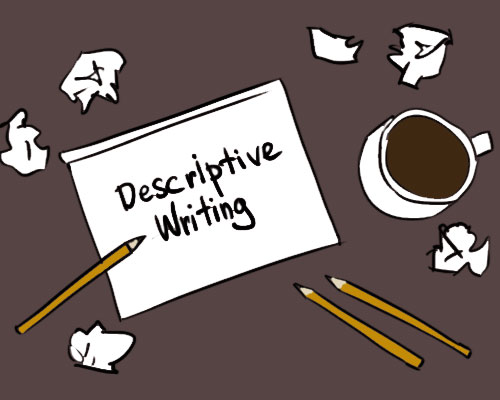
Best Tips on How to Write a Descriptive Essay
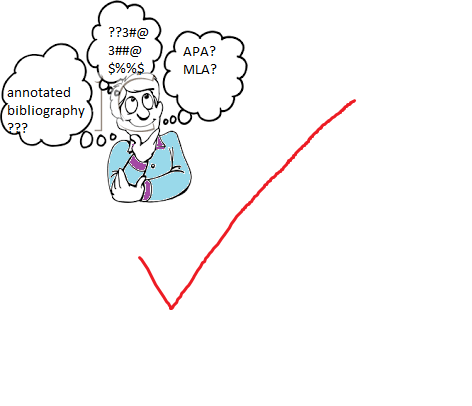
HOW TO PREPARE AN ANNOTATED BIBLIOGRAPHY
Home — Essay Samples — Nursing & Health — Psychiatry & Mental Health — Depression
Essays About Depression
Depression essay topic examples.
Explore topics like the impact of stigma on depression, compare it across age groups or in literature and media, describe the emotional journey of depression, discuss how education can help, and share personal stories related to it. These essay ideas offer a broad perspective on depression, making it easier to understand and engage with this important subject.
Argumentative Essays
Argumentative essays require you to analyze and present arguments related to depression. Here are some topic examples:
- 1. Argue whether mental health stigma contributes to the prevalence of depression in society.
- 2. Analyze the effectiveness of different treatment approaches for depression, such as therapy versus medication.
Example Introduction Paragraph for an Argumentative Essay: Depression is a pervasive mental health issue that affects millions of individuals worldwide. This essay delves into the complex relationship between mental health stigma and the prevalence of depression in society, examining the barriers to seeking help and the consequences of this stigma.
Example Conclusion Paragraph for an Argumentative Essay: In conclusion, the analysis of mental health stigma's impact on depression underscores the urgent need to challenge and dismantle the stereotypes surrounding mental health. As we reflect on the far-reaching consequences of stigma, we are called to create a society that fosters empathy, understanding, and open dialogue about mental health.
Compare and Contrast Essays
Compare and contrast essays enable you to examine similarities and differences within the context of depression. Consider these topics:
- 1. Compare and contrast the symptoms and risk factors of depression in adolescents and adults.
- 2. Analyze the similarities and differences between the portrayal of depression in literature and its depiction in modern media.
Example Introduction Paragraph for a Compare and Contrast Essay: Depression manifests differently in various age groups and mediums of expression. This essay embarks on a journey to compare and contrast the symptoms and risk factors of depression in adolescents and adults, shedding light on the unique challenges faced by each demographic.
Example Conclusion Paragraph for a Compare and Contrast Essay: In conclusion, the comparison and contrast of depression in adolescents and adults highlight the importance of tailored interventions and support systems. As we contemplate the distinct challenges faced by these age groups, we are reminded of the need for age-appropriate mental health resources and strategies.
Descriptive Essays
Descriptive essays allow you to vividly depict aspects of depression, whether it's the experience of the individual or the societal impact. Here are some topic ideas:
- 1. Describe the emotional rollercoaster of living with depression, highlighting the highs and lows of the experience.
- 2. Paint a detailed portrait of the consequences of untreated depression on an individual's personal and professional life.
Example Introduction Paragraph for a Descriptive Essay: Depression is a complex emotional journey that defies easy characterization. This essay embarks on a descriptive exploration of the emotional rollercoaster that individuals with depression experience, delving into the profound impact it has on their daily lives.
Example Conclusion Paragraph for a Descriptive Essay: In conclusion, the descriptive portrayal of the emotional rollercoaster of depression underscores the need for empathy and support for those grappling with this condition. Through this exploration, we are reminded of the resilience of the human spirit and the importance of compassionate understanding.
Persuasive Essays
Persuasive essays involve arguing a point of view related to depression. Consider these persuasive topics:
- 1. Persuade your readers that incorporating mental health education into the school curriculum can reduce the prevalence of depression among students.
- 2. Argue for or against the idea that employers should prioritize the mental well-being of their employees to combat workplace depression.
Example Introduction Paragraph for a Persuasive Essay: The prevalence of depression underscores the urgent need for proactive measures to address mental health. This persuasive essay asserts that integrating mental health education into the school curriculum can significantly reduce the prevalence of depression among students, offering them the tools to navigate emotional challenges.
Example Conclusion Paragraph for a Persuasive Essay: In conclusion, the persuasive argument for mental health education in schools highlights the potential for early intervention and prevention. As we consider the well-being of future generations, we are called to prioritize mental health education as an essential component of a holistic education system.
Narrative Essays
Narrative essays offer you the opportunity to tell a story or share personal experiences related to depression. Explore these narrative essay topics:
- 1. Narrate a personal experience of overcoming depression or supporting a loved one through their journey.
- 2. Imagine yourself in a fictional scenario where you advocate for mental health awareness and destigmatization on a global scale.
Example Introduction Paragraph for a Narrative Essay: Personal experiences with depression can be transformative and enlightening. This narrative essay delves into a personal journey of overcoming depression, highlighting the challenges faced, the support received, and the lessons learned along the way.
Example Conclusion Paragraph for a Narrative Essay: In conclusion, the narrative of my personal journey through depression reminds us of the resilience of the human spirit and the power of compassion and understanding. As we reflect on our own experiences, we are encouraged to share our stories and contribute to the ongoing conversation about mental health.
Critical Appraisal of Cognitive Behavioral Therapy in Treating Depression
Depression is depression an actual illness, made-to-order essay as fast as you need it.
Each essay is customized to cater to your unique preferences
+ experts online
Holden Caulfield Symptoms
The epidemic of depression among students and teenagers, the effects of depression in your body and its treatment, the issue of depression and its reality nowadays, let us write you an essay from scratch.
- 450+ experts on 30 subjects ready to help
- Custom essay delivered in as few as 3 hours
Overview of Biological Predispositions and Risk Factors Associated with Depression
How to overcome depression and anxiety, depression: definition, risks, symptoms and treatment, the best way to help someone who is depressed, get a personalized essay in under 3 hours.
Expert-written essays crafted with your exact needs in mind
The Issue of Depression: Mental Battle
What is a depression, living in depression: a firsthand account, teen depression - symptoms and causes, adolescent depression and its contribution to teenage suicides, the issue of depression and its affect in an emerging adulthood, depression: definition and ways of resolving caused problems, depression in teenagers: causes and ways to overcome, depression and its main causes, genetic disorder report: clinical depression, the way teachers can help their students to overcome anxiety and depression, depression and its effects of mind and body, the effectiveness of cognitive behavioural therapy (cbt) for treating individuals with depression and anxiety, how to overcome teenage depression, depression as the reason of serious health problems and suicide, a depressing world with different obstacles, the link between self-esteem and adolescent depression, darwinian psychology and depression: the gender differential hypothesis, prevention of depression, anxiety and burnout in resident doctors – a systematic review, dysregulated processing of negative and positive responses in depression.
Depression, known as major depressive disorder or clinical depression, is a psychological condition characterized by enduring feelings of sadness and a significant loss of interest in activities. It is a mood disorder that affects a person's emotional state, thoughts, behaviors, and overall well-being.
Its origin can be traced back to ancient civilizations, where melancholia was described as a state of sadness and melancholy. In the 19th century, depression began to be studied more systematically, and terms such as "melancholic depression" and "nervous breakdown" emerged. The understanding and classification of depression have evolved over time. In the early 20th century, Sigmund Freud and other psychoanalysts explored the role of unconscious conflicts in the development of depression. In the mid-20th century, the Diagnostic and Statistical Manual of Mental Disorders (DSM) was established, providing a standardized criteria for diagnosing depressive disorders.
Biological Factors: Genetic predisposition plays a role in depression, as individuals with a family history of the disorder are at a higher risk. Psychological Factors: These may include a history of trauma or abuse, low self-esteem, pessimistic thinking patterns, and a tendency to ruminate on negative thoughts. Environmental Factors: Adverse life events, such as the loss of a loved one, financial difficulties, relationship problems, or chronic stress, can increase the risk of depression. Additionally, living in a socioeconomically disadvantaged area or lacking access to social support can be contributing factors. Health-related Factors: Chronic illnesses, such as cardiovascular disease, diabetes, and chronic pain, are associated with a higher risk of depression. Substance abuse and certain medications can also increase vulnerability to depression. Developmental Factors: Certain life stages, including adolescence and the postpartum period, bring about unique challenges and changes that can contribute to the development of depression.
Depression is characterized by a range of symptoms that affect an individual's emotional, cognitive, and physical well-being. These characteristics can vary in intensity and duration but generally include persistent feelings of sadness, hopelessness, and a loss of interest or pleasure in activities once enjoyed. One prominent characteristic of depression is a noticeable change in mood, which can manifest as a constant feeling of sadness or emptiness. Individuals may also experience a significant decrease or increase in appetite, leading to weight loss or gain. Sleep disturbances, such as insomnia or excessive sleepiness, are common as well. Depression can impact cognitive functioning, causing difficulties in concentration, decision-making, and memory recall. Negative thoughts, self-criticism, and feelings of guilt or worthlessness are also common cognitive symptoms. Furthermore, physical symptoms may arise, including fatigue, low energy levels, and a general lack of motivation. Physical aches and pains, without an apparent medical cause, may also be present.
The treatment of depression typically involves a comprehensive approach that addresses both the physical and psychological aspects of the condition. It is important to note that the most effective treatment may vary for each individual, and a personalized approach is often necessary. One common form of treatment is psychotherapy, which involves talking to a mental health professional to explore and address the underlying causes and triggers of depression. Cognitive-behavioral therapy (CBT) is a widely used approach that helps individuals identify and change negative thought patterns and behaviors associated with depression. In some cases, medication may be prescribed to help manage depressive symptoms. Antidepressant medications work by balancing neurotransmitters in the brain that are associated with mood regulation. It is crucial to work closely with a healthcare provider to find the right medication and dosage that suits an individual's needs. Additionally, lifestyle changes can play a significant role in managing depression. Regular exercise, a balanced diet, sufficient sleep, and stress reduction techniques can all contribute to improving mood and overall well-being. In severe cases of depression, when other treatments have not been effective, electroconvulsive therapy (ECT) may be considered. ECT involves administering controlled electric currents to the brain to induce a brief seizure, which can have a positive impact on depressive symptoms.
1. According to the World Health Organization (WHO), over 264 million people worldwide suffer from depression, making it one of the leading causes of disability globally. 2. Depression can affect people of all ages, including children and adolescents. In fact, the prevalence of depression in young people is increasing, with an estimated 3.3 million adolescents in the United States experiencing at least one major depressive episode in a year. 3. Research has shown that there is a strong link between depression and other physical health conditions. People with depression are more likely to experience chronic pain, cardiovascular diseases, and autoimmune disorders, among other medical conditions.
The topic of depression holds immense significance and should be explored through essays due to its widespread impact on individuals and society as a whole. Understanding and raising awareness about depression is crucial for several reasons. Firstly, depression affects a significant portion of the global population, making it a pressing public health issue. Exploring its causes, symptoms, and treatment options can contribute to better mental health outcomes and improved quality of life for individuals affected by this condition. Additionally, writing an essay about depression can help combat the stigma surrounding mental health. By promoting open discussions and providing accurate information, essays can challenge misconceptions and foster empathy and support for those experiencing depression. Furthermore, studying depression allows for a deeper examination of its complex nature, including its psychological, biological, and sociocultural factors. Lastly, essays on depression can highlight the importance of early detection and intervention, promoting timely help-seeking behaviors and reducing the burden of the condition on individuals and healthcare systems. By shedding light on this critical topic, essays have the potential to educate, inspire action, and contribute to the overall well-being of individuals and society.
1. American Psychiatric Association. (2013). Diagnostic and statistical manual of mental disorders (5th ed.). American Psychiatric Publishing. 2. World Health Organization. (2017). Depression and other common mental disorders: Global health estimates. World Health Organization. 3. Kessler, R. C., Bromet, E. J., & Quinlan, J. (2013). The burden of mental disorders: Global perspectives from the WHO World Mental Health Surveys. Cambridge University Press. 4. Beck, A. T., Rush, A. J., Shaw, B. F., & Emery, G. (1979). Cognitive therapy of depression. Guilford Press. 5. Nierenberg, A. A., & DeCecco, L. M. (2001). Definitions and diagnosis of depression. The Journal of Clinical Psychiatry, 62(Suppl 22), 5-9. 6. Greenberg, P. E., Fournier, A. A., Sisitsky, T., Pike, C. T., & Kessler, R. C. (2015). The economic burden of adults with major depressive disorder in the United States (2005 and 2010). Journal of Clinical Psychiatry, 76(2), 155-162. 7. Cuijpers, P., Berking, M., Andersson, G., Quigley, L., Kleiboer, A., & Dobson, K. S. (2013). A meta-analysis of cognitive-behavioural therapy for adult depression, alone and in comparison with other treatments. Canadian Journal of Psychiatry, 58(7), 376-385. 8. Hirschfeld, R. M. A. (2014). The comorbidity of major depression and anxiety disorders: Recognition and management in primary care. Primary Care Companion for CNS Disorders, 16(2), PCC.13r01611. 9. Rush, A. J., Trivedi, M. H., Wisniewski, S. R., Nierenberg, A. A., Stewart, J. W., Warden, D., ... & Fava, M. (2006). Acute and longer-term outcomes in depressed outpatients requiring one or several treatment steps: A STAR*D report. American Journal of Psychiatry, 163(11), 1905-1917. 10. Kendler, K. S., Kessler, R. C., Walters, E. E., MacLean, C., Neale, M. C., Heath, A. C., & Eaves, L. J. (1995). Stressful life events, genetic liability, and onset of an episode of major depression in women. American Journal of Psychiatry, 152(6), 833-842.
Relevant topics
- Mental Health
- Eating Disorders
- Drug Addiction
By clicking “Check Writers’ Offers”, you agree to our terms of service and privacy policy . We’ll occasionally send you promo and account related email
No need to pay just yet!
We use cookies to personalyze your web-site experience. By continuing we’ll assume you board with our cookie policy .
- Instructions Followed To The Letter
- Deadlines Met At Every Stage
- Unique And Plagiarism Free
Essays About Depression: Top 8 Examples Plus Prompts
Many people deal with mental health issues throughout their lives; if you are writing essays about depression, you can read essay examples to get started.
An occasional feeling of sadness is something that everyone experiences from time to time. Still, a persistent loss of interest, depressed mood, changes in energy levels, and sleeping problems can indicate mental illness. Thankfully, antidepressant medications, therapy, and other types of treatment can be largely helpful for people living with depression.
People suffering from depression or other mood disorders must work closely with a mental health professional to get the support they need to recover. While family members and other loved ones can help move forward after a depressive episode, it’s also important that people who have suffered from major depressive disorder work with a medical professional to get treatment for both the mental and physical problems that can accompany depression.
If you are writing an essay about depression, here are 8 essay examples to help you write an insightful essay. For help with your essays, check out our round-up of the best essay checkers .
- 1. My Best Friend Saved Me When I Attempted Suicide, But I Didn’t Save Her by Drusilla Moorhouse
- 2. How can I complain? by James Blake
- 3. What it’s like living with depression: A personal essay by Nadine Dirks
- 4. I Have Depression, and I’m Proof that You Never Know the Battle Someone is Waging Inside by Jac Gochoco
- 5. Essay: How I Survived Depression by Cameron Stout
- 6. I Can’t Get Out of My Sweat Pants: An Essay on Depression by Marisa McPeck-Stringham
- 7. This is what depression feels like by Courtenay Harris Bond
8. Opening Up About My Struggle with Recurring Depression by Nora Super
1. what is depression, 2. how is depression diagnosed, 3. causes of depression, 4. different types of depression, 5. who is at risk of depression, 6. can social media cause depression, 7. can anyone experience depression, the final word on essays about depression, is depression common, what are the most effective treatments for depression, top 8 examples, 1. my best friend saved me when i attempted suicide, but i didn’t save her by drusilla moorhouse.
“Just three months earlier, I had been a patient in another medical facility: a mental hospital. My best friend, Denise, had killed herself on Christmas, and days after the funeral, I told my mom that I wanted to die. I couldn’t forgive myself for the role I’d played in Denise’s death: Not only did I fail to save her, but I’m fairly certain I gave her the idea.”
Moorhouse makes painstaking personal confessions throughout this essay on depression, taking the reader along on the roller coaster of ups and downs that come with suicide attempts, dealing with the death of a loved one, and the difficulty of making it through major depressive disorder.
2. How can I complain? by James Blake
“I wanted people to know how I felt, but I didn’t have the vocabulary to tell them. I have gone into a bit of detail here not to make anyone feel sorry for me but to show how a privileged, relatively rich-and-famous-enough-for-zero-pity white man could become depressed against all societal expectations and allowances. If I can be writing this, clearly it isn’t only oppression that causes depression; for me it was largely repression.”
Musician James Blake shares his experience with depression and talks about his struggles with trying to grow up while dealing with existential crises just as he began to hit the peak of his fame. Blake talks about how he experienced guilt and shame around the idea that he had it all on the outside—and so many people deal with issues that he felt were larger than his.
3. What it’s like living with depression: A personal essay by Nadine Dirks
“In my early adulthood, I started to feel withdrawn, down, unmotivated, and constantly sad. What initially seemed like an off-day turned into weeks of painful feelings that seemed they would never let up. It was difficult to enjoy life with other people my age. Depression made typical, everyday tasks—like brushing my teeth—seem monumental. It felt like an invisible chain, keeping me in bed.”
Dirks shares her experience with depression and the struggle she faced to find treatment for mental health issues as a Black woman. Dirks discusses how even though she knew something about her mental health wasn’t quite right, she still struggled to get the diagnosis she needed to move forward and receive proper medical and psychological care.
4. I Have Depression, and I’m Proof that You Never Know the Battle Someone is Waging Inside by Jac Gochoco
“A few years later, at the age of 20, my smile had fallen, and I had given up. The thought of waking up the next morning was too much for me to handle. I was no longer anxious or sad; instead, I felt numb, and that’s when things took a turn for the worse. I called my dad, who lived across the country, and for the first time in my life, I told him everything. It was too late, though. I was not calling for help. I was calling to say goodbye.”
Gochoco describes the war that so many people with depression go through—trying to put on a brave face and a positive public persona while battling demons on the inside. The Olympic weightlifting coach and yoga instructor now work to share the importance of mental health with others.
5. Essay: How I Survived Depression by Cameron Stout
“In 1993, I saw a psychiatrist who prescribed an antidepressant. Within two months, the medication slowly gained traction. As the gray sludge of sadness and apathy washed away, I emerged from a spiral of impending tragedy. I helped raise two wonderful children, built a successful securities-litigation practice, and became an accomplished cyclist. I began to take my mental wellness for granted. “
Princeton alum Cameron Stout shared his experience with depression with his fellow Tigers in Princeton’s alumni magazine, proving that even the most brilliant and successful among us can be rendered powerless by a chemical imbalance. Stout shares his experience with treatment and how working with mental health professionals helped him to come out on the other side of depression.
6. I Can’t Get Out of My Sweat Pants: An Essay on Depression by Marisa McPeck-Stringham
“Sometimes, when the depression got really bad in junior high, I would come straight home from school and change into my pajamas. My dad caught on, and he said something to me at dinner time about being in my pajamas several days in a row way before bedtime. I learned it was better not to change into my pajamas until bedtime. People who are depressed like to hide their problematic behaviors because they are so ashamed of the way they feel. I was very ashamed and yet I didn’t have the words or life experience to voice what I was going through.”
McPeck-Stringham discusses her experience with depression and an eating disorder at a young age; both brought on by struggles to adjust to major life changes. The author experienced depression again in her adult life, and thankfully, she was able to fight through the illness using tried-and-true methods until she regained her mental health.
7. This is what depression feels like by Courtenay Harris Bond
“The smallest tasks seem insurmountable: paying a cell phone bill, lining up a household repair. Sometimes just taking a shower or arranging a play date feels like more than I can manage. My children’s squabbles make me want to scratch the walls. I want to claw out of my own skin. I feel like the light at the end of the tunnel is a solitary candle about to blow out at any moment. At the same time, I feel like the pain will never end.”
Bond does an excellent job of helping readers understand just how difficult depression can be, even for people who have never been through the difficulty of mental illness. Bond states that no matter what people believe the cause to be—chemical imbalance, childhood issues, a combination of the two—depression can make it nearly impossible to function.
“Once again, I spiraled downward. I couldn’t get out of bed. I couldn’t work. I had thoughts of harming myself. This time, my husband urged me to start ECT much sooner in the cycle, and once again, it worked. Within a matter of weeks I was back at work, pretending nothing had happened. I kept pushing myself harder to show everyone that I was “normal.” I thought I had a pattern: I would function at a high level for many years, and then my depression would be triggered by a significant event. I thought I’d be healthy for another ten years.”
Super shares her experience with electroconvulsive therapy and how her depression recurred with a major life event despite several years of solid mental health. Thankfully, Super was able to recognize her symptoms and get help sooner rather than later.
7 Writing Prompts on Essays About Depression
When writing essays on depression, it can be challenging to think of essay ideas and questions. Here are six essay topics about depression that you can use in your essay.

Depression can be difficult to define and understand. Discuss the definition of depression, and delve into the signs, symptoms, and possible causes of this mental illness. Depression can result from trauma or personal circumstances, but it can also be a health condition due to genetics. In your essay, look at how depression can be spotted and how it can affect your day-to-day life.
Depression diagnosis can be complicated; this essay topic will be interesting as you can look at the different aspects considered in a diagnosis. While a certain lab test can be conducted, depression can also be diagnosed by a psychiatrist. Research the different ways depression can be diagnosed and discuss the benefits of receiving a diagnosis in this essay.
There are many possible causes of depression; this essay discusses how depression can occur. Possible causes of depression can include trauma, grief, anxiety disorders, and some physical health conditions. Look at each cause and discuss how they can manifest as depression.

There are many different types of depression. This essay topic will investigate each type of depression and its symptoms and causes. Depression symptoms can vary in severity, depending on what is causing it. For example, depression can be linked to medical conditions such as bipolar disorder. This is a different type of depression than depression caused by grief. Discuss the details of the different types of depression and draw comparisons and similarities between them.
Certain genetic traits, socio-economic circumstances, or age can make people more prone to experiencing symptoms of depression. Depression is becoming more and more common amongst young adults and teenagers. Discuss the different groups at risk of experiencing depression and how their circumstances contribute to this risk.
Social media poses many challenges to today’s youth, such as unrealistic beauty standards, cyber-bullying, and only seeing the “highlights” of someone’s life. Can social media cause depression in teens? Delve into the negative impacts of social media when writing this essay. You could compare the positive and negative sides of social media and discuss whether social media causes mental health issues amongst young adults and teenagers.
This essay question poses the question, “can anyone experience depression?” Although those in lower-income households may be prone to experiencing depression, can the rich and famous also experience depression? This essay discusses whether the privileged and wealthy can experience their possible causes. This is a great argumentative essay topic, discuss both sides of this question and draw a conclusion with your final thoughts.
When writing about depression, it is important to study examples of essays to make a compelling essay. You can also use your own research by conducting interviews or pulling information from other sources. As this is a sensitive topic, it is important to approach it with care; you can also write about your own experiences with mental health issues.
Tip: If writing an essay sounds like a lot of work, simplify it. Write a simple 5 paragraph essay instead.
FAQs On Essays About Depression
According to the World Health Organization, about 5% of people under 60 live with depression. The rate is slightly higher—around 6%—for people over 60. Depression can strike at any age, and it’s important that people who are experiencing symptoms of depression receive treatment, no matter their age.
Suppose you’re living with depression or are experiencing some of the symptoms of depression. In that case, it’s important to work closely with your doctor or another healthcare professional to develop a treatment plan that works for you. A combination of antidepressant medication and cognitive behavioral therapy is a good fit for many people, but this isn’t necessarily the case for everyone who suffers from depression. Be sure to check in with your doctor regularly to ensure that you’re making progress toward improving your mental health.
If you’re still stuck, check out our general resource of essay writing topics .

Amanda has an M.S.Ed degree from the University of Pennsylvania in School and Mental Health Counseling and is a National Academy of Sports Medicine Certified Personal Trainer. She has experience writing magazine articles, newspaper articles, SEO-friendly web copy, and blog posts.
View all posts
- Call to +1 844 889-9952
222 Depression Research Topics & Essay Examples
📝 depression research papers examples, 💡 essay ideas on depression, 🎓 simple research topics about depression, 👍 good depression essay topics to write about, 🏆 best depression essay titles, ✍️ depression essay topics for college, 📣 depression discussion questions, ❓ depression research questions.
- The Correlation Between Discrimination/Prejudice and Depression/Anxiety Psychology essay sample: The purpose of this research proposal is to identify the components of the study about the correlation between discrimination/prejudice and depression/anxiety.
- Depression in Children: Symptoms and Treatments Psychology essay sample: Depression can make children not perform the duties they are assigned to do well. A caregiver can easily discover a small child’s depression by change of bowel habit.
- Depression and Postpartum Depression Relationship Psychology essay sample: This article discusses the relationship between depression and postpartum depression, the possible causes, and forms of the disease, its consequences for the woman's psyche.
- Depression as Bad a Clinical Condition Psychology essay sample: Specialists in mental health state that depression is the most common disorder they encounter on the daily basis. The following paper aims to provide evidence of the existence of it.
- Different Types of Training in Managing the Symptoms of Depression Psychology essay sample: The proposed study will compare the effectiveness of different types of training in managing the symptoms of depression. It will be considered by people with moderate depression.
- Postpartum Depression (PPD) and Its Identification Psychology essay sample: Katon, Russo, and Gavin focused on the problem of postpartum depression and its identification, because it is a common issue that leads to adverse health outcomes.
- Diseases of Modern Life Psychology essay sample: Bipolar disorder and major depression are two very similar mood disorders that are often confused and misdiagnosed.
- Mental Illness: Treatment Approaches and Challenges Psychology essay sample: The treatment of forensic populations, as with any clinical population, must be tailored to the individuals as well as to their mental illness.
- Schizophrenia, Bipolar Disorder and Antidepressants Psychology essay sample: The variety of mental disorders may often confuse terms of disease differentiation due to the lack of proper education. Schizophrenia and bipolar disorder are examples of such confusion.
- Adult Depression and Anxiety as a Complex Problem Psychology essay sample: The presence of a physical disability is a major factor in developing a mental health condition due to the increase in dissatisfaction and the presence of multiple irritants.
- Abnormal Psychology: Anxiety and Depression Case Psychology essay sample: Abnormal psychology has many theories that emerged to describe the concept. It has components like biological, cognitive, behavioral as well as social-cultural models.
- American Adolescence. Teenage Problems Psychology essay sample: There are those psychological problems that youngsters cannot omit simply because of the society they currently live in.
- Treatment for Depressive and Bipolar Disorders Psychology essay sample: The study shows that an online intervention can be a part of treatment for people with BD, providing support not only for mania but also for depression.
- Psychology: Mental Health Issues Psychology essay sample: This paper contains a review of primary causes leading to mental illnesses along with available social and individual measures intended to cope with them.
- Depression Caused by Hormonal Imbalance, Socialisation of Children Psychology essay sample: Social life is utterly important for the mental health and socialization of children. They need parents to care about them and help to become a part of society.
- Divorce Effect on Children's Mental Health Psychology essay sample: The family dissolution process, a conflict between parents, custody issues, and negative post-divorce relationships adversely influence the mental health of children.
- Psychological Assessment Report Psychology essay sample: The client, Kyle Jones, is a 45-year-old professor working full-time at the Catholic University. The client’s cognitive functioning was impaired after a car accident.
- What You Need to Know About Depression Psychology essay sample: The article is devoted to depression: a definition is given, the causes, signs, types, and methods of therapy are considered.
- Personality Psychology and Depression Psychology essay sample: This paper presents an analysis of the connection between personality psychology and depression. Today, many attempts are made to investigate depressive symptoms.
- Interacting in the Workplace: Depression Psychology essay sample: Depression is a menace that affects a number of people in different ways. In the workplace, there are a number of ways used to tell whether a person is undergoing mental stress.
- Postpartum Depression. Consequences Psychology essay sample: These days more and more women approach the decision to have a baby very consciously, choosing the time when they are physically and emotionally prepared.
- Cognitive Behavior and Depression in Adolescents Psychology essay sample: People of different ages are prone to various psychological and emotional issues, especially in the current world that is transforming at a high pace.
- Social Problems Associated With Mental Illness and Health Promotion Psychology essay sample: Troubles with psychological health can create barriers to being employed, partially because mental illnesses are commonly stigmatized.
- Females’ Instagram Use and Psychological Well-Being Psychology essay sample: Sherlock and Wagstaff tested the hypothesis that the time spent by women on Instagram was positively correlated with body dissatisfaction, depression, and social comparison.
- Rational Emotive Behavior Therapy Psychology essay sample: Rational emotive behavior therapy is a therapy approach that involves the identification and replacement of negative behaviors with positive ones.
- Lack of Sleep at King Fahd University of Petroleum and Minerals Psychology essay sample: This paper aims to explore the detrimental effects of sleep deprivation among KFUPM students and techniques for how they can manage time and stress to get adequate sleep.
- Aggression in Psychology Psychology essay sample: This emotion is difficult to define, and psychologists, judges, and lawyers have been trying to determine what actions should and should not be considered aggressive for a long time.
- Childhood Trauma: Disorders and Risky Behavior Psychology essay sample: Young people with a history of childhood abuse have a higher likelihood of participating in HIV risk behaviors such as having sex with multiple partners and having unprotected sex.
- Personality Psychology and Depression Psychology essay sample: The depression study in the personality psychology scope assesses the psychology models connection with personality traits, analyzing the depression propagation among adolescents.
- Depression in Young People: Articles Review Psychology essay sample: Depression is one of the mental health disorders progressively observed among the world population. The articles included in the annotated bibliography research this disease.
- Bipolar Type II Diagnosis and Treatment Psychology essay sample: The article examines the clinical differences between bipolar disorder type I and bipolar disorder type II since the difficulty in choosing a correct diagnosis.
- Concepts of Clinical Psychology Psychology essay sample: This paper revises three scholarly articles about mental disorders. Psychological disorders are a list of ailments with behavioral symptoms and can affect different areas of life.
- “Living With Depression” by Karp Psychology essay sample: In the article “Living with Depression: Illness and Identity Turning Points”, the author tries to investigate how different patients tend to interpret this incoherent illness.
- Resource Listing on Depression and Anxiety Psychology essay sample: This paper aims at creating a list of resources, including private agencies, counselors, websites, and publications that can help individuals.
- Two Sides of Depression Disease Psychology essay sample: Depression is a widespread disease in the modern world, and that is why people often do not fully understand how it works.
- Assessment of Counseling Methods: The Case Study Psychology essay sample: This paper explores the fallacies that emerge during the therapy of John, a young man indulging in substance abuse.
- Depression Among Minority Groups Psychology essay sample: Mental disorders stem from the existing or non-existence of internal emotional and psychological threats from which the individual lacks the mechanisms for control.
- Community of Single Mothers in California Psychology essay sample: This study is focused on the community of single mothers in San Bernardino County, California. The primary focus is on those single moms that have been diagnosed with depression.
- Causes and of Treatment Mood Disorders Psychology essay sample: Mood disorders are a group of mental diseases caused by chemical imbalances in the brain which causes the patient to have irregular changes in their moods.
- Early Separation and Suicide Psychology essay sample: When early separation occurs, a child who is not well taken care of can potentially succumb to mental problems, which can, in turn, act as a motivation for suicide.
- Mood Disorder: Depression and Bipolar Psychology essay sample: This discourse explores the link between depression and bipolar disorder, insofar as their etiology, assessment, diagnosis, and treatment are concerned.
- Postpartum Depression in the Twenty- First Century Psychology essay sample: A major assumption posited by researchers is that ‘social support’ is a key determinant in the prevention of postpartum depression.
- Differents Forms to Stress, Pandemic of Stress Psychology essay sample: In this paper, stress is a major problem in the world today. Many countries and many individuals and families are victims of stress-related problems.
- Depression: A Serious Mental and Behavioral Problem Psychology essay sample: Depression is a health problem that is difficult to diagnose. One way to help improve the detection of diagnosis is to use a genogram.
- Grief Response of Patients Diagnosed With Cancer Psychology essay sample: The beginning of anticipatory grief begins when as children, we realize that we will all die or lose a loved one at some point in life. This should prepare us for the loss.
- Depression Management in Adolescent Psychology essay sample: Adolescents are men and women in their transitional age from childhood to youth. Their age bracket is from ten to twenty-two.
- Depression and Physical Exercise Psychology essay sample: Physical activity and cognitive health are two inseparable concepts. Physical activity is a great way to reduce stress and cure depression.
- Psychological Disorder Analysis - Marla`S Diagnosis Psychology essay sample: In this case, the social cultural model is highly recommended as a form of treatment. This is because individuals from minority groups abandon therapy earlier than those from other groups.
- Depression in Older Person Psychology essay sample: The rising incidence of depression in older person has a correlation with age, gender, genetics, lifestyle, interpersonal relationship and the level of education.
- Maternal Mood Symptoms in Pregnancy and Postpartum Depression Psychology essay sample: As a woman, it is essential to understand postpartum depression and the fact that it can happen to any woman during or after pregnancy.
- Childhood Trauma Etiology Associated With Social and Mental Disorders Psychology essay sample: This paper will showcase the five themes that were revealed during the review process to better understand the associations between childhood trauma and various disorders.
- Stress and Anxiety Sources Amongst Students Psychology essay sample: This paper discusses some of the major sources of physiological, social, and psychological stress and anxiety in students.
- Group Therapy in Psychology: Strengths and Limitations Psychology essay sample: This paper aims to gather relevant data on group therapy in psychology, present its strengths and limitations, and outline the differences between group and individual approaches.
- Suicide in Adolescence Psychology essay sample: In the paper psychoeducational intervention for adolescents is developed and evaluated to improve suicide-related outcomes for high-risk students.
- Counselling Clients with Depression and Addiction Psychology essay sample: Clinicians should "understand that depression is associated with the racism or sexism that marginalized groups experience in their daily lives".
- Measurement of an Individual’s Level of Depression Psychology essay sample: Beck Depression Inventory is a systematic measurement of an individual's level of depression. Individuals who fall in the age group of 15 to 19 are the most vulnerable.
- Postpartum Depression Among Low-Income U.S. Mothers Psychology essay sample: Postpartum depression is a major issue, which takes place after a woman gives birth. The problem is more prominent and prevalent among mothers who have a low-socioeconomic status.
- Autism Spectrum Disorder (ASD): Case Study Psychology essay sample: The case study about the patient with ASD will involve the identification of specific problems, the assessment of risk factors, and a review of models of abnormality.
- Psychological and Emotional Conditions of Suicide and Depression Psychology essay sample: Art and literature have been the niches that have allowed dissecting the issue of suicide without significant social reprimand toward the authors.
- Joan’s Case Conceptualization Psychology essay sample: The paper discusses Joan’s case. She is a 48-year-old woman who reports stress and depression. She has lost interest in relationships, exercise, and things she enjoys.
- Postpartum Depression: Symptoms, Role of Cultural Factors, and Ways To Support Psychology essay sample: Symptoms of postpartum depression differ from one woman to another and often range from mild to severe, they include intense irritability coupled with anger, insomnia, etc.
- Researching: Illness and Mental Health Psychology essay sample: The following paper will explain how mental health can be considered in ill patients and focused on a particular population
- Psychological Complications of Illness and Injuries Psychology essay sample: Depression associated with illness is a serious concern for patients, families, and healthcare professionals, as it might affect health outcomes
- Psychology of Depression Among College Students Psychology essay sample: Depression has serious effects among college students: poor academic performance, the development of suicidal thoughts, failed relationships, and loss of zeal for goal achievement.
- Military Resiliency Counseling and Care-Giving Psychology essay sample: This course aims to identify the key fears of people who have the problem of adapting to real life after participating in hostilities.
- Depression Associated with Cognitive Dysfunction Psychology essay sample: Low episodic memory performance precedes depression, which demonstrates that depression is associated with cognitive dysfunctions.
- Childhood Traumatic Experience Psychology essay sample: This paper examines the effect of childhood traumas on adulthood, including cognitive abilities, social behavior, and mental health, through the prism of scientific evidence.
- Depression and Anxiety Among College Students Psychology essay sample: The research question this paper tries to answer whether depression and anxiety are common in college students, and if so, what are the causes and possible consequences.
- Anxiety Disorder and Its Characteristics Psychology essay sample: This paper focuses on the fundamental characteristics of anxiety and its theories and treatment options imperially supported.
- People with Asperger's Syndrome: The Effects of Group Trainings Psychology essay sample: To effectively determine how group training affects adults and children with Asperger's syndrome, many researchers do use experimental research design.
- Resilience and Exposure to Trauma Relationship Psychology essay sample: This essay will discuss the relationship between stress, psychological stability, and mental health outcomes after distressing events.
- Emotion Regulation Therapy for Generalized Anxiety Disorder Psychology essay sample: Emotional Regulation Therapy demonstrates significant improvement in treating anxiety, depression, life satisfaction, ruminating, worrying, and being unable to manage feelings.
- Depression and Impact of Human Services Worker Psychology essay sample: Depression is a feeling of constant sadness and loss of interest, affecting how a person performs their day-to-day activities, it can stay for long without being recognized.
- DSM-5 Anxiety Disorders: Causes and Treatment Psychology essay sample: This research paper discusses the DSM-5 anxiety disorders reviewing the diagnosis, a case conceptualization, and a treatment plan.
- Cell Phones and Mental Health Psychology essay sample: Limited use of smartphones, current human companions, makes life easier and enjoyable, while excessive screen time may bring severe mental health consequences.
- Literature Review on Depression Psychology essay sample: The paper summarizes other researchers' work addressing the issue of depression using several databases and carries out a curative study on depression in full text.
- The Role of Family in Depression Treatment Psychology essay sample: Psychologists do a great job of helping people deal with their worries and fears because sometimes the patients have no one who could be trusted apart from the counselor.
- Stress Among Ethnic Minority Adolescents and Mindfulness Intervention Psychology essay sample: The purpose of the proposed research is to investigate the effect of a school-based mindfulness-based intervention on stress among ethnic minority adolescents.
- Professional Psychology: Obtaining a Counselor License Psychology essay sample: The paper is dedicated to the analysis of the profession of a psychologist. The aim is to create an algorithm, adherence to which will help obtain a license of a counselor.
- Couple Separation and Family Counseling Techniques Psychology essay sample: This paper aims to discuss advisory deliberations, expected effects due to separation, and the most effective family counseling techniques.
- Depression Disassembling and Treating Psychology essay sample: Depression is a pathology in its neglected form when the individual begins to have more severe symptoms - persistent nervous system disorders.
- Depressive Symptoms Statistics in the 1990s and Now Psychology essay sample: Between 1990 and 2010, the incidence of mental health problems and depression diagnoses in patients declined modestly.
- Anxiety and Decision Making: Literature Review Psychology essay sample: It is important to continue collecting the evidence to establish connections between levels of anxiety and computations that support decision-making.
- Psychology: Pluralism, Counselling Psychology Psychology essay sample: The reviewed articles were chosen for several reasons. First, they explore different topics in the field of counseling psychology.
- Experience of Childhood Trauma from Child Abuse/Maltreatment Psychology essay sample: This paper aims to analyze the experience of childhood trauma from child abuse/maltreatment, outcomes included, and relevant literature search results and annotated bibliography.
- Child Abuse and Depression Psychology essay sample: This essay argues that neglect, emotional distress, and limited access to psychological treatment during childhood alleviate depression and other mental conditions.
- Polysubstance Abuse Among Adolescent Males With Depression Psychology essay sample: Substance abuse among adolescents can be caused by depression. In this case, the adolescents down ply the idea of seeking psychological support
- Depression in Adolescents and Suitable Interventions Psychology essay sample: Critically, the issue of depression is pronounced in the age bracket due to confusion brought on by the changes happening and also peer pressure.
- Early-Life Stress and Behavioral Outcomes Psychology essay sample: The study aims to understand the mechanisms behind the long-lasting consequences of early-life stress exposure. It is accomplished by comparing the results of tests.
- Reducing Depressive Symptoms and Suicidal Tendencies in Adolescents Psychology essay sample: Cognitive-behavioral therapy addresses children, teenagers, adult survivors overcoming the harmful repercussions of early trauma for their unique mental and emotional needs.
- Aspects of Abnormal Psychology Psychology essay sample: Abnormal psychology studies psychological disorders and ways to improve the lives of those affected by them. There are several perspectives on the pathology.
- Depression: Symptoms and Treatment Psychology essay sample: Depression symptoms may be divided into three categories. The three categories are psychological, physical and social symptoms.
- Preventing Child Suicide: The Role of Family Therapy Psychology essay sample: Due to the increasing number of child suicide cases, more studies need to be done on various types of family therapy and other psychotherapies in preventing suicide.
- Experience of Trauma from Child Maltreatment Psychology essay sample: Summing up the findings of various researchers as well as using databases, studies confirm an undeniable influence of maltreatment on the later development and life of a child.
- Approaches for Treating Depression Psychology essay sample: Dialectical Behavioral Therapy (DBT) is a type of Cognitive Behavioral Therapy (CBT) and one of the most effective approaches for treating depression.
- Managing Anxiety in Evidence-Based Practice Psychology essay sample: This EBP project proposal focuses on nonpharmacological treatment that does not involve the administration of drugs. It tries to effectively manage anxiety.
- Andrew Solomon: Why We Can't Talk About Depression Psychology essay sample: The main difficulty of depression lies in communicating the patient's condition to those around him. Many people use the word "depression" to describe a bad mood.
- Mental Health Disorders Most Commonly Found in Teenagers Psychology essay sample: The present essay focuses on anxiety, depression, and behavioral disorders because these mental health disorders are the most widely spread among teenagers.
- Approaches a Therapist Could Use to Help Lawrence Psychology essay sample: Lawrence thought he would never come out from underneath the hiding spot while he was despondent. Even some of the most severe depression, nonetheless, can be treated.
- The Link Between the Birth Experience and Postnatal Depression Psychology essay sample: This study offers an overview of the latest scholarly research surrounding postnatal depression to determine whether the birth experience contributes to postpartum depression.
- Evidence-Based Screening for Depression in Acute Care Psychology essay sample: EB analysis for the topic of depression to identify the need for an appropriate screening tool in addition to the PHQ-9 in the assessment evaluation process.
- Beck’s Postpartum Depression Theory: Purpose, Concepts, and Significance Psychology essay sample: This paper aims to describe, analyze and evaluate Beck's Postpartum Depression Theory, and discuss its purpose, concepts, and significance.
- Cognitive-Behavioral Therapy for Generalized Anxiety Disorder and Depression Psychology essay sample: Treatment of psychological disorders requires the application of additional methods that might help with the physical state of people and their mental well-being.
- Teen Depression and Suicide in Soto “The Afterlife” Psychology essay sample: In “The Afterlife,” Gary Soto scrutinizes the challenges to teen mental health by portraying the protagonist observing from a side perspective the challenges faced by teenagers.
- Depression and Anxiety Run in the Family Psychology essay sample: This paper examines the possibilities of depression and anxiety in one family through the study of literature and applying one of the family theories.
- Humanistic Therapy of Depression Psychology essay sample: The mental health of the population is becoming a topical concern for numerous countries around the world, and, the need for effective and holistic treatments arises.
- Treating Mood Disorders and Depression Psychology essay sample: This paper discusses treating mood disorders. Medications, which are used to cure people with such diseases, always include a combination of various drugs.
- Major Depressive Disorder: Symptoms and Treatment Psychology essay sample: In the case described in the paper, symptoms can be observed that stand out in Major Depressive Disorder, which is characterized by losing interest in activities.
- Depression in Older Adults: Causes and Treatment Psychology essay sample: The main factors in the progression of depressive disorder in old age are traumatic life events, lifestyle, and chronic illness.
- Bullying: Collaborating with Parents to Increase Proactive Bystander Message Psychology essay sample: Bullying could potentially lead to anxiety, depression, and post-traumatic stress. These symptoms could be typical also to the bystanders.
- Mental Illness, Depression, and Wellness Issues Psychology essay sample: Mental illness and depression are a silent plague and a sleeper problem that has slipped into millions' brains, hence being highlighted in various forms of media.
- Anxiety and Depression During Childhood and Adolescence Psychology essay sample: Attachment can be defined as the bond shared between two or more persons. People may have emotional closeness with one another.
- Depression as a Widespread Mental Condition Psychology essay sample: The paper investigates depression among individuals as it is a widespread mental condition. It focuses on the effects of depression that result from this condition.
- Teenagers’ Depression Experiment Psychology essay sample: There are many reasons why teenagers become depressed. All of these traumatize the child's psyche and prevent him or her from feeling like a full member of society.
- The Best Solution to Predict Depression Because of Bullying Psychology essay sample: This paper examines interventions to prove that the Olweus Bullying Prevention Program is the most effective solution for predicting depression provoked by bullying.
- Depression Among Students at Elon University Psychology essay sample: This paper entails an analysis of the problem of depression in colleges, specifically, at Elon University, and it includes its causes and suggested remedies.
- Effects of Depression Among Adolescents Psychology essay sample: Depression is a problem that affects all demographics, but this paper focuses on adolescents as its main point of discussion. Depression is a major cause of mental health.
- Social Aspects of Depression and Anxiety Psychology essay sample: Depression and anxiety disorders are problems that bring the mental state out of balance and significantly complicate normal life.
- Discussion Board-Anxiety and Depression Psychology essay sample: The article addresses the urgent need for early intervention and support to prevent suicide in individuals suffering from severe depression.
- Exercise Therapy for Patients With Depression and Anxiety
- Acceptance and Commitment Therapy for Depression
- Yoga Therapy and Depression Symptom in Adult Patients
- Dysthymic Disorder Depression Therapy Symptoms
- Depression in Later Life Overview Older populations have significantly high rates of depression due to life contexts or underlying medical conditions leading to poor quality of life and other health risks.
- Childhood Mistreatment and Adolescent and Young Adult Depression
- Transcranial Direct Current Stimulation as an Add-on Treatment to Cognitive-Behavior Therapy in First Episode Drug-Nave Major Depression Patients
- Cognitive Behavioral Therapy and the Application for Psychotic Depression
- Cognitive Behavioral Therapy for Depression and Anxiety Attacks
- Herbal and Complementary Therapies for Depression The paper dwells on the pharmacological effects of herbal and complementary therapies used for depression and nursing implications.
- Metacognitive Therapy for Depression in Adults
- Relationship Between Depression and Subtypes of Early Life Stress in Adult Psychiatric Patients
- Family Therapy and Chronic Depression
- Cognitive Group Therapy for Depression in Adults
- Social Media: The Rise of Depression and Anxiety The increased use of social media in contemporary society adversely affects individuals resulting in depression and anxiety, particularly in those who use it regularly.
- Depression and Anxiety Among Adult Children of Alcoholics
- Managing Postpartum Depression Through Medications and Therapy
- Electroconvulsive Therapy for Severe Depression
- Mindfulness-Based Cognitive Therapy and Its Effects on Depression
- Depression and Workplace Violence Workplace violence is a growing problem and is recognized as “a critical safety and health hazard” in the United States.
- Flowers Therapy and Easiest Ways to Deal With Depression
- Risk Factors for Adult Depression: Adverse Childhood Experiences and Personality Functioning
- Depression: Medication Versus Cognitive Behavioral Therapy in Adolescents
- Approaching Depression Through the Solution Focused Brief Therapy Approach
- Depression in the Elderly Depression normally makes the elderly not to take pleasure in life as fully as they would wish. Normally, depression poses a serious threat on vigor.
- Adjunctive Bright Light Therapy for Bipolar Depression
- Depression and Anxiety Prevention Based on Cognitive Behavioral Therapy for At-Risk Adolescents
- Resting-State Functional Connectivity of Brain With Electroconvulsive Therapy in Depression
- Depression: Major Depressive Disorder and Major Life Changes
- Depression in the Elderly Male The research is dedicated to the problems and dangers that may be caused by depression and how it can be avoided or resolved.
- Multimodal Psychotherapeutic Inpatient Therapy of Depression in Patients With High Cytokine Production
- Music Therapy Improve Depression Among Older Adults
- Talk Therapy for Depression or Bipolar Disorder
- Clinical Improvement and Neural Reactivity in Adolescents Treated With Behavioral Therapy for Anxiety and Depression
- How Depression and Physical Issues Are Connected Depression is commonly associated with various symptoms, such as guilt, sadness, hopelessness, and irritability.
- Life After Depression With Hypno Psychotherapy
- Antidepressant Treatment for Depression: Total Therapy Duration
- Cognitive Group Therapy for Adult Depression
- The Relationship Between Adult Attachment Classification and Symptoms of Depression
- Anxiety and Depression in the Workplace This paper looks at the issues of anxiety and depression in the workplace with the focus on causes and ways of dealing with it as part of daily management exercise.
- Adolescent Depression and Cognitive Behavior Therapy
- Virtual Reality Group Therapy for the Treatment of Depression
- The New Therapy Technique for Depression
- Group Therapy for Heart Patients With Depression
- Depression Screening & Treatment in the Workplace The current paper states that depression and treatment have the potential of changing the financial position of employees and employers.
- Oriental Therapy: Alternative Treatment for Depression
- Cognitive-Behavioral Therapy Treatment for Adult Severe Depression
- Aaron Becks and Cognitive Behavior Therapy for Depression
- Massage Therapy Reducing Pain, Depression, and Anxiety in Hand Osteoarthritis Patients
- How Does Depression Affect an Individual’s Overall Quality of Life?
- Why Is Depression Hard to Overcome?
- How Does Depression Affect an Individual’s Overall Quality of Life?
- What Are the Major Types of Depression, and How Do They Differ?
- Why Is Early Diagnosis and Treatment Crucial in Managing Depression?
- Is Meditation a Good Way to Help People in Depression?
- Who Is More Susceptible to Depression, and Are There Specific Risk Factors?
- What Are the More Inconspicuous Symptoms of Depression?
- Can Depression Be a Chronic Condition, and How Is It Managed Over Time?
- What Is the Difference Between Clinical Depression and Normal Depression?
- Is Overthinking One of the Main Causes of Depression?
- How Does Depression Impact the Brain’s Functioning and Chemistry?
- Are There Physical Health Complications Associated with Long-Term Depression?
- What Role Do Genetics Play in the Development of Depression?
- Can Marijuana Help with Depression?
- What Is the Relationship Between Depression and Other Mental Health Disorders?
- Are There Good Habits That Help Overcome Depression?
- How Does Depression Affect Different Age Groups, From Children to Seniors?
- What Are Some Common Misconceptions About Depression? Why Is It Essential to Seek Professional Help for Depression?
- Is There an Evolutionary Explanation for Depression?
- Can Depression Be Managed Without Medication, Using Therapy Alone?
- How Does Depression Affect Our Daily Life?
- What Is the Difference Between Depression and Laziness?
- Are There Lifestyle Changes That Can Help Alleviate the Symptoms of Depression?
- What Is the Relationship Between Anxiety and Depression?
- Can Antidepressants Really Help Ease or Cure Depression?
- Who Are the Key Figures in the History of Depression Research and Treatment?
- Do Certain Life Events or Traumas Trigger Episodes of Depression?
- How Is Major Depression Different from Bipolar Depression?
- Can Depression in Children Manifest Differently Than in Adults?
- Does Brain-Derived Neurotrophic Factor Have an Effect in Depression Level?
- How Does Depression Affect the Teenage Generation?
- Does Working Past Age 65 Protect Against Depression?
- Does Regular Exercise Reduce Stress Levels and Thus Reduce Symptoms of Depression?
- How Medication and Therapy Combat Depression?
- Does Depression Lead to Suicide and Decreased Life Expectancy?
- How Does Diabetes Not Cause Depression?
- Does Emotional Intelligence Mediate the Relation Between Mindfulness and Anxiety and Depression in Adolescents?
- How Does the Cognitive Theory Explain the Etiology of Depression?
- Does Parent Depression Correspond With Child Depression?
- Does Social Anxiety and Stress Lead to Depression?
- Does Positive Psychology Ease Symptoms of Depression?
- How Does Depression Affect Productivity?
- Does Depression Cause Cancer?
- Does Poverty Impact Depression in African American Adolescents and the Development of Suicidal Ideations?
- How Cognitive Reserves Does Moderates Effects of White Matter Hyperintensity on Depressive Symptoms and Cognitive Function in Late-Life Depression?
- How Cognitive Therapy for Depression Reduces Interpersonal Problems?
- How Does Self-Esteem Interact With Adolescent Depression?
- Does Maternal Depression Hurt Parent-Child Attachment?
- Does Fruit and Vegetable Consumption During Adolescence Predict Adult Depression?
- How Can Depression Take Over Someone’s Life?
- How Has Depression Changed My Life Essay?
- Does the Average Person Experience Depression Throughout Their Life?
- Can Experiencing Depression Throughout All Life?
Cite this page
Select style
- Chicago (A-D)
- Chicago (N-B)
PsychologyWriting. (2023, October 8). 222 Depression Research Topics & Essay Examples. https://psychologywriting.com/topics/depression-research-topics/
"222 Depression Research Topics & Essay Examples." PsychologyWriting , 8 Oct. 2023, psychologywriting.com/topics/depression-research-topics/.
PsychologyWriting . (2023) '222 Depression Research Topics & Essay Examples'. 8 October.
PsychologyWriting . 2023. "222 Depression Research Topics & Essay Examples." October 8, 2023. https://psychologywriting.com/topics/depression-research-topics/.
1. PsychologyWriting . "222 Depression Research Topics & Essay Examples." October 8, 2023. https://psychologywriting.com/topics/depression-research-topics/.
Bibliography
PsychologyWriting . "222 Depression Research Topics & Essay Examples." October 8, 2023. https://psychologywriting.com/topics/depression-research-topics/.
- Intelligence
- Sigmund Freud
- Psychotherapy
- Child Development
- Abraham Maslow
- Child Abuse
📕 Studying HQ
100+ argumentative essay topics on mental health | example & outline, bob cardens.
- September 2, 2022
- Essay Topics and Ideas
Argumentative Essay Topics on Mental Health. Mental health is an important and often overlooked topic. In this article, we’ll explore some argumentative essay topics related to mental health .
As you continue, thestudycorp.com has the top and most qualified writers to help with any of your assignments. All you need to do is place an order with us.
What You'll Learn
Argumentative Essay Topics about Mental Health
1. Is there a connection between mental health and physical health? 2. How does mental illness affect a person’s ability to function in society? 3. What are the most effective treatments for mental illness? 4. Are there any effective prevention strategies for mental illness? 5. What is the relationship between mental health and substance abuse? 6. How does poverty affect mental health? 7. What are the most common mental disorders? 8. What are the consequences of untreated mental illness? 9. What are the risk factors for developing mental illness? 10. How can mental illness be effectively diagnosed?
Working on your Abstract, here are DNP Capstone project Abstract Examples [Outline & How-to]
Read more on Patient Falls Nursing Capstone Project Ideas & Topics with Prompts
Find out more Capstone Project Ideas for Nursing Leadership [50 Topics]
check out 130+ Good nursing capstone project ideas to Write About )
The literature review is one of the most challenging parts of your DNP capstone, here’s How to write a DNP Capstone Project Literature Review
The guidelines include How to write DNP capstone project Methodology Chapter
Argumentative essay topics about depression
1. Depression is a real mental health condition.
2. Depression is more than just feeling sad.
3. Depression can lead to serious physical health problems.
4. Depression is treatable with medication and therapy.
5. People with depression can lead happy, fulfilling lives.
6. Untreated depression can be deadly.
7. Depression is often misunderstood and stigmatized.
8. Depression is not a sign of weakness or a character flaw.
9. Anyone can develop depression, even people who seem to have it all together.
10. There is no single cause of depression, but there are risk factors that can make someone more likely to develop the condition.
Argumentative Essay Topics on Mental Health. Mental health is an important and often overlooked topic. In this article, we’ll explore some argumentative essay topics related to mental health.
Argumentative essay about mental health in schools
1. Mental health should be taught in schools. 2. There should be more support for mental health in schools. 3. Mental health should be taken more seriously in schools. 4. Schools should do more to prevent mental health problems. 5. Schools should do more to help students with mental health problems. 6. Mental health problems are increasing in schools. 7. school counselors are not trained to deal with mental health issues 8. most school don’t have a mental health policy 9. lack of awareness about mental health among school staff 10. stigma and discrimination against mental health patients
Argumentative essay on mental health stigma
Argumentative essay topics about mental health can be very controversial and sensitive. However, there are many people who are open to discussing these topics and raising awareness about mental health. Here are twenty argumentative essay topics about mental health that you can use for your next essay.
1. How does society view mental health? 2. Do we need to break the stigma around mental health? 3. How can we better support those with mental health conditions? 4. What is the link between mental health and addiction? 5. How does trauma affect mental health? 6. What are the most effective treatments for mental health conditions? 7. Are there any natural remedies for mental health conditions? 8. How does diet affect mental health? 9. How does exercise affect mental health? 10. What is the link between sleep and mental health? 11. What are the warning signs of a mental health condition? 12. When should someone seek professional help for a mental health condition? 13. How can family and friends support someone with a mental health condition? 14. What are the most common myths about mental health? 15. How does stigma impact those with mental health conditions?
16. How can we destigmatize mental health? 17. What is the link between mental health and violence? 18. How does mental health affect overall health? 19. What are the most common mental health disorders? 20. What are the most effective treatments for mental health disorders?
Mental health debate topics for students
1. The definition of mental health 2. The different types of mental illness 3. The causes of mental illness 4. The treatments for mental illness 5. The side effects of mental illness 6. The impact of mental illness on society 7. The cost of mental health care 8. Mental health in the workplace 9. Mental health in the media 10. Stigma and discrimination against those with mental illness 11. The impact of trauma on mental health 12. Mental health during pregnancy and postpartum 13. Children’s mental health 14. Geriatric mental health 15. Global perspectives on mental health 16. Religion and mental health 17. Cultural competence in mental health care 18. Social media and mental health 19.Nutrition and mental health
20. Exercise and mental health
Expository essay topics about mental illness
1. How does mental illness affect one’s ability to work? 2. What are the most common types of mental illness? 3. How can mental illness be prevented? 4. What are the most effective treatments for mental illness? 5. How does mental illness impact relationships? 6. What are the financial costs of mental illness? 7. How does stigma affect those with mental illness? 8. What are the most common myths about mental illness? 9. How does mental illness differ from addiction? 10. What are the early warning signs of mental illness?

Debates about mental health
1. The definition of mental health is contested and argued by professionals in the field. 2. Some people argue that mental health is a social construction, while others believe that it is a real and valid medical condition. 3. Mental health is often stigmatized in society, and those who suffer from mental illness are often seen as weak or crazy. 4. Mental health is often viewed as something that can be cured, when in reality it is a lifelong battle for many people. 5. Mental illness is often seen as an individual responsibility to deal with, when in reality it affects not just the individual but also their families and loved ones. 6. It is often said that people with mental illness are not able to function in society, when in fact many people with mental illness are high-functioning individuals. 7. Mental health is often viewed as an all-or-nothing proposition, when in reality there is a spectrum of mental health conditions that range from mild to severe. 8. People with mental illness are often treated differently than other people, and they are often discriminated against. 9. There is a lot of misinformation about mental health, and this leads tomisunderstanding and fear. 10. Mental health is a complex issue, and there is no one-size-fits-all solution to addressing it.
Persuasive topics related to mental health
1. The link between mental health and physical health. 2. The benefits of therapy and counseling. 3. The importance of early intervention for mental health issues. 4. The impact of trauma on mental health. 5. The correlation between mental health and substance abuse. 6. The connection between mental health and chronic illness. 7. The relationship between mental health and chronic pain. 8. Mental health in the workplace. 9. Mental health in the military. 10. Mental health in schools. 11. Children’s mental health issues. 12. Teens and mental health issues. 13. Elderly mental health issues. 14. Cultural issues and mental health. 15. Religion and mental health. 16. The stigma of mental illness. 17. Mental health awareness and education. 18. Mental health advocacy. 19. Funding for mental health services. 20. Access to mental health care.
Start by filling this short order form order.studyinghq.com
And then follow the progressive flow.
Having an issue, chat with us here
Cathy, CS.
New Concept ? Let a subject expert write your paper for You
Have a subject expert write for you now, have a subject expert finish your paper for you, edit my paper for me, have an expert write your dissertation's chapter, popular topics.
Business StudyingHq Essay Topics and Ideas How to Guides Samples
- Nursing Solutions
- Study Guides
- Free Study Database for Essays
- Privacy Policy
- Writing Service
- Discounts / Offers
Study Hub:
- Studying Blog
- Topic Ideas
- How to Guides
- Business Studying
- Nursing Studying
- Literature and English Studying
Writing Tools
- Citation Generator
- Topic Generator
- Paraphrasing Tool
- Conclusion Maker
- Research Title Generator
- Thesis Statement Generator
- Summarizing Tool
- Terms and Conditions
- Confidentiality Policy
- Cookies Policy
- Refund and Revision Policy
Our samples and other types of content are meant for research and reference purposes only. We are strongly against plagiarism and academic dishonesty.
Contact Us:
📞 +15512677917
2012-2024 © studyinghq.com. All rights reserved

Transforming the understanding and treatment of mental illnesses.
Información en español
Celebrating 75 Years! Learn More >>
- Health Topics
- Brochures and Fact Sheets
- Help for Mental Illnesses
- Clinical Trials
What is depression?
Depression (also known as major depression, major depressive disorder, or clinical depression) is a common but serious mood disorder. It causes severe symptoms that affect how a person feels, thinks, and handles daily activities, such as sleeping, eating, or working.
To be diagnosed with depression, the symptoms must be present for at least 2 weeks.
There are different types of depression, some of which develop due to specific circumstances.
- Major depression includes symptoms of depressed mood or loss of interest, most of the time for at least 2 weeks, that interfere with daily activities.
- Persistent depressive disorder (also called dysthymia or dysthymic disorder) consists of less severe symptoms of depression that last much longer, usually for at least 2 years.
- Perinatal depression is depression that occurs during pregnancy or after childbirth. Depression that begins during pregnancy is prenatal depression, and depression that begins after the baby is born is postpartum depression.
- Seasonal affective disorder is depression that comes and goes with the seasons, with symptoms typically starting in the late fall or early winter and going away during the spring and summer.
- Depression with symptoms of psychosis is a severe form of depression in which a person experiences psychosis symptoms, such as delusions (disturbing, false fixed beliefs) or hallucinations (hearing or seeing things others do not hear or see).
People with bipolar disorder (formerly called manic depression or manic-depressive illness) also experience depressive episodes, during which they feel sad, indifferent, or hopeless, combined with a very low activity level. But a person with bipolar disorder also experiences manic (or less severe hypomanic) episodes, or unusually elevated moods, in which they might feel very happy, irritable, or “up,” with a marked increase in activity level.
Other depressive disorders found in the Diagnostic and Statistical Manual of Mental Disorders, Fifth Edition (DSM-5-TR) include disruptive mood dysregulation disorder (diagnosed in children and adolescents) and premenstrual dysphoric disorder (that affects women around the time of their period).
Who gets depression?
Depression can affect people of all ages, races, ethnicities, and genders.
Women are diagnosed with depression more often than men, but men can also be depressed. Because men may be less likely to recognize, talk about, and seek help for their feelings or emotional problems, they are at greater risk of their depression symptoms being undiagnosed or undertreated.
Studies also show higher rates of depression and an increased risk for the disorder among members of the LGBTQI+ community.
What are the signs and symptoms of depression?
If you have been experiencing some of the following signs and symptoms, most of the day, nearly every day, for at least 2 weeks, you may have depression:
- Persistent sad, anxious, or “empty” mood
- Feelings of hopelessness or pessimism
- Feelings of irritability, frustration, or restlessness
- Feelings of guilt, worthlessness, or helplessness
- Loss of interest or pleasure in hobbies and activities
- Fatigue, lack of energy, or feeling slowed down
- Difficulty concentrating, remembering, or making decisions
- Difficulty sleeping, waking too early in the morning, or oversleeping
- Changes in appetite or unplanned weight changes
- Physical aches or pains, headaches, cramps, or digestive problems without a clear physical cause that do not go away with treatment
- Thoughts of death or suicide or suicide attempts
Not everyone who is depressed experiences all these symptoms. Some people experience only a few symptoms, while others experience many. Symptoms associated with depression interfere with day-to-day functioning and cause significant distress for the person experiencing them.
Depression can also involve other changes in mood or behavior that include:
- Increased anger or irritability
- Feeling restless or on edge
- Becoming withdrawn, negative, or detached
- Increased engagement in high-risk activities
- Greater impulsivity
- Increased use of alcohol or drugs
- Isolating from family and friends
- Inability to meet the responsibilities of work and family or ignoring other important roles
- Problems with sexual desire and performance
Depression can look different in men and women. Although people of all genders can feel depressed, how they express those symptoms and the behaviors they use to cope with them may differ. For example, men (as well as women) may show symptoms other than sadness, instead seeming angry or irritable. And although increased use of alcohol or drugs can be a sign of depression in anyone, men are more likely to use these substances as a coping strategy.
In some cases, mental health symptoms appear as physical problems (for example, a racing heart, tightened chest, ongoing headaches, or digestive issues). Men are often more likely to see a health care provider about these physical symptoms than their emotional ones.
Because depression tends to make people think more negatively about themselves and the world, some people may also have thoughts of suicide or self-harm.
Several persistent symptoms, in addition to low mood, are required for a diagnosis of depression, but people with only a few symptoms may benefit from treatment. The severity and frequency of symptoms and how long they last will vary depending on the person, the illness, and the stage of the illness.
If you experience signs or symptoms of depression and they persist or do not go away, talk to a health care provider. If you see signs or symptoms of depression in someone you know, encourage them to seek help from a mental health professional.
If you or someone you know is struggling or having thoughts of suicide, call or text the 988 Suicide and Crisis Lifeline at 988 or chat at 988lifeline.org . In life-threatening situations, call 911 .
What are the risk factors for depression?
Depression is one of the most common mental disorders in the United States . Research suggests that genetic, biological, environmental, and psychological factors play a role in depression.
Risk factors for depression can include:
- Personal or family history of depression
- Major negative life changes, trauma, or stress
Depression can happen at any age, but it often begins in adulthood. Depression is now recognized as occurring in children and adolescents, although children may express more irritability or anxiety than sadness. Many chronic mood and anxiety disorders in adults begin as high levels of anxiety in childhood.
Depression, especially in midlife or older age, can co-occur with other serious medical illnesses, such as diabetes, cancer, heart disease, chronic pain, and Parkinson’s disease. These conditions are often worse when depression is present, and research suggests that people with depression and other medical illnesses tend to have more severe symptoms of both illnesses. The Centers for Disease Control and Prevention (CDC) has also recognized that having certain mental disorders, including depression and schizophrenia, can make people more likely to get severely ill from COVID-19.
Sometimes a physical health problem, such as thyroid disease, or medications taken for an illness cause side effects that contribute to depression. A health care provider experienced in treating these complicated illnesses can help determine the best treatment strategy.
How is depression treated?
Depression, even the most severe cases, can be treated. The earlier treatment begins, the more effective it is. Depression is usually treated with psychotherapy , medication , or a combination of the two.
Some people experience treatment-resistant depression, which occurs when a person does not get better after trying at least two antidepressant medications. If treatments like psychotherapy and medication do not reduce depressive symptoms or the need for rapid relief from symptoms is urgent, brain stimulation therapy may be an option to explore.
Quick tip : No two people are affected the same way by depression, and there is no "one-size-fits-all" treatment. Finding the treatment that works best for you may take trial and error.
Psychotherapies
Several types of psychotherapy (also called talk therapy or counseling) can help people with depression by teaching them new ways of thinking and behaving and helping them change habits that contribute to depression. Evidence-based approaches to treating depression include cognitive-behavioral therapy (CBT) and interpersonal therapy (IPT). Learn more about psychotherapy .
The growth of telehealth for mental health services , which offers an alternative to in-person therapy, has made it easier and more convenient for people to access care in some cases. For people who may have been hesitant to look for mental health care in the past, virtual mental health care might be an easier option.
Medications
Antidepressants are medications commonly used to treat depression. They work by changing how the brain produces or uses certain chemicals involved in mood or stress. You may need to try several different antidepressants before finding the one that improves your symptoms and has manageable side effects. A medication that has helped you or a close family member in the past will often be considered first.
Antidepressants take time—usually 4–8 weeks—to work, and problems with sleep, appetite, and concentration often improve before mood lifts. It is important to give a medication a chance to work before deciding whether it’s right for you. Learn more about mental health medications .
New medications, such as intranasal esketamine , can have rapidly acting antidepressant effects, especially for people with treatment-resistant depression. Esketamine is a medication approved by the U.S. Food and Drug Administration (FDA) for treatment-resistant depression. Delivered as a nasal spray in a doctor’s office, clinic, or hospital, it acts rapidly, typically within a couple of hours, to relieve depression symptoms. People who use esketamine will usually continue taking an oral antidepressant to maintain the improvement in their symptoms.
Another option for treatment-resistant depression is to take an antidepressant alongside a different type of medication that may make it more effective, such as an antipsychotic or anticonvulsant medication. Further research is needed to identify the role of these newer medications in routine practice.
If you begin taking an antidepressant, do not stop taking it without talking to a health care provider . Sometimes people taking antidepressants feel better and stop taking the medications on their own, and their depression symptoms return. When you and a health care provider have decided it is time to stop a medication, usually after a course of 9–12 months, the provider will help you slowly and safely decrease your dose. Abruptly stopping a medication can cause withdrawal symptoms.
Note : In some cases, children, teenagers, and young adults under 25 years may experience an increase in suicidal thoughts or behavior when taking antidepressants, especially in the first few weeks after starting or when the dose is changed. The FDA advises that patients of all ages taking antidepressants be watched closely, especially during the first few weeks of treatment.
If you are considering taking an antidepressant and are pregnant, planning to become pregnant, or breastfeeding, talk to a health care provider about any health risks to you or your unborn or nursing child and how to weigh those risks against the benefits of available treatment options.
To find the latest information about antidepressants, talk to a health care provider and visit the FDA website .
Brain stimulation therapies
If psychotherapy and medication do not reduce symptoms of depression, brain stimulation therapy may be an option to explore. There are now several types of brain stimulation therapy, some of which have been authorized by the FDA to treat depression. Other brain stimulation therapies are experimental and still being investigated for mental disorders like depression.
Although brain stimulation therapies are less frequently used than psychotherapy and medication, they can play an important role in treating mental disorders in people who do not respond to other treatments. These therapies are used for most mental disorders only after psychotherapy and medication have been tried and usually continue to be used alongside these treatments.
Brain stimulation therapies act by activating or inhibiting the brain with electricity. The electricity is given directly through electrodes implanted in the brain or indirectly through electrodes placed on the scalp. The electricity can also be induced by applying magnetic fields to the head.
The brain stimulation therapies with the largest bodies of evidence include:
- Electroconvulsive therapy (ECT)
- Repetitive transcranial magnetic stimulation (rTMS)
- Vagus nerve stimulation (VNS)
- Magnetic seizure therapy (MST)
- Deep brain stimulation (DBS)
ECT and rTMS are the most widely used brain stimulation therapies, with ECT having the longest history of use. The other therapies are newer and, in some cases, still considered experimental. Other brain stimulation therapies may also hold promise for treating specific mental disorders.
ECT, rTMS, and VNS have authorization from the FDA to treat severe, treatment-resistant depression. They can be effective for people who have not been able to feel better with other treatments; people for whom medications cannot be used safely; and in severe cases where a rapid response is needed, such as when a person is catatonic, suicidal, or malnourished.
Additional types of brain stimulation therapy are being investigated for treating depression and other mental disorders. Talk to a health care provider and make sure you understand the potential benefits and risks before undergoing brain stimulation therapy. Learn more about these brain stimulation therapies .
Natural products
The FDA has not approved any natural products for treating depression. Although research is ongoing and findings are inconsistent, some people use natural products, including vitamin D and the herbal dietary supplement St. John’s wort, for depression. However, these products can come with risks. For instance, dietary supplements and natural products can limit the effectiveness of some medications or interact in dangerous or even life-threatening ways with them.
Do not use vitamin D, St. John’s wort, or other dietary supplements or natural products without talking to a health care provider. Rigorous studies must be conducted to test whether these and other natural products are safe and effective.
Daily morning light therapy is a common treatment choice for people with seasonal affective disorder (SAD). Light therapy devices are much brighter than ordinary indoor lighting and considered safe, except for people with certain eye diseases or taking medications that increase sensitivity to sunlight. As with all interventions for depression, evaluation, treatment, and follow-up by a health care provider are strongly recommended. Research into the potential role of light therapy in treating non-seasonal depression is ongoing.
How can I find help for depression?
A primary care provider is a good place to start if you’re looking for help. They can refer you to a qualified mental health professional, such as a psychologist, psychiatrist, or clinical social worker, who can help you figure out next steps. Find tips for talking with a health care provider about your mental health.
You can learn more about getting help on the NIMH website. You can also learn about finding support and locating mental health services in your area on the Substance Abuse and Mental Health Services Administration (SAMHSA) website.
Once you enter treatment, you should gradually start to feel better. Here are some other things you can do outside of treatment that may help you or a loved one feel better:
- Try to get physical activity. Just 30 minutes a day of walking can boost your mood.
- Try to maintain a regular bedtime and wake-up time.
- Eat regular, healthy meals.
- Break up large tasks into small ones; do what you can as you can. Decide what must get done and what can wait.
- Try to connect with people. Talk with people you trust about how you are feeling.
- Delay making important decisions, such as getting married or divorced, or changing jobs until you feel better. Discuss decisions with people who know you well.
- Avoid using alcohol, nicotine, or drugs, including medications not prescribed for you.
How can I find a clinical trial for depression?
Clinical trials are research studies that look at new ways to prevent, detect, or treat diseases and conditions, including depression. The goal of a clinical trial is to determine if a new test or treatment works and is safe. Although people may benefit from being part of a clinical trial, they should know that the primary purpose is to gain new scientific knowledge so that others can be better helped in the future.
Researchers at NIMH and around the country conduct many studies with people with and without depression. We have new and better treatment options today because of what clinical trials have uncovered. Talk to a health care provider about clinical trials, their benefits and risks, and whether one is right for you.
To learn more or find a study, visit:
- Clinical Trials – Information for Participants : Information about clinical trials, why people might take part in a clinical trial, and what people might experience during a clinical trial
- Clinicaltrials.gov: Current Studies on Depression : List of clinical trials funded by the National Institutes of Health (NIH) being conducted across the country
- Join a Study: Depression—Adults : List of studies currently recruiting adults with depression being conducted on the NIH campus in Bethesda, MD
- Join a Study: Depression—Children : List of studies currently recruiting children with depression being conducted on the NIH campus in Bethesda, MD
- Join a Study: Perimenopause-Related Mood Disorders : List of studies on perimenopause-related mood disorders being conducted on the NIH campus in Bethesda, MD
- Join a Study: Postpartum Depression : List of studies on postpartum depression being conducted on the NIH campus in Bethesda, MD
Where can I learn more about depression?
Free brochures and shareable resources.
- Chronic Illness and Mental Health: Recognizing and Treating Depression : This brochure provides information about depression for people living with chronic illnesses, including children and adolescents. It discusses signs and symptoms, risk factors, and treatment options.
- Depression : This brochure provides information about depression, including different types of depression, signs and symptoms, how it is diagnosed, treatment options, and how to find help for yourself or a loved one.
- Depression in Women: 4 Things to Know : This fact sheet provides information about depression in women, including signs and symptoms, types of depression unique to women, and how to get help.
- Perinatal Depression : This brochure provides information about perinatal depression, including how it differs from “baby blues,” causes, signs and symptoms, treatment options, and how to find help for yourself or a loved one.
- Seasonal Affective Disorder : This fact sheet provides information about seasonal affective disorder, including signs and symptoms, how it is diagnosed, causes, and treatment options.
- Seasonal Affective Disorder (SAD): More Than the Winter Blues : This infographic provides information about how to recognize the symptoms of SAD and what to do to get help.
- Teen Depression: More Than Just Moodiness : This fact sheet is for teens and young adults and provides information about how to recognize the symptoms of depression and what to do to get help.
- Digital Shareables on Depression : These digital resources, including graphics and messages, can be used to spread the word about depression and help promote depression awareness and education in your community.
Federal resources
- Depression (MedlinePlus - also en español )
- Moms’ Mental Health Matters: Depression and Anxiety Around Pregnancy ( Eunice Kennedy Shriver National Institute of Child Health and Human Development)
Research and statistics
- Journal Articles : This webpage provides articles and abstracts on depression from MEDLINE/PubMed (National Library of Medicine).
- Statistics: Major Depression : This webpage provides the statistics currently available on the prevalence and treatment of depression among people in the United States.
- Depression Mental Health Minute : Take a mental health minute to watch this video on depression.
- NIMH Experts Discuss the Menopause Transition and Depression : Learn about the signs and symptoms, treatments, and latest research on depression during menopause.
- NIMH Expert Discusses Seasonal Affective Disorder : Learn about the signs and symptoms, treatments, and latest research on seasonal affective disorder.
- Discover NIMH: Personalized and Targeted Brain Stimulation Therapies : Watch this video describing repetitive transcranial magnetic stimulation and electroconvulsive therapy for treatment-resistant depression. Brain stimulation therapies can be effective treatments for people with depression and other mental disorders. NIMH supports studies exploring how to make brain stimulation therapies more personalized while reducing side effects.
- Discover NIMH: Drug Discovery and Development : One of the most exciting breakthroughs from research funded by NIMH is the development of a fast-acting medication for treatment-resistant depression based on ketamine. This video shares the story of how ketamine infusions meaningfully changed the life of a participant in an NIMH clinical trial.
- Mental Health Matters Podcast: Depression: The Case for Ketamine : Dr. Carlos Zarate Jr. discusses esketamine—the medication he helped discover—for treatment-resistant depression. The podcast covers the history behind the development of esketamine, how it can help with depression, and what the future holds for this innovative line of clinical research.
Last Reviewed: March 2024
Unless otherwise specified, the information on our website and in our publications is in the public domain and may be reused or copied without permission. However, you may not reuse or copy images. Please cite the National Institute of Mental Health as the source. Read our copyright policy to learn more about our guidelines for reusing NIMH content.
What Is Depression?
Reviewed by Psychology Today Staff
"The grey drizzle of horror," author William Styron memorably called depression. The mood disorder may descend seemingly out of the blue, or it may come on the heels of a defeat or personal loss, producing persistent feelings of sadness, worthlessness, hopelessness, helplessness, pessimism , or guilt . Depression also interferes with concentration , motivation , and other aspects of everyday functioning.
According to the World Health Organization, depression is the leading cause of disability worldwide. Globally, more than 300 million people of all ages suffer from the disorder. And the incidence of the disorder is increasing everywhere. Americans are highly concerned with happiness , yet they are increasingly depressed: Some 15 million Americans battle the disorder, and increasing numbers of them are young people.
Depression comes in forms ranging from major depression to dysthymia and seasonal affective disorder. Depressive episodes are also a feature of bipolar disorder .
Depression is a complex condition, involving many systems of the body, including the immune system, either as cause or effect. It disrupts sleep and it interferes with appetite ; in some cases, it causes weight loss; in others, it contributes to weight gain. Depression is also often accompanied by anxiety . Research indicates that not only do the two conditions co-occur but that they overlap in vulnerability patterns.
Because of its complexity, a full understanding of depression has been elusive. There is mounting evidence that depression may actually be a necessary defense strategy of the body, a kind of shutdown or immobilization in response to danger or defeat , that is actually meant to preserve your energy and help you survive.
Researchers have some evidence that depression susceptibility is related to diet , both directly—through inadequate consumption of nutrients such as omega-3 fats—and indirectly, through the variety of bacteria that populate the gut. But depression involves mood and thoughts as well as the body, and it causes pain for both those living with the disorder and those who care about them. Depression is also increasingly common in children.
Even in the most severe cases, depression is highly treatable. The condition is often cyclical, and early treatment may prevent or forestall recurrent episodes. Many studies show that the most effective treatment is cognitive behavioral therapy , which addresses problematic thought patterns, with or without the use of antidepressant drugs. In addition, evidence is quickly accumulating that regular mindfulness meditation , on its own or combined with cognitive therapy , can stop depression before it starts by diminishing reactivity to distressing experiences, effectively enabling disengagement of attention from the repetitive negative thoughts that often set the downward spiral of mood in motion.
For more on causes, symptoms, and treatments of depressive disorders, see our Diagnosis Dictionary .

Not everyone who is depressed experiences every symptom. Some people experience a few symptoms, some many. The severity of symptoms varies among individuals and over time.
Depression often involves persistent sad, anxious, or empty mood; feelings of hopelessness or pessimism ; and feelings of guilt , worthlessness, or helplessness. It can also involve loss of interest or pleasure in hobbies and activities that were once enjoyed, including sex . Decreased energy, fatigue, or a sense of being "slowed down" are also common, as are restlessness, irritability, and difficulty concentrating, remembering, or making decisions. Many with depression have thoughts of death or suicide.
People with depression may experience disruptions in sleep ( insomnia , early morning awakening or oversleeping) and in eating behavior ( appetite changes, weight loss or gain). Persistent physical symptoms may include headaches, digestive disorders, and chronic pain .
For more see Signs and Symptoms of Depression.
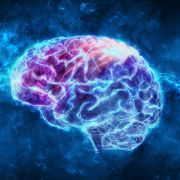
There is no single known cause of depression. Rather, it likely results from a combination of genetic, biologic, environmental, and psychological factors. Major negative experiences— trauma , loss of a loved one, a difficult relationship, or any stressful situation that overwhelms the ability to cope—may trigger a depressive episode. Subsequent depressive episodes may occur with or without an obvious trigger.
Depression is not an inevitable consequence of negative life events, however. Research increasingly suggests that it is only when such events set in motion excessive rumination and negative thought patterns, especially about oneself, that mood enters a downward spiral.
Research utilizing brain-imaging technologies such as magnetic resonance imaging (MRI) shows that the brains of people who have depression look different than those of people who do not. Specifically, the parts of the brain responsible for regulating mood, thinking, sleep, appetite, and behavior appear to function abnormally. It is not clear which changes seen in the brain may be the cause of depression and which may be the effect.
Some types of depression tend to run in families, suggesting there may be some genetic vulnerability to the disorder.
For more see Causes of Depression .

Depression, even the most severe cases, is a highly treatable disorder. As with many illnesses, the earlier treatment begins, the more effective it can be and the greater the likelihood that recurrence can be prevented.
Appropriate treatment for depression starts with an examination by a physician. Certain medications, as well as some medical conditions such as viral infections or a thyroid disorder, can cause the same symptoms as depression and should be ruled out. The doctor should ask about alcohol and drug use, and whether the patient has thoughts about death or suicide.
Once diagnosed, a person with depression can be treated a number of ways. The most common treatments are medication and psychotherapy . Many studies show that cognitive behavioral psychotherapy is highly effective, alone or in combination with drug therapy.
Psychotherapy addresses the thinking patterns that precipitate depression, and studies show that it prevents recurrence. Drug therapy is often helpful in relieving symptoms, such as severe anxiety , so that people can engage in meaningful psychotherapy.
For more see Treatment of Depression and Therapy for Depression .

Depression requires active treatment, because the disorder can have enduring effects on brain function that make future episodes more likely. The longer a depression episode lasts, the more likely a future episode.
However, there are many ways to treat depression, and some of the most effective, especially in cases of mild to moderate disorder, do not require a prescription or medical-type intervention of any kind.
Depression can be seen as a kind of cave , and it takes some time and effort to get out of the cave. But it is possible, usually by learning some new patterns of thinking and doing. Nutrition plays a role as well.
For more see Natural Approaches to Depression.

Mental anguish is hard on your health: People suffering from depression have three times the risk of experiencing a cardiac event. In fact, depression affects the entire body. It weakens the immune system, increasing susceptibility to viral infections and, over time, possibly even some kinds of cancer—a strong argument for early treatment. It also interferes with sleep, adding to feelings of lethargy, compounding problems of focus and concentration , and generally undermining health.
Those suffering from depression also experience higher rates of diabetes and osteoporosis. Sometimes depression manifests as a persistent low mood, a condition known as dysthymia which is usually marked by years-long periods of low energy, low self-esteem , and little ability to experience pleasure.
For more see Depression and Physical Health .

Everyone experiences an occasional blue mood. Yet clinical depression is a more pervasive experience of repetitive negative rumination, bleak outlook, and lack of energy. It is not a sign of personal weakness or a condition that can be willed or wished away. People with depression cannot merely "pull themselves together" to get better.
It doesn't help that modern-day living carries growing pressures. There is an emphasis on early childhood achievement at the expense of free play, a cultural shift away from direct social contact in favor of electronic connection, and a focus on material wealth at the expense of rich experiences and social contact. All play a part.
However, there is some evidence that, painful as depression is, it may serve a positive purpose, bringing with it ways of thinking that force those who suffer to focus on problems as a prelude to solving them. In effect, some researchers hypothesize that depression can help prod a person into much needed self-awareness.
For more see How to Prevent and Manage Depression .

What most people mean when they talk about depression is unipolar depression—an unremitting state of sadness, apathy, hopelessness, and loss of energy. It is also called major depression.
Depressive episodes also occur in bipolar disorder , a condition marked by periods of depression interspersed with periods of high-energy mania . People swing between the two poles of mood states, sometimes over the course of days, and sometimes over years, often with stable periods in between.
The birth of a baby can trigger mood swings or crying spells in the days or weeks that follow, the so-called baby blues. When the reaction is more severe and prolonged, it is considered postpartum depression , a condition requiring treatment because it can interfere with a parent's ability to care for their newborn.
Depression can also occur seasonally, primarily in the winter months when sunlight is in short supply. Known as seasonal affective disorder, or SAD, it is often ameliorated by daily exposure to specific types of artificial light.
For more see Types of Depression .

Depression makes deep inroads on biology to bring about the many symptoms of depression, from sleep disruption and inability to experience pleasure to lack of motivation and feelings of guilt. Because of its complexity—and because the disorder contributes so much to human suffering—the biology of depression is a major subject of ongoing research.
Overexcitability of the stress response system, shifts in activity of various neurochemicals in the brain, diminished efficiency of nerve circuitry and nerve generation, disturbances in energy use in nerve cells, the intrusion of inflammatory substances in the brain, upsets in the brain’s 24-hour (circadian) clock—all play a role in depression onset or progression and influence the kind and severity of symptoms.
For more see The Biology of Depression

Most suicides are linked to some form of psychiatric illness, particularly depression, and the more severe the depression, the greater the risk. Still, most people with major depression do not die by their own hand.
Studies show that about 5 percent of depressed persons may have thoughts about suicide— suicidal ideation. Only a small percentage of them actively make plans to end their lives.
The clearest warning sign of suicide is talk about wanting to die . And the best way to determine whether suicide is a risk is to ask.
For more see Depression and Suicide .

Mental health conditions such as depression are increasingly afflicting the young, including preschoolers. Especially in the young, depression requires active treatment—it can interfere with normal development.
Depression can show up in children much as it does in adults, signified by sadness, lethargy, and disinterest. But especially among children it manifests as irritability. Other times it manifests as anger and acting out.
Depression in children can have many causes. It can be a response to bullying . There is ample evidence that social media plays a role in depression among young people. Another source may be the decline of free play, an arena in which children traditionally work out their concerns and a great source of pleasure.
For more see Children and Depression .

Not everyone who hears voices is mentally ill. Learn how to distinguish pathological voices from helpful inner voices.

Conventional wisdom says suppressing difficult thoughts is bad, but new research suggests it may be useful in some cases.

If you think seasonal affective disorder is limited to winter depression, think again. See how expansive it can be and what can be done about it.

A Personal Perspective: I wasn’t broken or stupid because I couldn’t see what was going on. The flight-or-freeze response was my nervous system’s innate wisdom to keep me from harm.

Psychedelics are making headlines around the world. How can the public know when medications are harmful, helpful, or somewhere in between?

How intense is your reaction to a colleague dismissing you or a romantic interest breaking up with you? Many people have some degree of rejection sensitivity.

Anxiety and depression share many common features and often occur together. Recognizing the anxiety-depression cycle can lead to more effective treatment outcomes.

Some cognitive therapists may show some of the same cognitive distortions they’re trying to address in their clients. Does a "do-as-I-say-not-as-I-do" approach work?

Discover the impact of gray divorce on adult children through two sisters' journey from shock and overwhelm to healing and supporting others.

Humor is an underappreciated element in psychotherapy—one that can reduce anxiety, increase perspective, and strengthen the psychotherapeutic relationship.
- Find a Therapist
- Find a Treatment Center
- Find a Psychiatrist
- Find a Support Group
- Find Teletherapy
- United States
- Brooklyn, NY
- Chicago, IL
- Houston, TX
- Los Angeles, CA
- New York, NY
- Portland, OR
- San Diego, CA
- San Francisco, CA
- Seattle, WA
- Washington, DC
- Asperger's
- Bipolar Disorder
- Chronic Pain
- Eating Disorders
- Passive Aggression
- Personality
- Goal Setting
- Positive Psychology
- Stopping Smoking
- Low Sexual Desire
- Relationships
- Child Development
- Therapy Center NEW
- Diagnosis Dictionary
- Types of Therapy

Understanding what emotional intelligence looks like and the steps needed to improve it could light a path to a more emotionally adept world.
- Coronavirus Disease 2019
- Affective Forecasting
- Neuroscience
A collection of TED Talks (and more) on the topic of Depression.
Video playlists about Depression

Overcoming depression
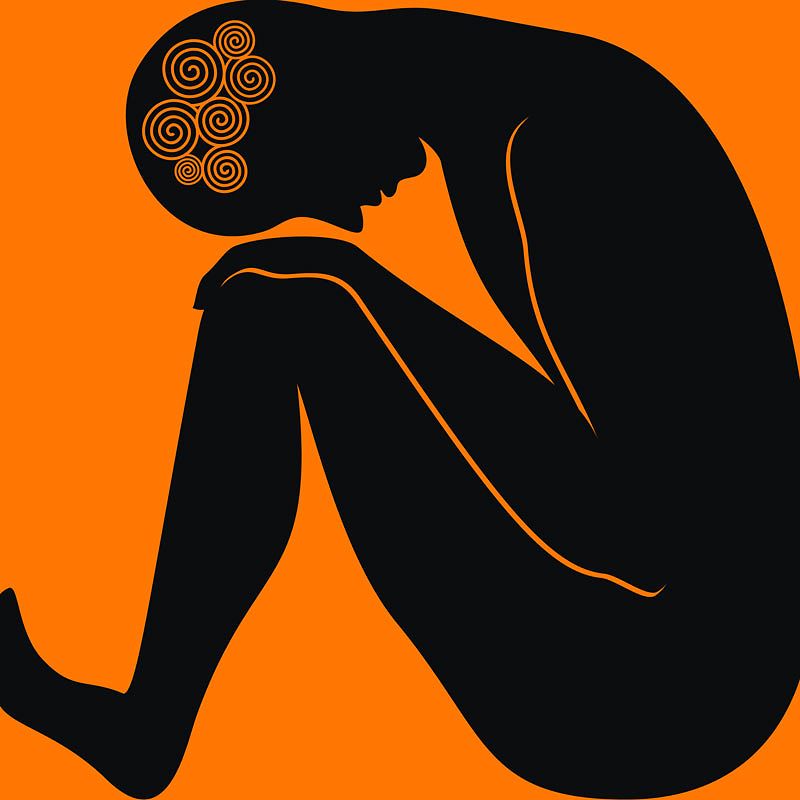
The struggle of mental health
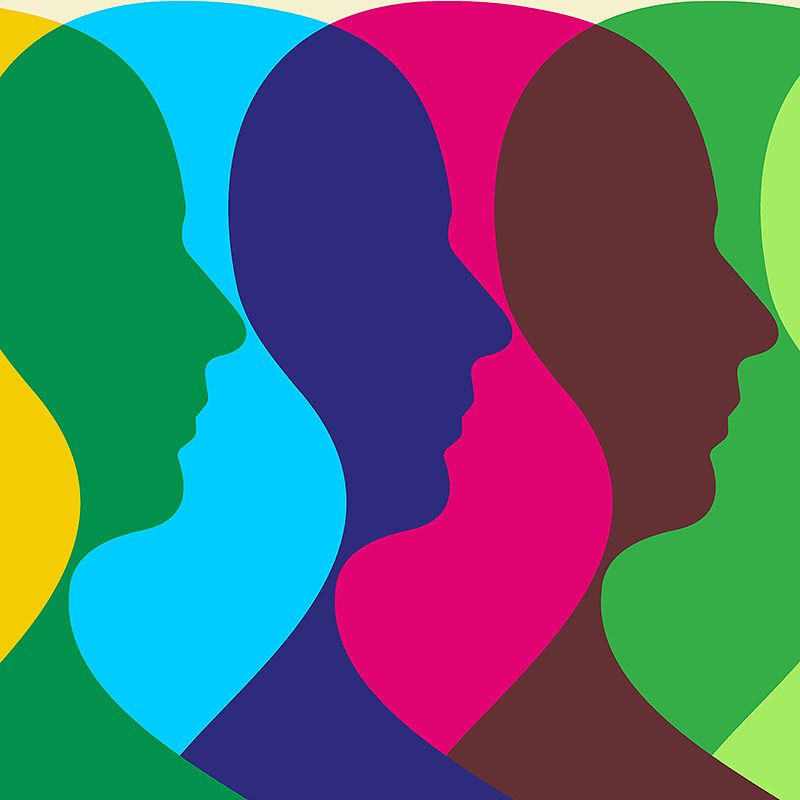
All kinds of minds
Talks about depression.

How targeted ads might just save your life

Is someone you love suffering in silence? Here's what to do

Is it normal to talk to yourself?

3 steps of anxiety overload — and how you can take back control
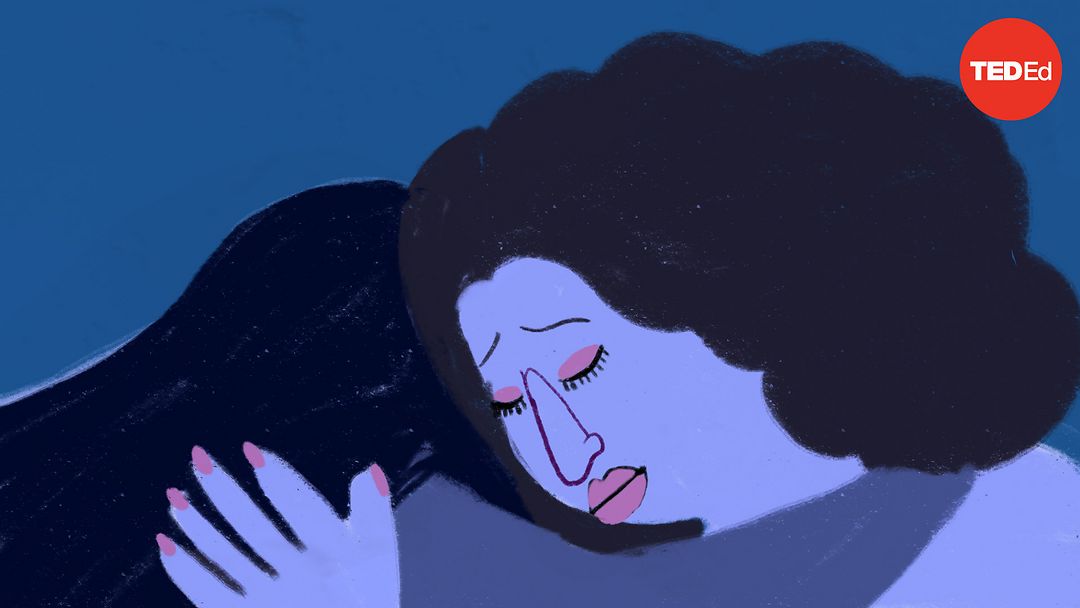
4 signs of emotional abuse

On masculinity and mental health

A new way to help young people with their mental health
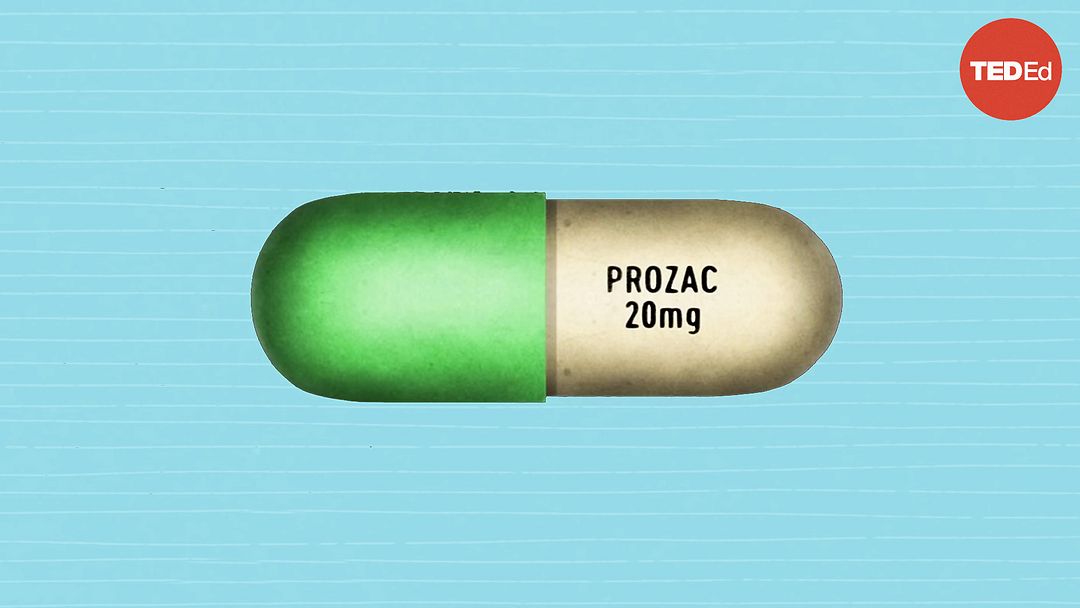
How do antidepressants work?

Should we cry at work?

What's that ringing in your ears?

A video game that helps us understand loneliness

The lifetime stakes of teen mental health

This could be why you're depressed or anxious
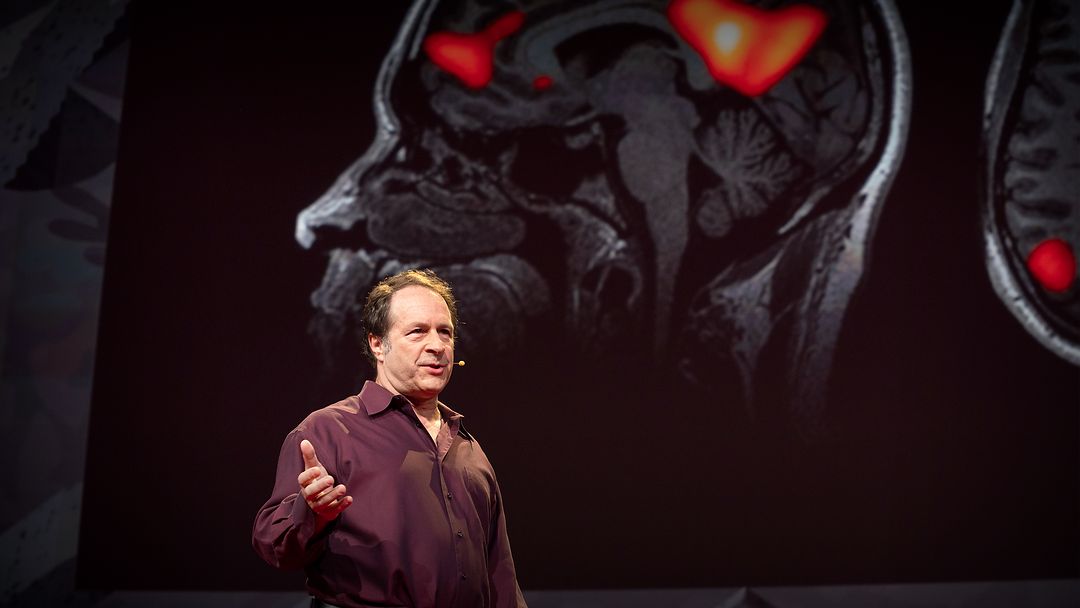
The future of psychedelic-assisted psychotherapy

"Three Months After"
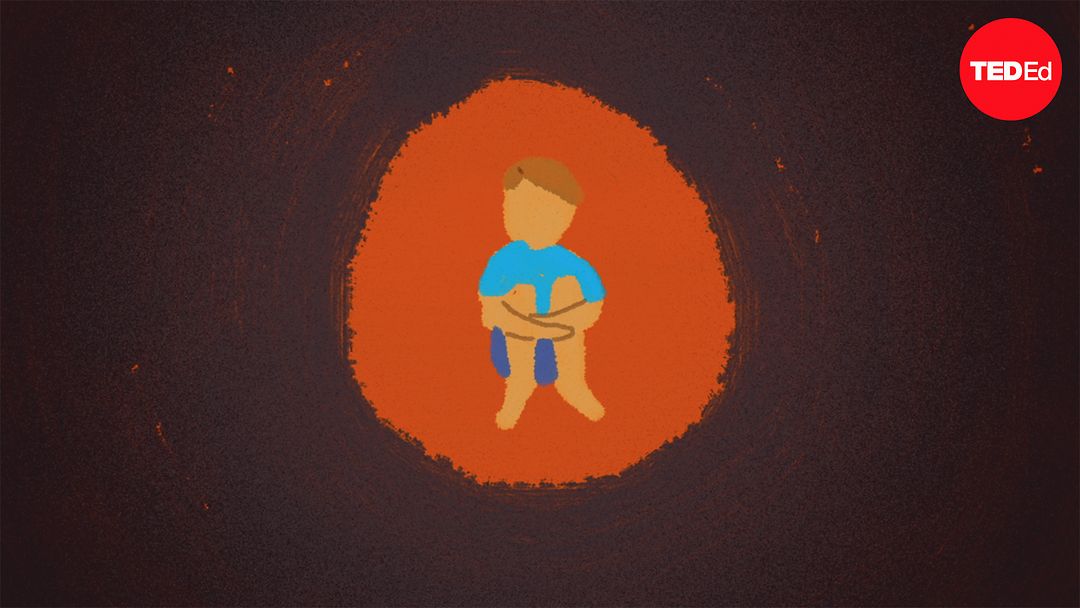
"The Nutritionist"
Exclusive articles about depression, a scientist explores: what if we could inoculate people against depression and trauma, one way to calm an anxious mind: notice when you’re doing ok, what can you do when you’re flattened by depression plan for it.
An official website of the United States government
The .gov means it’s official. Federal government websites often end in .gov or .mil. Before sharing sensitive information, make sure you’re on a federal government site.
The site is secure. The https:// ensures that you are connecting to the official website and that any information you provide is encrypted and transmitted securely.
- Publications
- Account settings
Preview improvements coming to the PMC website in October 2024. Learn More or Try it out now .
- Advanced Search
- Journal List
- Neurosci Bull
- v.37(6); 2021 Jun
Major Depressive Disorder: Advances in Neuroscience Research and Translational Applications
1 Clinical Research Center and Division of Mood Disorders of Shanghai Mental Health Center, Shanghai Jiao Tong University School of Medicine, Shanghai, 200030 China
2 Department of Neurology, Ren Ji Hospital, Shanghai Jiao Tong University School of Medicine, Shanghai, 200127 China
Meihua Ruan
3 Shanghai Institute of Nutrition and Health, Shanghai Information Center for Life Sciences, Chinese Academy of Science, Shanghai, 200031 China
5 Shanghai Key Laboratory of Psychotic Disorders, Shanghai, 201108 China
4 Center for Excellence in Brain Science and Intelligence Technology, Chinese Academy of Science, Shanghai, 200031 China
Major depressive disorder (MDD), also referred to as depression, is one of the most common psychiatric disorders with a high economic burden. The etiology of depression is still not clear, but it is generally believed that MDD is a multifactorial disease caused by the interaction of social, psychological, and biological aspects. Therefore, there is no exact pathological theory that can independently explain its pathogenesis, involving genetics, neurobiology, and neuroimaging. At present, there are many treatment measures for patients with depression, including drug therapy, psychotherapy, and neuromodulation technology. In recent years, great progress has been made in the development of new antidepressants, some of which have been applied in the clinic. This article mainly reviews the research progress, pathogenesis, and treatment of MDD.
Major depressive disorder (MDD) also referred to as depression, is one of the most severe and common psychiatric disorders across the world. It is characterized by persistent sadness, loss of interest or pleasure, low energy, worse appetite and sleep, and even suicide, disrupting daily activities and psychosocial functions. Depression has an extreme global economic burden and has been listed as the third largest cause of disease burden by the World Health Organization since 2008, and is expected to rank the first by 2030 [ 1 , 2 ]. In 2016, the Global Burden of Diseases, Injuries, and Risk Factors Study demonstrated that depression caused 34.1 million of the total years lived with disability (YLDs), ranking as the fifth largest cause of YLD [ 3 ]. Therefore, the research progress and the clinical application of new discoveries or new technologies are imminent. In this review, we mainly discuss the current situation of research, developments in pathogenesis, and the management of depression.
Current Situation of Research on Depression
Analysis of published papers.
In the past decade, the total number of papers on depression published worldwide has increased year by year as shown in Fig. Fig.1A. 1 A. Searching the Web of Science database, we found a total of 43,863 papers published in the field of depression from 2009 to 2019 (search strategy: TI = (depression$) or ts = ("major depressive disorder$")) and py = (2009 – 2019), Articles). The top 10 countries that published papers on the topic of depression are shown in Fig. Fig.1B. 1 B. Among them, researchers in the USA published the most papers, followed by China. Compared with the USA, the gap in the total number of papers published in China is gradually narrowing (Fig. (Fig.1C), 1 C), but the quality gap reflected by the index (the total number of citations and the number of citations per paper) is still large, and is lower than the global average (Fig. (Fig.1D). 1 D). As shown in Fig. Fig.1E, 1 E, the hot research topics in depression are as follows: depression management in primary care, interventions to prevent depression, the pathogenesis of depression, comorbidity of depression and other diseases, the risks of depression, neuroimaging studies of depression, and antidepressant treatment.

Analysis of published papers around the world from 2009 to 2019 in depressive disorder. A The total number of papers [from a search of the Web of Science database (search strategy: TI = (depression$) or ts = ("major depressive disorder$")) and py = (2009 – 2019), Articles)]. B The top 10 countries publishing on the topic. C Comparison of papers in China and the USA. D Citations for the top 10 countries and comparison with the global average. E Hot topics.
Analysis of Patented Technology Application
There were 16,228 patent applications in the field of depression between 2009 and 2019, according to the Derwent Innovation Patent database. The annual number and trend of these patents are shown in Fig. Fig.2A. 2 A. The top 10 countries applying for patents related to depression are shown in Fig. Fig.2B. 2 B. The USA ranks first in the number of depression-related patent applications, followed by China. The largest number of patents related to depression is the development of antidepressants, and drugs for neurodegenerative diseases such as dementia comorbid with depression. The top 10 technological areas of patents related to depression are shown in Fig. Fig.2C, 2 C, and the trend in these areas have been stable over the past decade (Fig. (Fig.2 2 D).

Analysis of patented technology applications from 2009 to 2019 in the field of depressive disorder. A Annual numbers and trends of patents (the Derwent Innovation patent database). B The top 10 countries/regions applying for patents. C The top 10 technological areas of patents. D The trend of patent assignees. E Global hot topic areas of patents.
Analysis of technical hotspots based on keyword clustering was conducted from the Derwent Innovation database using the "ThemeScape" tool. This demonstrated that the hot topic areas are as follows (Fig. (Fig.2E): 2 E): (1) improvement for formulation and the efficiency of hydrobromide, as well as optimization of the dosage; intervention for depression comorbid with AD, diabetes, and others; (3) development of alkyl drugs; (4) development of pharmaceutical acceptable salts as antidepressants; (5) innovation of the preparation of antidepressants; (6) development of novel antidepressants based on neurotransmitters; (7) development of compositions based on nicotinic acetylcholine receptors; and (8) intervention for depression with traditional Chinese medicine.
Analysis of Clinical Trial
There are 6,516 clinical trials in the field of depression in the ClinicalTrials.gov database, and among them, 1,737 valid trials include the ongoing recruitment of subjects, upcoming recruitment of subjects, and ongoing clinical trials. These clinical trials are mainly distributed in the USA (802 trials), Canada (155), China (114), France (93), Germany (66), UK (62), Spain (58), Denmark (41), Sweden (39), and Switzerland (23). The indications for clinical trials include various types of depression, such as minor depression, depression, severe depression, perinatal depression, postpartum depression, and depression comorbid with other psychiatric disorders or physical diseases, such as schizophrenia, epilepsy, stroke, cancer, diabetes, cardiovascular disease, and Parkinson's disease.
Based on the database of the Chinese Clinical Trial Registry website, a total of 143 clinical trials for depression have been carried out in China. According to the type of research, they are mainly interventional and observational studies, as well as a small number of related factor studies, epidemiological studies, and diagnostic trials. The research content involves postpartum, perinatal, senile, and other age groups with clinical diagnosis (imaging diagnosis) and intervention studies (drugs, acupuncture, electrical stimulation, transcranial magnetic stimulation). It also includes intervention studies on depression comorbid with coronary heart disease, diabetes, and heart failure.
New Medicine Development
According to the Cortellis database, 828 antidepressants were under development by the end of 2019, but only 292 of these are effective and active (Fig. (Fig.3A). 3 A). Large number of them have been discontinued or made no progress, indicating that the development of new drugs in the field of depression is extremely urgent.

New medicine development from 2009 to 2019 in depressive disorder. A Development status of new candidate drugs. B Top target-based actions.
From the perspective of target-based actions, the most common new drugs are NMDA receptor antagonists, followed by 5-HT targets, as well as dopamine receptor agonists, opioid receptor antagonists and agonists, AMPA receptor modulators, glucocorticoid receptor antagonists, NK1 receptor antagonists, and serotonin transporter inhibitors (Fig. (Fig.3 3 B).
Epidemiology of Depression
The prevalence of depression varies greatly across cultures and countries. Previous surveys have demonstrated that the 12-month prevalence of depression was 0.3% in the Czech Republic, 10% in the USA, 4.5% in Mexico, and 5.2% in West Germany, and the lifetime prevalence of depression was 1.0% in the Czech Republic, 16.9% in the USA, 8.3% in Canada, and 9.0% in Chile [ 4 , 5 ]. A recent meta-analysis including 30 Countries showed that lifetime and 12-month prevalence depression were 10.8% and 7.2%, respectively [ 6 ]. In China, the lifetime prevalence of depression ranged from 1.6% to 5.5% [ 7 – 9 ]. An epidemiological study demonstrated that depression was the most common mood disorder with a life prevalence of 3.4% and a 12-month prevalence of 2.1% in China [ 10 ].
Some studies have also reported the prevalence in specific populations. The National Comorbidity Survey-Adolescent Supplement (NCS-A) survey in the USA showed that the lifetime and 12-month prevalence of depression in adolescents aged 13 to 18 were 11.0% and 7.5%, respectively [ 11 ]. A recent meta-analysis demonstrated that lifetime prevalence and 12-month prevalence were 2.8% and 2.3%, respectively, among the elderly population in China [ 12 ].
Neurobiological Pathogenesis of Depressive Disorder
The early hypothesis of monoamines in the pathophysiology of depression has been accepted by the scientific community. The evidence that monoamine oxidase inhibitors and tricyclic antidepressants promote monoamine neurotransmission supports this theory of depression [ 13 ]. So far, selective serotonin reuptake inhibitors and norepinephrine reuptake inhibitors are still the first-line antidepressants. However, there remain 1/3 to 2/3 of depressed patients who do not respond satisfactorily to initial antidepressant treatment, and even as many as 15%–40% do not respond to several pharmacological medicines [ 14 , 15 ]. Therefore, the underlying pathogenesis of depression is far beyond the simple monoamine mechanism.
Other hypotheses of depression have gradually received increasing attention because of biomarkers for depression and the effects pharmacological treatments, such as the stress-responsive hypothalamic pituitary adrenal (HPA) axis, neuroendocrine systems, the neurotrophic family of growth factors, and neuroinflammation.
Stress-Responsive HPA Axis
Stress is causative or a contributing factor to depression. Particularly, long-term or chronic stress can lead to dysfunction of the HPA axis and promote the secretion of hormones, including cortisol, adrenocorticotropic hormone, corticotropin-releasing hormone, arginine vasopressin, and vasopressin. About 40%–60% of patients with depression display a disturbed HPA axis, including hypercortisolemia, decreased rhythmicity, and elevated cortisol levels [ 16 , 17 ]. Mounting evidence has shown that stress-induced abnormality of the HPA axis is associated with depression and cognitive impairment, which is due to the increased secretion of cortisol and the insufficient inhibition of glucocorticoid receptor regulatory feedback [ 18 , 19 ]. In addition, it has been reported that the increase in cortisol levels is related to the severity of depression, especially in melancholic depression [ 20 , 21 ]. Further, patients with depression whose HPA axis was not normalized after treatment had a worse clinical response and prognosis [ 22 , 23 ]. Despite the above promising insights, unfortunately previous studies have shown that treatments regulating the HPA axis, such as glucocorticoid receptor antagonists, do not attenuate the symptoms of depressed patients [ 24 , 25 ].
Glutamate Signaling Pathway
Glutamate is the main excitatory neurotransmitter released by synapses in the brain; it is involved in synaptic plasticity, cognitive processes, and reward and emotional processes. Stress can induce presynaptic glutamate secretion by neurons and glutamate strongly binds to ionotropic glutamate receptors (iGluRs) including N-methyl-D-aspartate receptors (NMDARs) and α-amino-3-hydroxy-5-methyl-4-isoxazole-propionic acid receptors (AMPARs) [ 26 ] on the postsynaptic membrane to activate downstream signal pathways [ 27 ]. Accumulating evidence has suggested that the glutamate system is associated with the incidence of depression. Early studies have shown increased levels of glutamate in the peripheral blood, cerebrospinal fluid, and brain of depressed patients [ 28 , 29 ], as well as NMDAR subunit disturbance in the brain [ 30 , 31 ]. Blocking the function of NMDARs has an antidepressant effect and protects hippocampal neurons from morphological abnormalities induced by stress, while antidepressants reduce glutamate secretion and NMDARs [ 32 ]. Most importantly, NMDAR antagonists such as ketamine have been reported to have profound and rapid antidepressant effects on both animal models and the core symptoms of depressive patients [ 33 ]. On the other hand, ketamine can also increase the AMPAR pathway in hippocampal neurons by up-regulating the AMPA glutamate receptor 1 subunit [ 34 ]. Further, the AMPAR pathway may be involved in the mechanism of antidepressant effects. For example, preclinical studies have indicated that AMPAR antagonists might attenuate lithium-induced depressive behavior by increasing the levels of glutamate receptors 1 and 2 in the mouse hippocampus [ 35 ].
Gamma-Aminobutyric Acid (GABA)
Contrary to glutamate, GABA is the main inhibitory neurotransmitter. Although GABA neurons account for only a small proportion compared to glutamate, inhibitory neurotransmission is essential for brain function by balancing excitatory transmission [ 36 ]. Number of studies have shown that patients with depression have neurotransmission or functional defects of GABA [ 37 , 38 ]. Schür et al ., conducted a meta-analysis of magnetic resonance spectroscopy studies, which showed that the brain GABA level in depressive patients was lower than that in healthy controls, but no difference was found in depressive patients in remission [ 39 ]. Several postmortem studies have shown decreased levels of the GABA synthase glutamic acid decarboxylase in the prefrontal cortex of patients with depression [ 40 , 41 ]. It has been suggested that a functional imbalance of the GABA and glutamate systems contributes to the pathophysiology of depression, and activation of the GABA system might induce antidepressant activity, by which GABA A receptor mediators α2/α3 are considered potential antidepressant candidates [ 42 , 43 ]. Genetic mouse models, such as the GABA A receptor mutant mouse and conditional the Gad1-knockout mouse (GABA in hippocampus and cerebral cortex decreased by 50%) and optogenetic methods have verified that depression-like behavior is induced by changing the level of GABA [ 44 , 45 ].
Neurotrophin Family
The neurotrophin family plays a key role in neuroplasticity and neurogenesis. The neurotrophic hypothesis of depression postulates that a deficit of neurotrophic support leads to neuronal atrophy, the reduction of neurogenesis, and the destruction of glia support, while antidepressants attenuate or reverse these pathophysiological processes [ 46 ]. Among them, the most widely accepted hypothesis involves brain-derived neurotrophic factor (BDNF). This was initially triggered by evidence that stress reduces the BDNF levels in the animal brain, while antidepressants rescue or attenuate this reduction [ 47 , 48 ], and agents involved in the BDNF system have been reported to exert antidepressant-like effects [ 49 , 50 ]. In addition, mounting studies have reported that the BDNF level is decreased in the peripheral blood and at post-mortem in depressive patients, and some have reported that antidepressant treatment normalizes it [ 51 , 52 ]. Furthermore, some evidence also showed that the interaction of BDNF and its receptor gene is associated with treatment-resistant depression [ 15 ].
Recent studies reported that depressed patients have a lower level of the pro-domain of BDNF (BDNF pro-peptide) than controls. This is located presynaptically and promotes long-term depression in the hippocampus, suggesting that it is a promising synaptic regulator [ 53 ].
Neuroinflammation
The immune-inflammation hypothesis has attracted much attention, suggesting that the interactions between inflammatory pathways and neural circuits and neurotransmitters are involved in the pathogenesis and pathophysiological processes of depression. Early evidence found that patients with autoimmune or infectious diseases are more likely to develop depression than the general population [ 54 ]. In addition, individuals without depression may display depressive symptoms after treatment with cytokines or cytokine inducers, while antidepressants relieve these symptoms [ 55 , 56 ]. There is a complex interaction between the peripheral and central immune systems. Previous evidence suggested that peripheral inflammation/infection may spread to the central nervous system in some way and cause a neuroimmune response [ 55 , 57 ]: (1) Some cytokines produced in the peripheral immune response, such as IL-6 and IL-1 β, can leak into the brain through the blood-brain barrier (BBB). (2) Cytokines entering the central nervous system act directly on astrocytes, small stromal cells, and neurons. (3) Some peripheral immune cells can cross the BBB through specific transporters, such as monocytes. (4) Cytokines and chemokines in the circulation activate the central nervous system by regulating the surface receptors of astrocytes and endothelial cells at the BBB. (5) As an intermediary pathway, the immune inflammatory response transmits peripheral danger signals to the center, amplifies the signals, and shows the external phenotype of depressive behavior associated with stress/trauma/infection. (6) Cytokines and chemokines may act directly on neurons, change their plasticity and promote depression-like behavior.
Patients with depression show the core feature of the immune-inflammatory response, that is, increased concentrations of pro-inflammatory cytokines and their receptors, chemokines, and soluble adhesion molecules in peripheral blood and cerebrospinal fluid [ 58 – 60 ]. Peripheral immune-inflammatory response markers not only change the immune activation state in the brain that affects explicit behavior, but also can be used as an evaluation index or biological index of antidepressant therapy [ 61 , 62 ]. Li et al . showed that the level of TNF-α in patients with depression prior to treatment was higher than that in healthy controls. After treatment with venlafaxine, the level of TNF-α in patients with depression decreased significantly, and the level of TNF-α in the effective group decreased more [ 63 ]. A recent meta-analysis of 1,517 patients found that antidepressants significantly reduced peripheral IL-6, TNF-α, IL-10, and CCL-2, suggesting that antidepressants reduce markers of peripheral inflammatory factors [ 64 ]. Recently, Syed et al . also confirmed that untreated patients with depression had higher levels of inflammatory markers and increased levels of anti-inflammatory cytokines after antidepressant treatment, while increased levels of pro-inflammatory cytokines were found in non-responders [ 62 ]. Clinical studies have also found that anti-inflammatory cytokines, such as monoclonal antibodies and other cytokine inhibitors, may play an antidepressant role by blocking cytokines. The imbalance of pro-inflammatory and anti-inflammatory cytokines may be involved in the pathophysiological process of depression.
In addition, a recent study showed that microglia contribute to neuronal plasticity and neuroimmune interaction that are involved in the pathophysiology of depression [ 65 ]. When activated microglia promote inflammation, especially the excessive production of pro-inflammatory factors and cytotoxins in the central nervous system, depression-like behavior can gradually develop [ 65 , 66 ]. However, microglia change polarization as two types under different inflammatory states, regulating the balance of pro- and anti-inflammatory factors. These two types are M1 and M2 microglia; the former produces large number of pro-inflammatory cytokines after activation, and the latter produces anti-inflammatory cytokines. An imbalance of M1/M2 polarization of microglia may contribute to the pathophysiology of depression [ 67 ].
Microbiome-Gut-Brain Axis
The microbiota-gut-brain axis has recently gained more attention because of its ability to regulate brain activity. Many studies have shown that the microbiota-gut-brain axis plays an important role in regulating mood, behavior, and neuronal transmission in the brain [ 68 , 69 ]. It is well established that comorbidity of depression and gastrointestinal diseases is common [ 70 , 71 ]. Some antidepressants can attenuate the symptoms of patients with irritable bowel syndrome and eating disorders [ 72 ]. It has been reported that gut microbiome alterations are associated with depressive-like behaviors [ 73 , 74 ], and brain function [ 75 ]. Early animal studies have shown that stress can lead to long-term changes in the diversity and composition of intestinal microflora, and is accompanied by depressive behavior [ 76 , 77 ]. Interestingly, some evidence indicates that rodents exhibit depressive behavior after fecal transplants from patients with depression [ 74 ]. On the other hand, some probiotics attenuated depressive-like behavior in animal studies, [ 78 ] and had antidepressant effects on patients with depression in several double-blind, placebo-controlled clinical trials [ 79 , 80 ].
The potential mechanism may be that gut microbiota can interact with the brain through a variety of pathways or systems, including the HPA axis, and the neuroendocrine, autonomic, and neuroimmune systems [ 81 ]. For example, recent evidence demonstrated that gut microbiota can affect the levels of neurotransmitters in the gut and brain, including serotonin, dopamine, noradrenalin, glutamate, and GABA [ 82 ]. In addition, recent studies showed that changes in gut microbiota can also impair the gut barrier and promote higher levels of peripheral inflammatory cytokines [ 83 , 84 ]. Although recent research in this area has made significant progress, more clinical trials are needed to determine whether probiotics have any effect on the treatment of depression and what the potential underlying mechanisms are.
Other Systems and Pathways
There is no doubt that several other systems or pathways are also involved in the pathophysiology of depression, such as oxidant-antioxidant imbalance [ 85 ], mitochondrial dysfunction [ 86 , 87 ], and circadian rhythm-related genes [ 88 ], especially their critical interactions ( e.g. interaction between the HPA and mitochondrial metabolism [ 89 , 90 ], and the reciprocal interaction between oxidative stress and inflammation [ 2 , 85 ]). The pathogenesis of depression is complex and all the hypotheses should be integrated to consider the many interactions between various systems and pathways.
Advances in Various Kinds of Research on Depressive Disorder
Genetic, molecular, and neuroimaging studies continue to increase our understanding of the neurobiological basis of depression. However, it is still not clear to what extent the results of neurobiological studies can help improve the clinical and functional prognosis of patients. Therefore, over the past 10 years, the neurobiological study of depression has become an important measure to understand the pathophysiological mechanism and guide the treatment of depression.
Genetic Studies
Previous twin and adoption studies have indicated that depression has relatively low rate of heritability at 37% [ 91 ]. In addition, environmental factors such as stressful events are also involved in the pathogenesis of depression. Furthermore, complex psychiatric disorders, especially depression, are considered to be polygenic effects that interact with environmental factors [ 13 ]. Therefore, reliable identification of single causative genes for depression has proved to be challenging. The first genome-wide association studies (GWAS) for depression was published in 2009, and included 1,738 patients and 1,802 controls [ 92 , 93 ]. Although many subsequent GWASs have determined susceptible genes in the past decade, the impact of individual genes is so small that few results can be replicated [ 94 , 95 ]. So far, it is widely accepted that specific single genetic mutations may play minor and marginal roles in complex polygenic depression. Another major recognition in GWASs over the past decade is that prevalent candidate genes are usually not associated with depression. Further, the inconsistent results may also be due to the heterogeneity and polygenic nature of genetic and non-genetic risk factors for depression as well as the heterogeneity of depression subtypes [ 95 , 96 ]. Therefore, to date, the quality of research has been improved in two aspects: (1) the sample size has been maximized by combining the data of different evaluation models; and (2) more homogenous subtypes of depression have been selected to reduce phenotypic heterogeneity [ 97 ]. Levinson et al . pointed out that more than 75,000 to 100,000 cases should be considered to detect multiple depression associations [ 95 ]. Subsequently, several recent GWASs with larger sample sizes have been conducted. For example, Okbay et al . identified two loci associated with depression and replicated them in separate depression samples [ 98 ]. Wray et al . also found 44 risk loci associated with depression based on 135,458 cases and 344,901 controls [ 99 ]. A recent GWAS of 807,553 individuals with depression reported that 102 independent variants were associated with depression; these were involved in synaptic structure and neural transmission, and were verified in a further 1,507,153 individuals [ 100 ]. However, even with enough samples, GWASs still face severe challenges. A GWAS only marks the region of the genome and is not directly related to the potential biological function. In addition, a genetic association with the indicative phenotype of depression may only be part of many pathogenic pathways, or due to the indirect influence of intermediate traits in the causal pathway on the final result [ 101 ].
Given the diversity of findings, epigenetic factors are now being investigated. Recent studies indicated that epigenetic mechanisms may be the potential causes of "loss of heritability" in GWASs of depression. Over the past decade, a promising discovery has been that the effects of genetic information can be directly influenced by environment factors, and several specific genes are activated by environmental aspects. This process is described as interactions between genes and the environment, which is identified by the epigenetic mechanism. Environmental stressors cause alterations in gene expression in the brain, which may cause abnormal neuronal plasticity in areas related to the pathogenesis of the disease. Epigenetic events alter the structure of chromatin, thereby regulating gene expression involved in neuronal plasticity, stress behavior, depressive behavior, and antidepressant responses, including DNA methylation, histone acetylation, and the role of non-coding RNA. These new mechanisms of trans-generational transmission of epigenetic markers are considered a supplement to orthodox genetic heredity, providing the possibility for the discovery of new treatments for depression [ 102 , 103 ]. Recent studies imply that life experiences, including stress and enrichment, may affect cellular and molecular signaling pathways in sperm and influence the behavioral and physiological phenotypes of offspring in gender-specific patterns, which may also play an important role in the development of depression [ 103 ].
Brain Imaging and Neuroimaging Studies
Neuroimaging, including magnetic resonance imaging (MRI) and molecular imaging, provides a non-invasive technique for determining the underlying etiology and individualized treatment for depression. MRI can provide important data on brain structure, function, networks, and metabolism in patients with depression; it includes structural MRI (sMRI), functional MRI (fMRI), diffusion tensor imaging, and magnetic resonance spectroscopy.
Previous sMRI studies have found damaged gray matter in depression-associated brain areas, including the frontal lobe, anterior cingulate gyrus, hippocampus, putamen, thalamus, and amygdala. sMRI focuses on the thickness of gray matter and brain morphology [ 104 , 105 ]. A recent meta-analysis of 2,702 elderly patients with depression and 11,165 controls demonstrated that the volumes of the whole brain and hippocampus of patients with depression were lower than those of the control group [ 106 ]. Some evidence also showed that the hippocampal volume in depressive patients was lower than that of controls, and increased after treatment with antidepressants [ 107 ] and electroconvulsive therapy (ECT) [ 108 ], suggesting that the hippocampal volume plays a critical role in the development, treatment response, and clinical prognosis of depression. A recent study also reported that ECT increased the volume of the right hippocampus, amygdala, and putamen in patients with treatment-resistant depression [ 109 ]. In addition, postmortem research supported the MRI study showing that dentate gyrus volume was decreased in drug-naive patients with depression compared to healthy controls, and was potentially reversed by treatment with antidepressants [ 110 ].
Diffusion tensor imaging detects the microstructure of the white matter, which has been reported impaired in patients with depression [ 111 ]. A recent meta-analysis that included first-episode and drug-naïve depressive patients showed that the decrease in fractional anisotropy was negatively associated with illness duration and clinical severity [ 112 ].
fMRI, including resting-state and task-based fMRI, can divide the brain into self-related regions, such as the anterior cingulate cortex, posterior cingulate cortex, medial prefrontal cortex, precuneus, and dorsomedial thalamus. Many previous studies have shown the disturbance of several brain areas and intrinsic neural networks in patients with depression which could be rescued by antidepressants [ 113 – 116 ]. Further, some evidence also showed an association between brain network dysfunction and the clinical correlates of patients with depression, including clinical symptoms [ 117 ] and the response to antidepressants [ 118 , 119 ], ECT [ 120 , 121 ], and repetitive transcranial magnetic stimulation [ 122 ].
It is worth noting that brain imaging provides new insights into the large-scale brain circuits that underlie the pathophysiology of depressive disorder. In such studies, large-scale circuits are often referred to as “networks”. There is evidence that a variety of circuits are involved in the mechanisms of depressive disorder, including disruption of the default mode, salience, affective, reward, attention, and cognitive control circuits [ 123 ]. Over the past decade, the study of intra-circuit and inter-circuit connectivity dysfunctions in depression has escalated, in part due to advances in precision imaging and analysis techniques [ 124 ]. Circuit dysfunction is a potential biomarker to guide psychopharmacological treatment. For example, Williams et al . found that hyper-activation of the amygdala is associated with a negative phenotype that can predict the response to antidepressants [ 125 ]. Hou et al . showed that the baseline characteristics of the reward circuit predict early antidepressant responses [ 126 ].
Molecular imaging studies, including single photon emission computed tomography and positron emission tomography, focus on metabolic aspects such as amino-acids, neurotransmitters, glucose, and lipids at the cellular level in patients with depression. A recent meta-analysis examined glucose metabolism and found that glucose uptake dysfunction in different brain regions predicts the treatment response [ 127 ].
The most important and promising studies were conducted by the ENIGMA (Enhancing NeuroImaging Genetics through Meta Analysis) Consortium, which investigated the human brain across 43 countries. The ENIGMA-MDD Working Group was launched in 2012 to detect the structural and functional changes associated with MDD reliably and replicate them in various samples around the world [ 128 ]. So far, the ENIGMA-MDD Working Group has collected data from 4,372 MDD patients and 9,788 healthy controls across 14 countries, including 45 cohorts [ 128 ]. Their findings to date are shown in Table Table1 1 [ 128 – 137 ].
Findings of the ENIGMA (Enhancing NeuroImaging Genetics through Meta Analysis) Consortium.
Objective Index for Diagnosis of MDD
To date, the clinical diagnosis of depression is subjectively based on interviews according to diagnostic criteria ( e.g. International Classification of Diseases and Diagnostic and Statistical Manual diagnostic systems) and the severity of clinical symptoms are assessed by questionnaires, although patients may experience considerable differences in symptoms and subtypes [ 138 ]. Meanwhile, biomarkers including genetics, epigenetics, peripheral gene and protein expression, and neuroimaging markers may provide a promising supplement for the development of the objective diagnosis of MDD, [ 139 – 141 ]. However, the development of reliable diagnosis for MDD using biomarkers is still difficult and elusive, and all methods based on a single marker are insufficiently specific and sensitive for clinical use [ 142 ]. Papakostas et al . showed that a multi-assay, serum-based test including nine peripheral biomarkers (soluble tumor necrosis factor alpha receptor type II, resistin, prolactin, myeloperoxidase, epidermal growth factor, BDNF, alpha1 antitrypsin, apolipoprotein CIII, brain-derived neurotrophic factor, and cortisol) yielded a specificity of 81.3% and a sensitivity of 91.7% [ 142 ]. However, the sample size was relatively small and no other studies have yet validated their results. Therefore, further studies are needed to identify biomarker models that integrate all biological variables and clinical features to improve the specificity and sensitivity of diagnosis for MDD.
Management of Depression
The treatment strategies for depression consist of pharmacological treatment and non-pharmacological treatments including psychotherapy, ECT [ 98 ], and transcranial magnetic stimulation. As psychotherapy has been shown to have effects on depression including attenuating depressive symptoms and improving the quality of life [ 143 , 144 ]; several practice guidelines are increasingly recommending psychotherapy as a monotherapy or in combination with antidepressants [ 145 , 146 ].
Current Antidepressant Treatment
Antidepressants approved by the US Food and Drug Administration (FDA) are shown in Table Table2. 2 . Due to the relatively limited understanding of the etiology and pathophysiology of depression, almost all the previous antidepressants were discovered by accident a few decades ago. Although most antidepressants are usually safe and effective, there are still some limitations, including delayed efficacy (usually 2 weeks) and side-effects that affect the treatment compliance [ 147 ]. In addition, <50% of all patients with depression show complete remission through optimized treatment, including trials of multiple drugs with and without simultaneous psychotherapy. In the past few decades, most antidepressant discoveries focused on finding faster, safer, and more selective serotonin or norepinephrine receptor targets. In addition, there is an urgent need to develop new approaches to obtain more effective, safer, and faster antidepressants. In 2019, the FDA approved two new antidepressants: Esketamine for refractory depression and Bresanolone for postpartum depression. Esmolamine, a derivative of the anesthetic drug ketamine, was approved by the FDA for the treatment of refractory depression, based on a large number of preliminary clinical studies [ 148 ]. For example, several randomized controlled trials and meta-analysis studies showed the efficacy and safety of Esketamine in depression or treatment-resistant depression [ 26 , 149 , 150 ]. Although both are groundbreaking new interventions for these debilitating diseases and both are approved for use only under medical supervision, there are still concerns about potential misuse and problems in the evaluation of mental disorders [ 151 ].
Antidepressants approved across the world.
To date, although several potential drugs have not yet been approved by the FDA, they are key milestones in the development of antidepressants that may be modified and used clinically in the future, such as compounds containing dextromethorphan (a non-selective NMDAR antago–nist), sarcosine (N-methylglycine, a glycine reuptake inhibitor), AMPAR modulators, and mGluR modulators [ 152 ].
Neuromodulation Therapy
Neuromodulation therapy acts through magnetic pulse, micro-current, or neural feedback technology within the treatment dose, acting on the central or peripheral nervous system to regulate the excitatory/inhibitory activity to reduce or attenuate the symptoms of the disease.
ECT is one of most effective treatments for depression, with the implementation of safer equipment and advancement of techniques such as modified ECT [ 153 ]. Mounting evidence from randomized controlled trial (RCT) and meta-analysis studies has shown that rTMS can treat depressive patients with safety [ 154 ]. Other promising treatments for depression have emerged, such as transcranial direct current stimulation (tDCS) [ 155 ], transcranial alternating current stimulation (tACS)[ 156 ], vagal nerve stimulation [ 157 ], deep brain stimulation [ 158 ] , and light therapy [ 159 ], but some of them are still experimental to some extent and have not been widely used. For example, compared to tDCS, tACS displays less sensory experience and adverse reactions with weak electrical current in a sine-wave pattern, but the evidence for the efficacy of tACS in the treatment of depression is still limited [ 160 ]. Alexander et al . recently demonstrated that there was no difference in efficacy among different treatments (sham, 10-Hz and 40-Hz tACS). However, only the 10-Hz tACS group had more responders than the sham and 40-Hz tACS groups at week 2 [ 156 ]. Further RCT studies are needed to verify the efficacy of tACS. In addition, the mechanism of the effect of neuromodulation therapy on depression needs to be further investigated.
Precision Medicine for Depression
Optimizing the treatment strategy is an effective way to improve the therapeutic effect on depression. However, each individual with depression may react very differently to different treatments. Therefore, this raises the question of personalized treatment, that is, which patients are suitable for which treatment. Over the past decade, psychiatrists and psychologists have focused on individual biomarkers and clinical characteristics to predict the efficiency of antidepressants and psychotherapies, including genetics, peripheral protein expression, electrophysiology, neuroimaging, neurocognitive performance, developmental trauma, and personality [ 161 ]. For example, Bradley et al . recently conducted a 12-week RCT, which demonstrated that the response rate and remission rates of the pharmacogenetic guidance group were significantly higher than those of the non-pharmacogenetic guidance group [ 162 ].
Subsequently, Greden et al . conducted an 8-week RCT of Genomics Used to Improve Depression Decisions (GUIDED) on 1,167 MDD patients and demonstrated that although there was no difference in symptom improvement between the pharmacogenomics-guided and non- pharmacogenomics-guided groups, the response rate and remission rate of the pharmacogenomics-guided group increased significantly [ 163 ].
A recent meta-analysis has shown that the baseline default mode network connectivity in patients with depression can predict the clinical responses to treatments including cognitive behavioral therapy, pharmacotherapy, ECT, rTMS, and transcutaneous vagus nerve stimulation [ 164 ]. However, so far, the biomarkers that predict treatment response at the individual level have not been well applied in the clinic, and there is still a lot of work to be conducted in the future.
Future Perspectives
Although considerable progress has been made in the study of depression during a past decade, the heterogeneity of the disease, the effectiveness of treatment, and the gap in translational medicine are critical challenges. The main dilemma is that our understanding of the etiology and pathophysiology of depression is inadequate, so our understanding of depression is not deep enough to develop more effective treatment. Animal models still cannot fully simulate this heterogeneous and complex mental disorder. Therefore, how to effectively match the indicators measured in animals with those measured in genetic research or the development of new antidepressants is another important challenge.
Acknowledgments
This review was supported by the National Basic Research Development Program of China (2016YFC1307100), the National Natural Science Foundation of China (81930033 and 81771465; 81401127), Shanghai Key Project of Science & Technology (2018SHZDZX05), Shanghai Jiao Tong University Medical Engineering Foundation (YG2016MS48), Shanghai Jiao Tong University School of Medicine (19XJ11006), the Sanming Project of Medicine in Shenzhen Municipality (SZSM201612006), the National Key Technologies R&D Program of China (2012BAI01B04), and the Innovative Research Team of High-level Local Universities in Shanghai.
Conflicts of interest
The authors declare no conflicts of interest.
Read our research on: Gun Policy | International Conflict | Election 2024
Regions & Countries
3. problems students are facing at public k-12 schools.
We asked teachers about how students are doing at their school. Overall, many teachers hold negative views about students’ academic performance and behavior.
- 48% say the academic performance of most students at their school is fair or poor; a third say it’s good and only 17% say it’s excellent or very good.
- 49% say students’ behavior at their school is fair or poor; 35% say it’s good and 13% rate it as excellent or very good.
Teachers in elementary, middle and high schools give similar answers when asked about students’ academic performance. But when it comes to students’ behavior, elementary and middle school teachers are more likely than high school teachers to say it’s fair or poor (51% and 54%, respectively, vs. 43%).
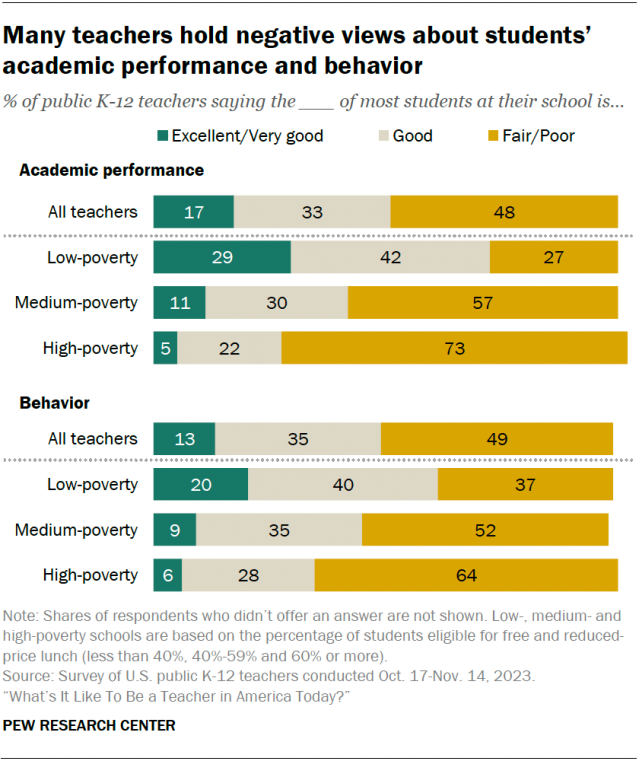
Teachers from high-poverty schools are more likely than those in medium- and low-poverty schools to say the academic performance and behavior of most students at their school are fair or poor.
The differences between high- and low-poverty schools are particularly striking. Most teachers from high-poverty schools say the academic performance (73%) and behavior (64%) of most students at their school are fair or poor. Much smaller shares of teachers from low-poverty schools say the same (27% for academic performance and 37% for behavior).
In turn, teachers from low-poverty schools are far more likely than those from high-poverty schools to say the academic performance and behavior of most students at their school are excellent or very good.
Lasting impact of the COVID-19 pandemic
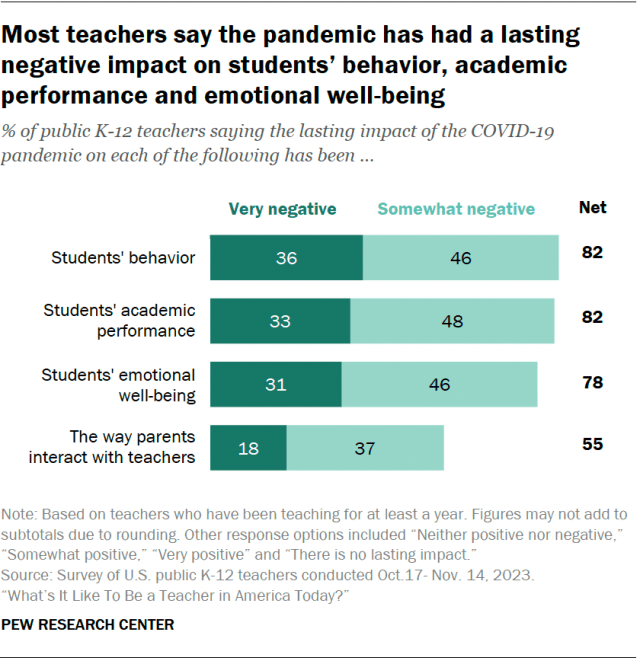
Among those who have been teaching for at least a year, about eight-in-ten teachers say the lasting impact of the pandemic on students’ behavior, academic performance and emotional well-being has been very or somewhat negative. This includes about a third or more saying that the lasting impact has been very negative in each area.
Shares ranging from 11% to 15% of teachers say the pandemic has had no lasting impact on these aspects of students’ lives, or that the impact has been neither positive nor negative. Only about 5% say that the pandemic has had a positive lasting impact on these things.
A smaller majority of teachers (55%) say the pandemic has had a negative impact on the way parents interact with teachers, with 18% saying its lasting impact has been very negative.
These results are mostly consistent across teachers of different grade levels and school poverty levels.
Major problems at school
When we asked teachers about a range of problems that may affect students who attend their school, the following issues top the list:
- Poverty (53% say this is a major problem at their school)
- Chronic absenteeism – that is, students missing a substantial number of school days (49%)
- Anxiety and depression (48%)
One-in-five say bullying is a major problem among students at their school. Smaller shares of teachers point to drug use (14%), school fights (12%), alcohol use (4%) and gangs (3%).
Differences by school level
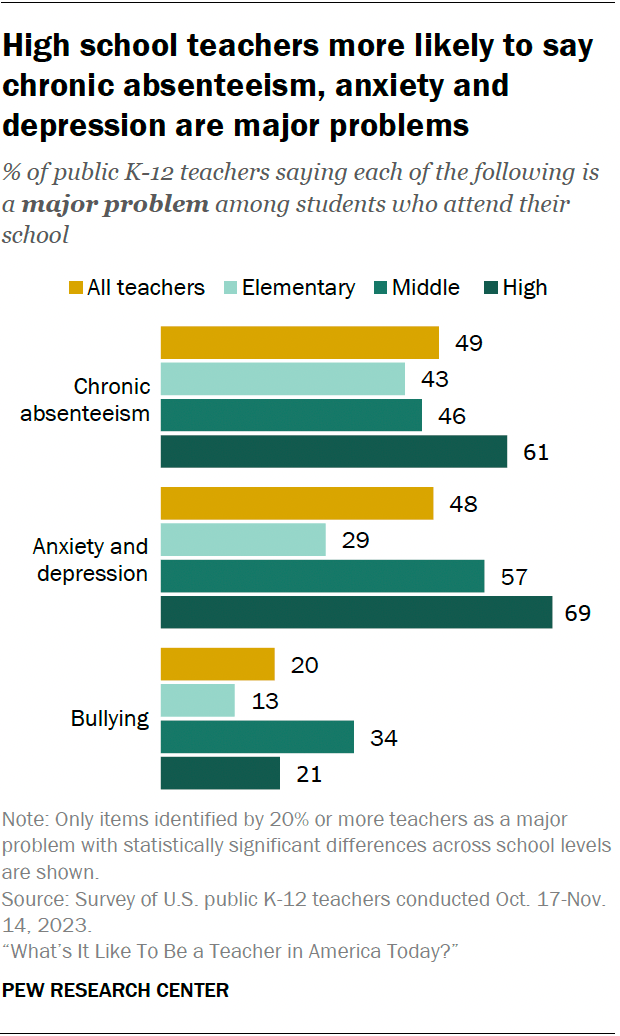
Similar shares of teachers across grade levels say poverty is a major problem at their school, but other problems are more common in middle or high schools:
- 61% of high school teachers say chronic absenteeism is a major problem at their school, compared with 43% of elementary school teachers and 46% of middle school teachers.
- 69% of high school teachers and 57% of middle school teachers say anxiety and depression are a major problem, compared with 29% of elementary school teachers.
- 34% of middle school teachers say bullying is a major problem, compared with 13% of elementary school teachers and 21% of high school teachers.
Not surprisingly, drug use, school fights, alcohol use and gangs are more likely to be viewed as major problems by secondary school teachers than by those teaching in elementary schools.
Differences by poverty level
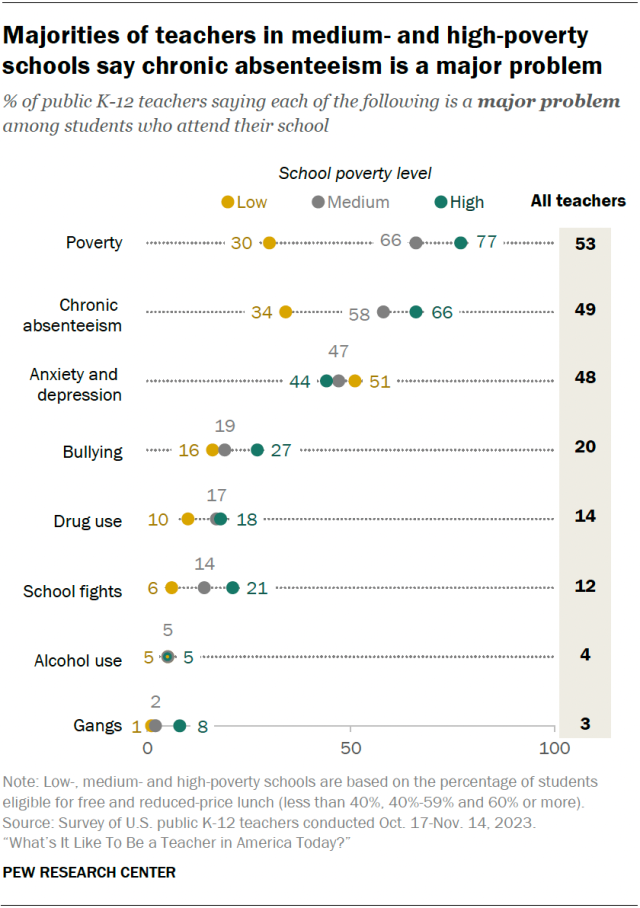
Teachers’ views on problems students face at their school also vary by school poverty level.
Majorities of teachers in high- and medium-poverty schools say chronic absenteeism is a major problem where they teach (66% and 58%, respectively). A much smaller share of teachers in low-poverty schools say this (34%).
Bullying, school fights and gangs are viewed as major problems by larger shares of teachers in high-poverty schools than in medium- and low-poverty schools.
When it comes to anxiety and depression, a slightly larger share of teachers in low-poverty schools (51%) than in high-poverty schools (44%) say these are a major problem among students where they teach.
Discipline practices
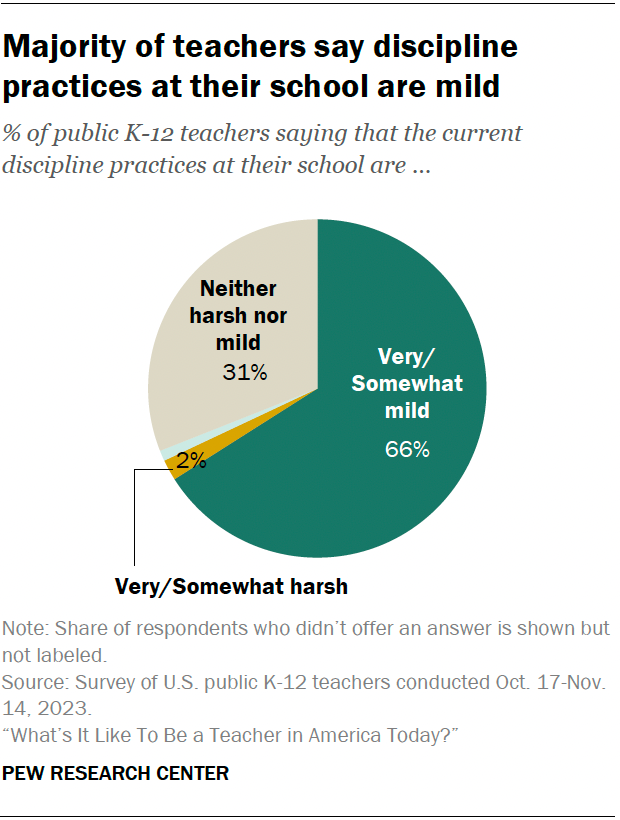
About two-thirds of teachers (66%) say that the current discipline practices at their school are very or somewhat mild – including 27% who say they’re very mild. Only 2% say the discipline practices at their school are very or somewhat harsh, while 31% say they are neither harsh nor mild.
We also asked teachers about the amount of influence different groups have when it comes to determining discipline practices at their school.
- 67% say teachers themselves don’t have enough influence. Very few (2%) say teachers have too much influence, and 29% say their influence is about right.
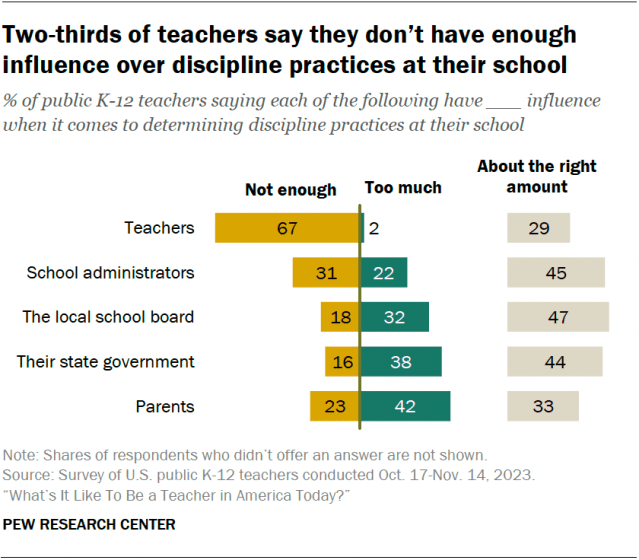
- 31% of teachers say school administrators don’t have enough influence, 22% say they have too much, and 45% say their influence is about right.
- On balance, teachers are more likely to say parents, their state government and the local school board have too much influence rather than not enough influence in determining discipline practices at their school. Still, substantial shares say these groups have about the right amount of influence.
Teachers from low- and medium-poverty schools (46% each) are more likely than those in high-poverty schools (36%) to say parents have too much influence over discipline practices.
In turn, teachers from high-poverty schools (34%) are more likely than those from low- and medium-poverty schools (17% and 18%, respectively) to say that parents don’t have enough influence.
Social Trends Monthly Newsletter
Sign up to to receive a monthly digest of the Center's latest research on the attitudes and behaviors of Americans in key realms of daily life
Report Materials
Table of contents, ‘back to school’ means anytime from late july to after labor day, depending on where in the u.s. you live, among many u.s. children, reading for fun has become less common, federal data shows, most european students learn english in school, for u.s. teens today, summer means more schooling and less leisure time than in the past, about one-in-six u.s. teachers work second jobs – and not just in the summer, most popular.
About Pew Research Center Pew Research Center is a nonpartisan fact tank that informs the public about the issues, attitudes and trends shaping the world. It conducts public opinion polling, demographic research, media content analysis and other empirical social science research. Pew Research Center does not take policy positions. It is a subsidiary of The Pew Charitable Trusts .
124 Great Depression Topics to Write about & Examples
Welcome to our list of the Great Depression topics! Here, you will find writing ideas about the causes and effects of the Great Depression. You can also pick plenty of related issues to debate.
🔝 Top 10 Great Depression Topics to Write About
🏆 best great depression topic ideas & essay examples, 💡 good great depression essay topics, ⭐ interesting topics to write about great depression, ❓ great depression essay questions, 🔎 great depression research topics.
- The Stock Market Crash of 1929
- What Triggered the Great Depression?
- Lessons Learned from the Great Depression
- The Dust Bowl Disaster and Its Role in the Depression
- How Banks Caused the Collapse of the Economy
- Government’s Response to the Great Depression
- The Great Depression and International Relations
- Unemployment and Poverty During the Depression
- Hardship and Resilience in Literature of the Great Depression
- The Impact of the Great Depression on Population Movements
- Cause and Effects of The Great Depression The economic devastation of the 1920s led to the Great Depression and brought a tragedy for the whole society. Crash of stock market The crash of the stock market in 1929 ushered in the Great […]
- The Reality of the Great Depression in Steinbeck’s “The Grapes of Wrath” The journey of the Joad family and other significant characters in the story who played the roles in building the whole context take the path of meeting miserable economic situations.
- Public Enemies During the Great Depression In the 1930’s most people in America were feeling the impact of the Great Depression due to the crashed economy. During the great depression, most people were facing the challenges of starving and losing their […]
- The Impact of the Great Depression on Canada Some of the measures that Bennett put in place included camps to support the old and sick as well as the distribution of aid to the unemployed and disadvantaged in the country.
- The Great Depression in Canada Before the onset of the Great Depression from the years 1919-1929, Canada had the fastest growing economy amongst the developing nations and the only blip to this record was the slight recession they suffered during […]
- Gardens Role in Great Depression Although the main causes of the great depression are still vague and contentious to date, the overall outcome was unexpected and resulted in the universal loss of trust in the economic future.
- John Steinbeck’s “The Grapes of Wrath” and the Great Depression The Grapes of Wrath begins by describing an occurrence of soil erosion in Dust Bowl Oklahoma that led to the destruction of crops, a decline in farming and farm produce and the migration of farmers […]
- The Great Depression and Hoover’s Administration Therefore, it is probably fair to state that Hoover and his organization are not responsible for a large portion of what led to or failed to prevent the Great Depression.
- Great Depression: Annotated Bibliography This is a secondary source, written in 2020, and its main idea is that shocks of uncertainty had the main effect on the changes during the Great Depression, which contributed to the fall in production.
- President Hoover’s Role During the Great Depression Although a significant percentage of the causative constituents emanated from the previous government’s economic strategies, President Hoover elevated the conditional outlier.
- The Great Depression and the New Deal Politics In general, the New Deal politics aimed at alleviating the problems of the poor population and the unemployed Americans, returning the American economy to the norm, and the profound reformation of the financial system that […]
- Impact of the Great Depression and the New Deal on Minorities However, despite the intention to promote democracy and equality in the United States, the impact of the Great Depression was devastating, and the New Deal did not solve most problems among minorities.
- Social Work During the Great Depression and COVID-19 Pandemic Social workers during the COVID-19 pandemic were faced with a series of novice challenges similar to their counterparts in the Great Depression.
- The Great Depression: Prerequisites, Essence, and Consequences As a result of the crisis and the rise of protectionism, according to the League of Nations, world trade fell threefold from 1929 to 1933.
- How New Deal Represented Minorities and Ended the Great Depression The Civilian Conservation Corps and the Works Progress Administration were some of the many programs representing minorities in the New Deal.
- The Concepts of Freedom and the Great Depression Furthermore, blacks were elected to construct the constitution, and black delegates fought for the rights of freedpeople and all Americans. African-Americans gained the freedom to vote, work, and be elected to government offices during Black […]
- Economic History of the US: The Great Depression The government’s immediate and unprecedented action brought the state out of the crisis and preserved the system of capitalism. In order to restore the security of Americans in the new deal, Congress and the President […]
- The Contribution of Former U.S. Presidents in Overcoming the Great Depression The Great Depression presents an event in which the U.S.developed progressive leadership policies to improve living standards. Modern politics in the U.S.has caused social divisions similar to the period of Unravelling.
- Great Depression and Cold War: Making of Modern America This paper will explore the causes of the Great Depression, the measures implemented within the New Deal, Cold War tensions, and the changes to the American society by the civil rights movement.
- American History: Great Depression and Other Issues One of the causes of the Great Depression was the international economic woes of the United States of America. One of the actions taken by the Hoover administration to combat the depression was urging the […]
- The History of Great Depression The Great Depression was the most severe recession of the past centuries. It affected the whole world and lasted for approximately 12 years.
- The Great Depression, Volatility and Employee Morale A?” The purpose of the present investigation study is to understand the morale of employees in corporate America on how it affects the way the economy functions in the United States.
- Stories From the Great Depression: President Roosevelt At the same time, the era of the Great Depression was the time when many Americans resorted to their wit and creativity.
- Gender, Family, and Unemployment in Ontario’s Great Depression The introduction and all the background that Campbell gives are firmly in line with the goals of this course. The first part of the study is the business and the economic history.
- How Did the Great Depression Affect Americans? The Great Depression can be fairly supposed to have been the harshest time in the history of the United States after The Civil War.
- The Causes of the Great Depression: Black Tuesday and Panic Historians relate the end of the great depression to the start of the second-word war. The government then came up with packages that sought to lessen the effects of the depression.
- The Actions of the Roosevelt on Great Depression S president and his efforts to save the country from the effects of the great depression were futile. The deal consisted of recovery programs which were targeted to be initiated into the economy in the […]
- The Great Depression of 1929 This was the program that opened the eyes of the people to the fact that the depression era did not affect just the low bracket of society and that if they were to overcome it, […]
- The Great Depression in the United States’ History This great depression was considered as the major reason of the war and in the initial stages the world was ignorant about the disasters of the war.
- The Great Depression Period Analysis The main causes for the Great Depression were a combination of unequally distributed wealth, the stock market crash, and eventually the bank failures.
- Great Depression and the American People’s Relationship With Their Government In this essay, I will try to trace the effects of the depression not just on the people who lived it but also among the present Americans.
- How the Great Depression Changed Americans During the depression, the population experienced intense pain and extensive misery and the event has been blamed for leading to calamities such as World War II and the rising to power of Adolf Hitler.
- America in 1920s: Great Depression Regarding the issue of credit exploration in the 1920s, and the contribution of the credit’s expansion into the process of onset of the Great Depression, it is necessary to refer to the facts from American […]
- History of the Great Depression and the New Deal According to the prominent American economist John Keyne, the main cause of the Great Depression was the shortage of money supply, which was dependant on the gold reserve, in the meantime, the industry output significantly […]
- Great Depression of Canada and Conscription During World War I in Canada Due to the depression in the United States, the people across the border were not able to buy the wheat produced and cultivated in Canada and as a result, the exports declined.
- The Great Depression in Steinbeck’s “The Grapes of Wrath” The family adjusted to the codes of conduct in the camp, and Tom even managed to find a job picking fruits at a local farm.
- The Great Depression: Time of Crisis in America This was a time of immeasurable economic instability, and as many of us have read, the depression started with the atrocious crash of the stock market in 1929.
- Presidential Policy During the Great Depression During the early part of the Great Depression, the economy had ground to a halt as a result of the stock market crashing and the unemployment rates skyrocketed as businesses shut down.
- Great Depression in “A Worn Path” by Eudora Welty The first few paragraphs of the story are dedicated specifically to painting the image of the old Afro-American woman in the mind of the reader by providing details on her appearance, closing, her manners of […]
- “The Great Depression: 1929-1939” Documentary Despite the promises given by the President and the leaders of finance, the situation did not improve. The narrator remarks that people were losing hope, and no one knew how to improve the situation.
- Great Depression in the United States The Great Depression of the 1930’s is the most significant economic crises in the history of the modern world and the United States, in particular.
- American Great Depression and New Deal Reforms What is definitely certain is that many factors like the shifting of the economy, unstable credit and financial system, poor government decisions, and the fact that the international economy was still recovering from ruinous effects […]
- Great Depression’ History: Causes and Regulations The Great Depression that happened in the 1930s was the gravest and prolonged economic downturn in the history of the developed Western world.
- Child Labor, Great Depression and World War II in Photographs The impression is of isolation and yearning for daylight, freedom, and a childhood foregone, in the midst of a machine-dominated world.
- The Great Depression in the US and Its Causes It was believed at the time that even if a person failed to pay back their loan, the seizure of assets to cover the cost of the loan in the form of stocks would have […]
- Women’s Rights in the Great Depression Period The pursuit of the workplace equality and the protection of women from unfair treatment by the employers were quite unsuccessful and slow due to the major division in the opinions.
- Great Depression – American History However, though the thicket of sarcasm and irony, one can see despair and disbelief in the power of art, as well as the doubt if art can actually be produced under the name of Hollywood: […]
- The Great Depression and the New Deal Phenomenon With time, due to the highly unequal distribution of income, as well as to the depression in farming regions, the buying capacity of Americans decreased significantly; this led to the inability to purchase the goods […]
- The Great Depression in Amercia Form the war in Japan to the Vietnamese war, and many other political modifications, these changes destined to cross over into the 1970s and 1980s.
- Roosevelt’s Plan to End the Great Depression When he assumed the presidency in 1932, Franklin acknowledged the challenges of the nation, and also the way to get them out of the great depression.
- Lessons From the Great Depression and Postwar Global Economy: A Critical Analysis The economic slump that hit industrialized economies of the world, starting in the U.S.and later spreading to Europe, began in earnest in 1929 and lasted until about 1941, making it the longest and most ruthless […]
- Franklin D. Roosevelt’s Plans to End the Great Depression in His Presidency President Franklin Roosevelt rose to power at the time when the U.S.was facing hardships in the economy with the great depression badly affecting the economic activities of the country.
- Franklin Delano Roosevelt’s Plans to Combat the Great Depression He came to power in 1933 when the United States was in the middle of the Great Depression, and left in 1945 when the world, including the USA, was grappling with the effects of the […]
- US’s Economic Recovery in the Aftermath of the Great Depression The efforts to US’s economic recovery in the aftermath of the Great Depression of the 1930s sparked a series of economic programs under an umbrella name, the ‘New Deal.’ The mission of the ‘New Deal’ […]
- Causes of Great Depression: Canada Great Depression Causes of great depression The fundamental causes of great depression in Canada were the decline in the spending. Crash in the stock market in the United State and Canada contributed to the great depression.
- Is the U.S. Headed Towards the Second Great Depression? This is one of the indicators economists observe to foresee the possibility of the economy diving in to a recession, or is already on the way to recession.
- Repercussion of Great Depression The US mortgage crisis that was the genesis of the financial crisis is blamed on the laxity of law enforcers or failure of the laws that have governed the financial market in the US.
- Why the Great Depression Occurred – a Public Budgeting Stand Point As observed by Romer, “the great depression took place in the late 1920s to the late 1930s and was the longest and most severe depression ever experienced in the industrialized Western world”.
- The Great Depression: A Diary The book covers very little on the normal lifestyle of the people in Youngstown before the crisis; all that it documents are the hardships that describe Ohio as a hopeless place to live.
- The Great Depression’ Influence on the World His book looks at the factors that have caused and prolonged the issues that have deprived many people of jobs and ability to come out of the atrocious conditions.
- In the Eye of the Great Depression It led to the formation of groupings in society due to their similarities in their plight to restore dignity and compassion to their lives.
- Causes of the Great Depression This was due to a prediction of the end of rise in the stock market thus; there was a nationwide stampede to unload the stocks.
- The Great Depression and the New Deal The Great Depression of 1929-40s refers to the collapse of the world economy. For instance, a democrat entitled as Glass believed in the dominance of the white, budget devoid of deficits, the statutory rights, as […]
- Monetary and Fiscal Policy during the Great Depression An expansionary monetary policy is any action by the Fed that results in an increase to the total output or aggregate demand in an economy.
- Economic Depression in USA The Depression of 1873-1879 This depression was as a result of the bankruptcy of the railroad investment firm of Jay Cooke and company and particularly the restrictive monetary policy of the federal government; this is […]
- The Actual Causes of the Great Depression In the period between the end of First World War and the onset of the great depression, United States enjoyed relatively stable economic conditions under the leadership of a string of republican presidents.
- Government Policy Interventions and the Great Depression Monetary policy is the process where the government intervenes by administering and controlling the amount of money in the economy using the Central Bank in many countries and the Federal Reserve in the United States.
- Problem of USA Exposed by the Great Depression The recession was triggered by various fiscal features such as the vast margin between the poor and the wealthy, government debts and surplus production of commodities only to mention a few.
- The Great Depression Effects on American Economy The main problem behind the stated Great Depression experienced in the United States in 1929 was the mismatch between the consuming capacity of the population of the United States and the production capacity of the […]
- Great Depression as a Worldwide Economic Decline Many people ceased to buy products leading to low production of the products. This led to lose of market for American industries and led to trade disagreements among nations.
- The Great Depression Crisis Other causes that led to a reduction in aggregate demand followed throughout the depression period and the effects were transmitted from the United States which was in essence the ‘epicenter’ of the depression to the […]
- The Great Depression in Latin America Leaders in Latin America acknowledged the need to change economic policies and promoted the discarding of the free-market model in favor of import substitution.
- The Causal-Effect Connection of the Great Depression According to majority of the authors and scholars, The Great Depression is the worst economic downturn in the history of the United States of America.
- The Three Main Causes of Great Depression This paper sheds light on the causes that led to the great depression in America According to Bordo and White, the great depression begun in 1929 and many people suffered because all the businesses had […]
- Did Bank Distress Stifle Innovation During the Great Depression?
- How Does “The Cinderella Man” Depict Life During the Great Depression?
- Could the FED Have Prevented the Great Depression?
- How Did the Great Depression Affect a Generation?
- Did American Welfare Capitalists Breach Their Implicit Contracts During the Great Depression?
- How Does the Great Depression Affect the World Economy?
- Could the Great Depression Be Describes a Time of Desperation?
- How Did the Great Depression Pave the Road for Hitler?
- Did France Cause the Great Depression?
- How Did Demographics Cause the Great Depression?
- Did Hayek and Robbins Deepen the Great Depression?
- How Did Black People Face the Great Depression Differently?
- Did International Economic Forces Cause the Great Depression?
- How Did Governments Deal With Problems Caused by the Great Depression?
- Did Korekiyo Takahashi Rescue Japan From the Great Depression?
- How Did Great Britain, France, and the United States Respond to the Great Depression?
- Did Monetary Forces Cause the Great Depression?
- How Did the Great Depression Completely Destroy America?
- Did Sunspot Forces Cause the Great Depression?
- How Did WWII End the Great Depression?
- Did Technology Shocks Drive the Great Depression?
- How Does the Current Global Economic Recession Compare to the Great Depression?
- Did the Canadian Government Do Enough During the Great Depression?
- How Franklin Delano Roosevelt Handled the Great Depression in the U.S.?
- Did the Commercial Paper Funding Facility Prevent a Great Depression Style Money Market Meltdown?
- How Great Was the Great Depression?
- Did the Great Depression Affect Educational Attainment in the US?
- How Has Homelessness Changed Since the Great Depression?
- Did the New Deal Prolong or Worsen the Great Depression?
- How Did Income Inequality Lead to the Great Depression?
- The Agricultural Crisis During the Great Depression
- Government Relief Programs of the Depression Era
- How the Great Depression Impacted Minority Communities
- The Political Consequences of the Stock Market Crash
- Hoover vs. Roosevelt’s Approaches to Economic Recovery
- The Psychological Effects of the Great Depression on People and Families
- The Role of Government in Economic Recovery during the Great Depression
- The Legacy of Labor Unions and Workers’ Rights of the Depression Era
- Gender Roles, Employment, and Social Changes During the Depression Era
- The Legacy of the Great Depression as Seen in the Modern Economic Policy
- Chicago (A-D)
- Chicago (N-B)
IvyPanda. (2024, February 27). 124 Great Depression Topics to Write about & Examples. https://ivypanda.com/essays/topic/great-depression-essay-examples/
"124 Great Depression Topics to Write about & Examples." IvyPanda , 27 Feb. 2024, ivypanda.com/essays/topic/great-depression-essay-examples/.
IvyPanda . (2024) '124 Great Depression Topics to Write about & Examples'. 27 February.
IvyPanda . 2024. "124 Great Depression Topics to Write about & Examples." February 27, 2024. https://ivypanda.com/essays/topic/great-depression-essay-examples/.
1. IvyPanda . "124 Great Depression Topics to Write about & Examples." February 27, 2024. https://ivypanda.com/essays/topic/great-depression-essay-examples/.
Bibliography
IvyPanda . "124 Great Depression Topics to Write about & Examples." February 27, 2024. https://ivypanda.com/essays/topic/great-depression-essay-examples/.
- US History Topics
- Financial Crisis Paper Topics
- History Topics
- Economic Inequality Questions
- Modern History Topics
- Demographics Topics
- World History Topics
- Economic Topics
- Cold War Topics
- Private Equity Research Ideas
- Social Democracy Essay Titles
- International Politics Questions
- Macroeconomics Topics
- American Revolution Topics
- Franklin Roosevelt Questions

IMAGES
VIDEO
COMMENTS
260. 1. Our Experts. can deliver a custom essay. for a mere 11.00 9.35/page 304 qualified. specialists online Learn more. Depression is undeniably one of the most prevalent mental health conditions globally, affecting approximately 5% of adults worldwide. It often manifests as intense feelings of hopelessness, sadness, and a loss of interest in ...
Depression is a disorder characterized by prolonged periods of sadness and loss of interest in life. The symptoms include irritability, insomnia, anxiety, and trouble concentrating. This disorder can produce physical problems, self-esteem issues, and general stress in a person's life. Difficult life events and trauma are typical causes of ...
112 Depression Essay Topic Ideas & Examples. Depression is a mental health disorder that affects millions of people worldwide. It can have a significant impact on an individual's life, their relationships, and their overall well-being. If you are tasked with writing an essay on depression, it can be challenging to come up with a unique and ...
It was estimated that nicotine affects the human's reward system. As a result, smoking cessation might lead to depression and other mental disorder. Major Depression' Symptoms and Treatment - Psychology. A continuous sense of tiredness, unhappiness, and hopelessness are key signs of clinical or major depression.
The possible causes of depression are many and not yet well understood. However, it most likely results from an interplay of genetic vulnerability and environmental factors. Your depression research paper could explore one or more of these causes and reference the latest research on the topic. For instance, how does an imbalance in brain ...
Use brainstorming techniques and write down all ideas that pop into your head. Review the points and create a thesis statement for depression research paper or essay. Organize the list of points to create a structure of your essay. Put the points in a logical order. Check all aspects to make sure that each of them is relevant to your objective.
Depression Essay Topic Examples. Explore topics like the impact of stigma on depression, compare it across age groups or in literature and media, describe the emotional journey of depression, discuss how education can help, and share personal stories related to it. These essay ideas offer a broad perspective on depression, making it easier to ...
Here are six essay topics about depression that you can use in your essay. 1. What Is Depression? In your essay, discuss the definition of depression, and delve into the signs, symptoms, and possible causes of this mental illness. Depression can be difficult to define and understand. Discuss the definition of depression, and delve into the ...
Depression is one of the leading causes of disability, and, if left unmanaged, it can increase the risk for suicide. ... a web of causation. In this paper, we describe and present the vast, fragmented, and complex literature related to this topic. This review may be used to guide practice, public health efforts, policy, and research related to ...
It will be considered by people with moderate depression. Postpartum Depression (PPD) and Its Identification. Psychology essay sample: Katon, Russo, and Gavin focused on the problem of postpartum depression and its identification, because it is a common issue that leads to adverse health outcomes.
Depression can cause a range of psychological and physical symptoms, including: persistent depressed mood. loss of interest or pleasure in hobbies and activities. changes in appetite and body ...
Depression is more than just sadness; it is the most common mental disorder. People with depression may also experience physical, cognitive, and social changes, including altered eating or sleeping habits, lack of energy or motivation, difficulty concentrating or making decisions, and withdrawal from social activities. ... Topics in Psychology ...
Depression is classified as a mood disorder. It may be described as feelings of sadness, loss, or anger that interfere with a person's everyday activities. The term depression was derived from the Latin verb deprimere, "to press down". From the 14th century, "to depress" meant to subjugate or to bring down in spirits.
Argumentative essay topics about depression. 1. Depression is a real mental health condition. 2. Depression is more than just feeling sad. 3. Depression can lead to serious physical health problems. 4. Depression is treatable with medication and therapy.
Anxiety disorders are normally brained reactions to stress as they alert a person of impending danger. Most people feel sad and low due to disappointments. Feelings normally overwhelm a person leading to depression, especially during sad moments such as losing a loved one or divorce. When people are depressed, they engage in reckless behaviors ...
Depression (also known as major depression, major depressive disorder, or clinical depression) is a common but serious mood disorder. It causes severe symptoms that affect how a person feels, thinks, and handles daily activities, such as sleeping, eating, or working. To be diagnosed with depression, the symptoms must be present for at least 2 ...
Depression is a complex condition, involving many systems of the body, including the immune system, either as cause or effect. It disrupts sleep and it interferes with appetite; in some cases, it ...
Summarizing and evaluating the information that trusted journals have published on the topic of depression might help create a well-rounded review of the condition and the scientific community's understanding of it. We will write a custom essay on your topic a custom Essay on Depression as a Psychological Disorder. 808 writers online . Learn ...
Video playlists about Depression. Depression is an illness that many suffer alone. These speakers bravely share their own stories -- and how they recovered. Depression, schizophrenia, suicidal feelings—too often, these experiences stay private. These speakers who've struggled with mental illness boldly share their stories, in hopes that ...
Analysis of published papers around the world from 2009 to 2019 in depressive disorder. A The total number of papers [from a search of the Web of Science database (search strategy: TI = (depression$) or ts = ("major depressive disorder$")) and py = (2009-2019), Articles)].B The top 10 countries publishing on the topic.C Comparison of papers in China and the USA.
Pages: 1 (658 words) Views: 688. Grade: 4.8. Download. You've lost connections with friends and family, you can't bring yourself to go outside, it feels like the world is against you. This is the life of having depression, a horrible cycle of low moods, sadness and an overall feeling of dejectedness. I chose to write my argumentative essay ...
Activity During Pregnancy and Postpartum Depression. Studies have shown that women's mood and cardiorespiratory fitness improve when they engage in moderate-intensity physical activity in the weeks and months after giving birth to a child. Complementary Therapy for Postpartum Depression in Primary Care. Thus, the woman faced frustration and ...
41%. Percentage of teens with the highest social media use who rate their overall mental health as poor or very poor, compared with 23% of those with the lowest use. For example, 10% of the highest use group expressed suicidal intent or self-harm in the past 12 months compared with 5% of the lowest use group, and 17% of the highest users expressed poor body image compared with 6% of the lowest ...
Major problems at school. When we asked teachers about a range of problems that may affect students who attend their school, the following issues top the list: Poverty (53% say this is a major problem at their school) Chronic absenteeism - that is, students missing a substantial number of school days (49%) Anxiety and depression (48%) One-in ...
🏆 Best Great Depression Topic Ideas & Essay Examples. Get your 100% original paper on any topic done in as little as 1 hour. Learn More . Cause and Effects of The Great Depression. The economic devastation of the 1920s led to the Great Depression and brought a tragedy for the whole society. Crash of stock market The crash of the stock market ...